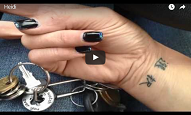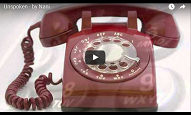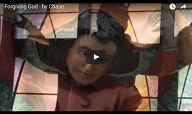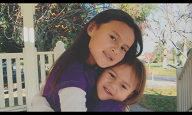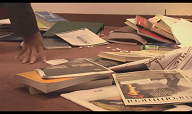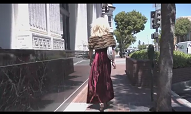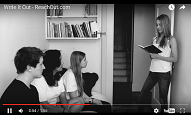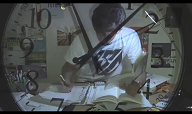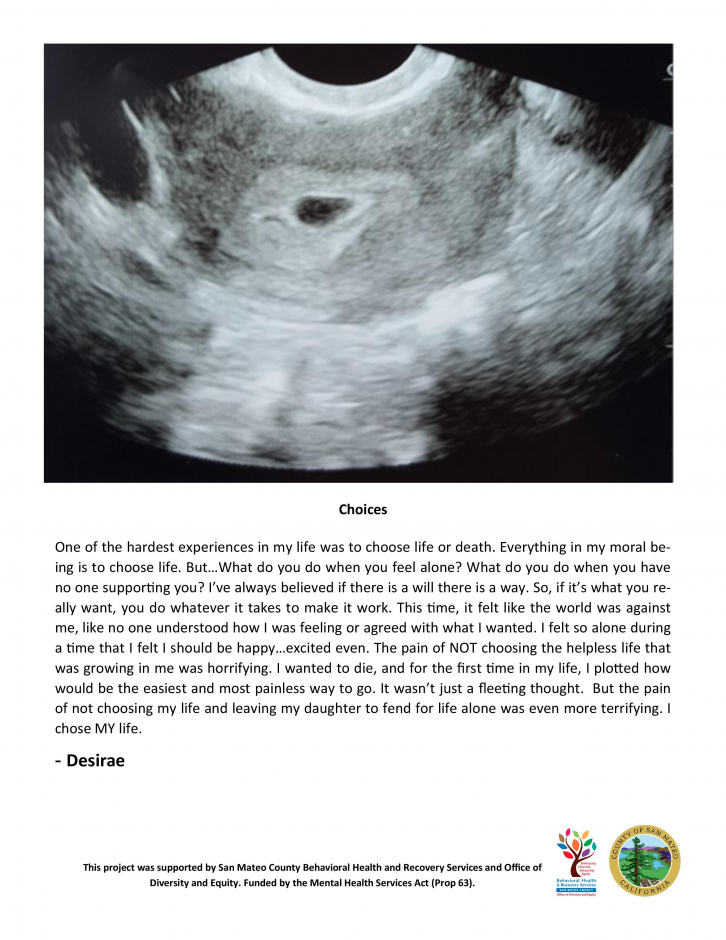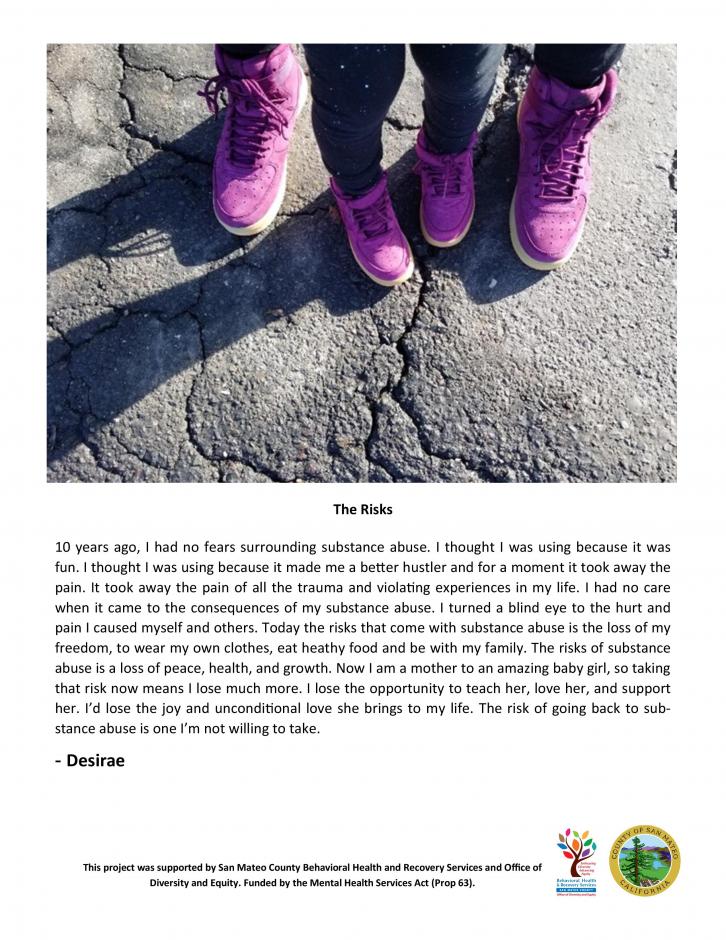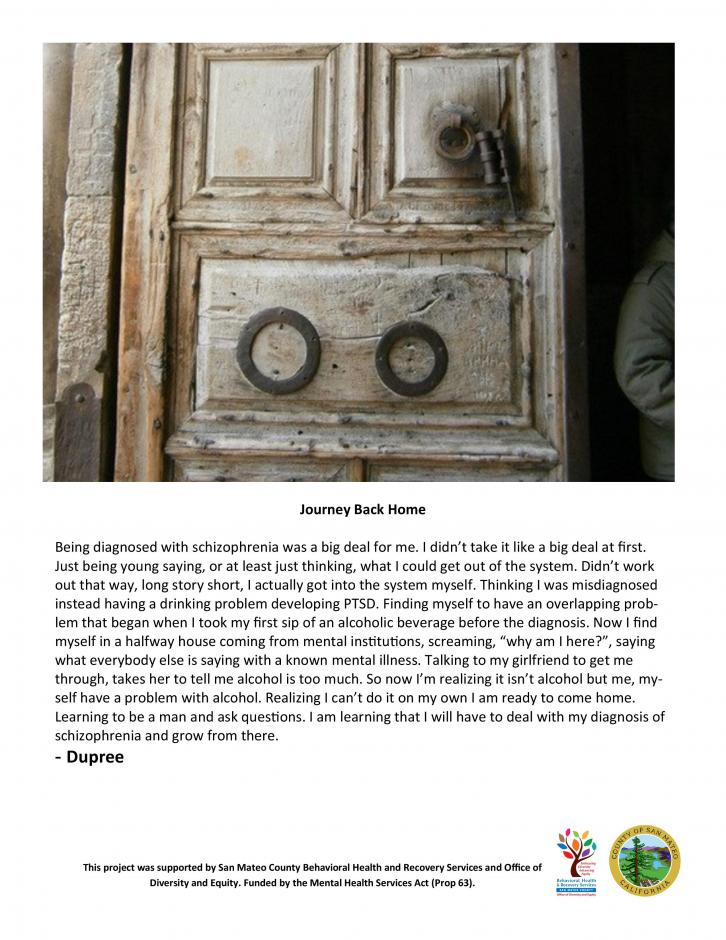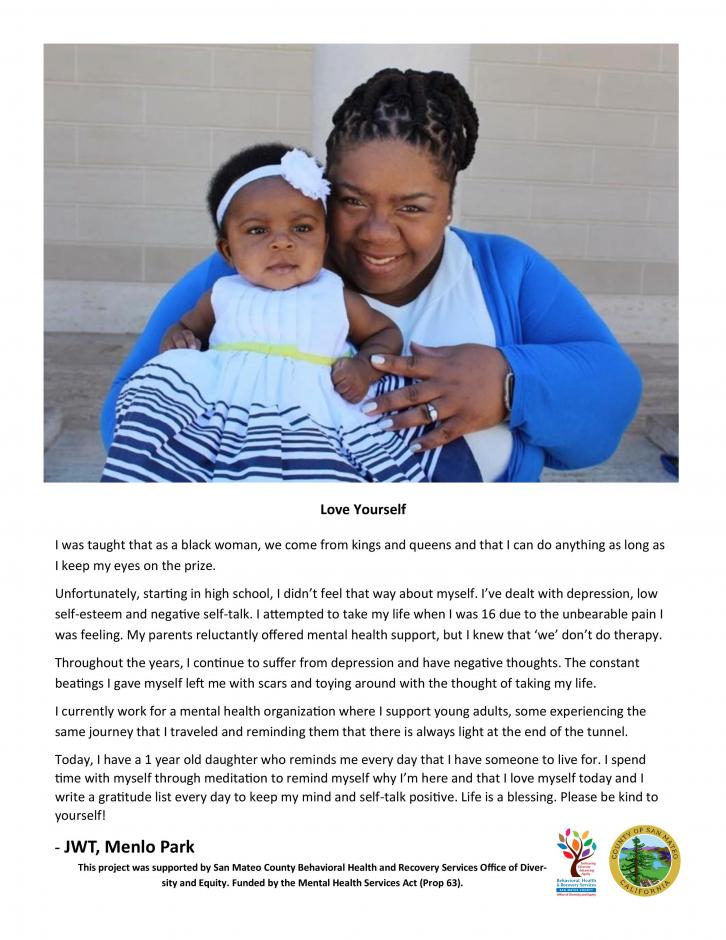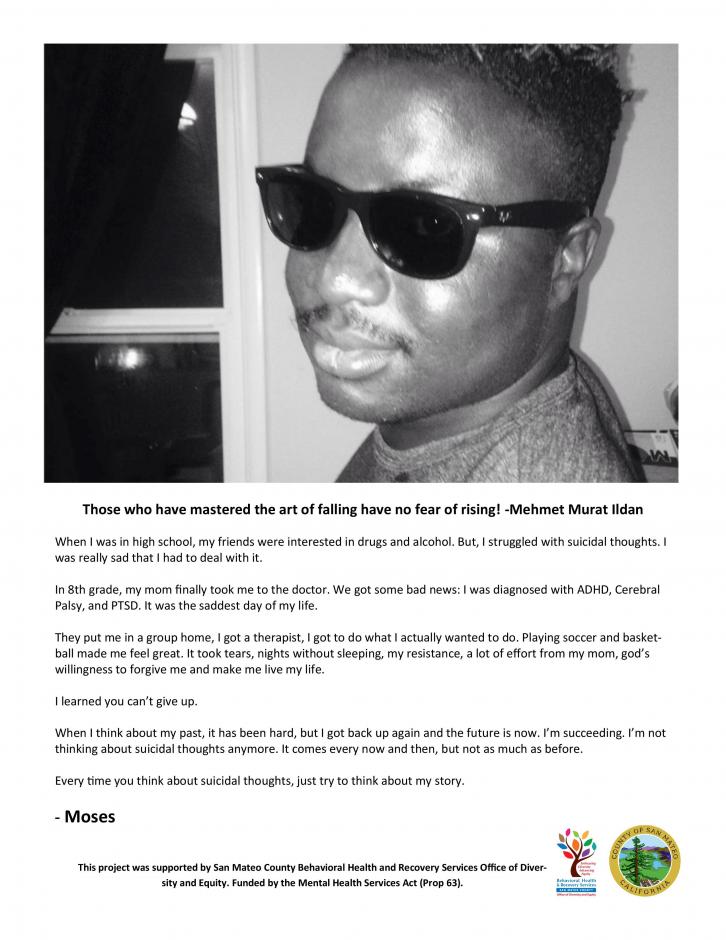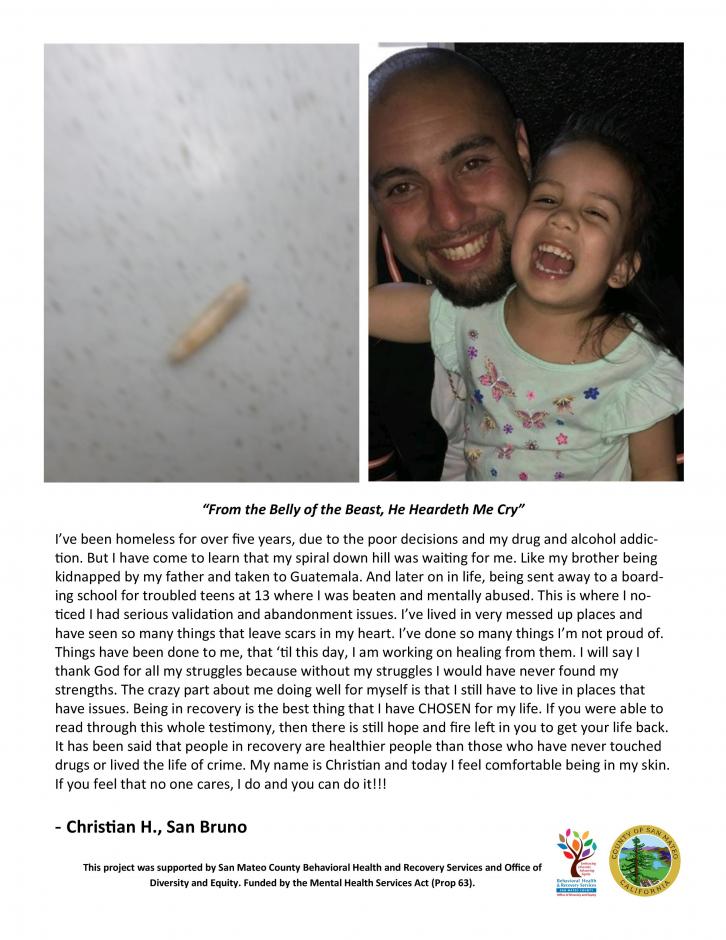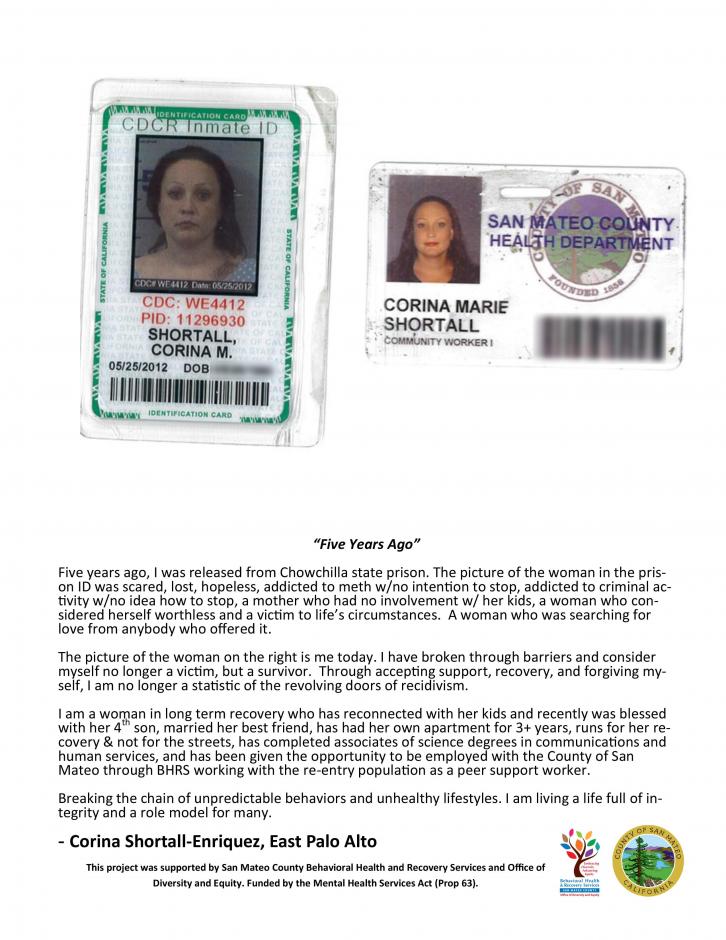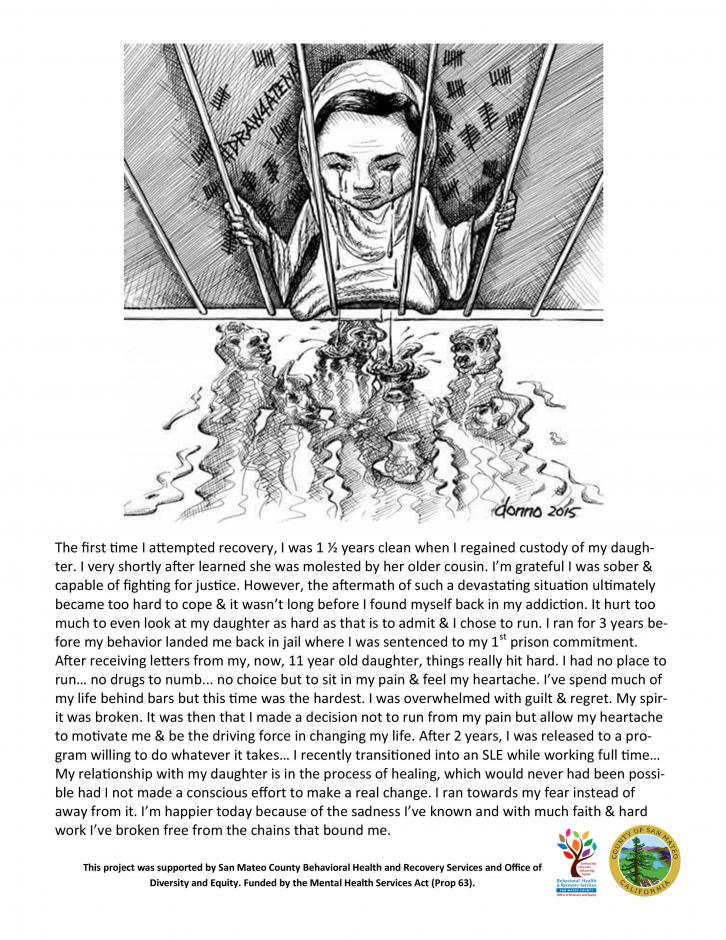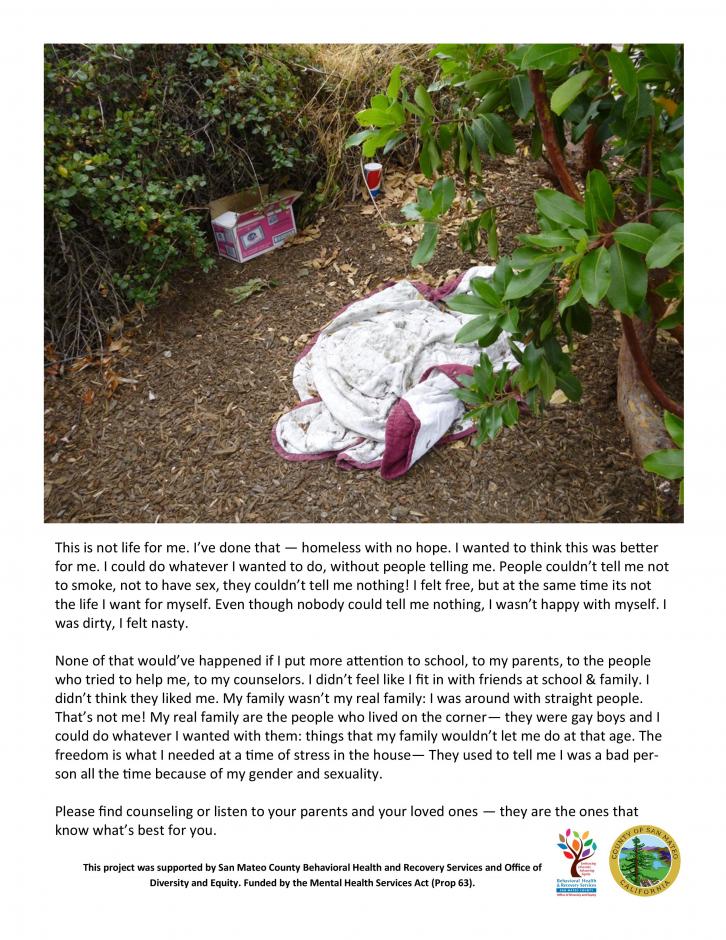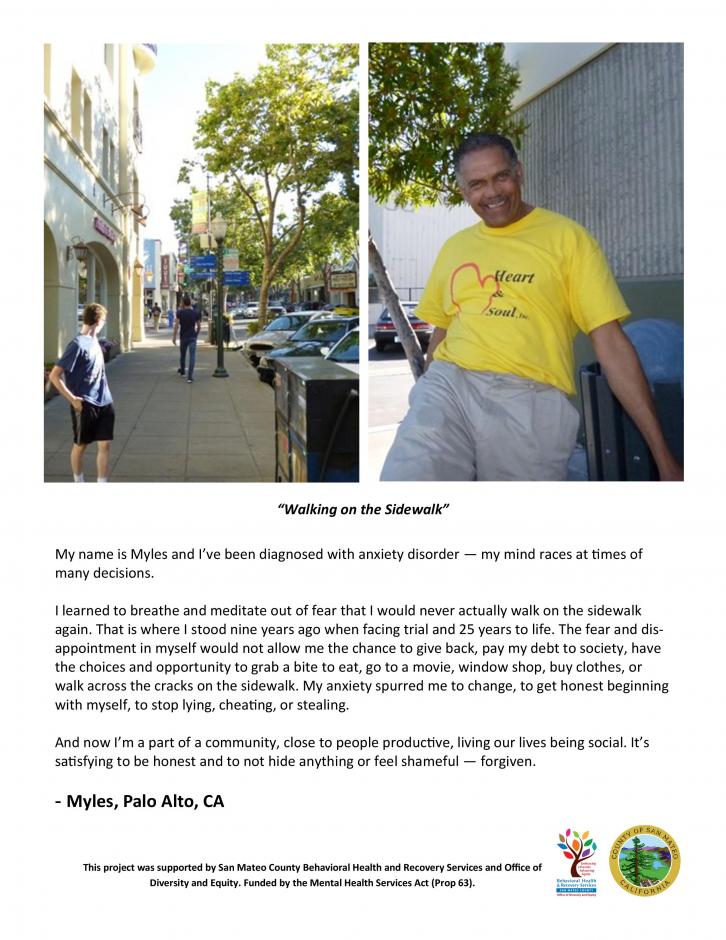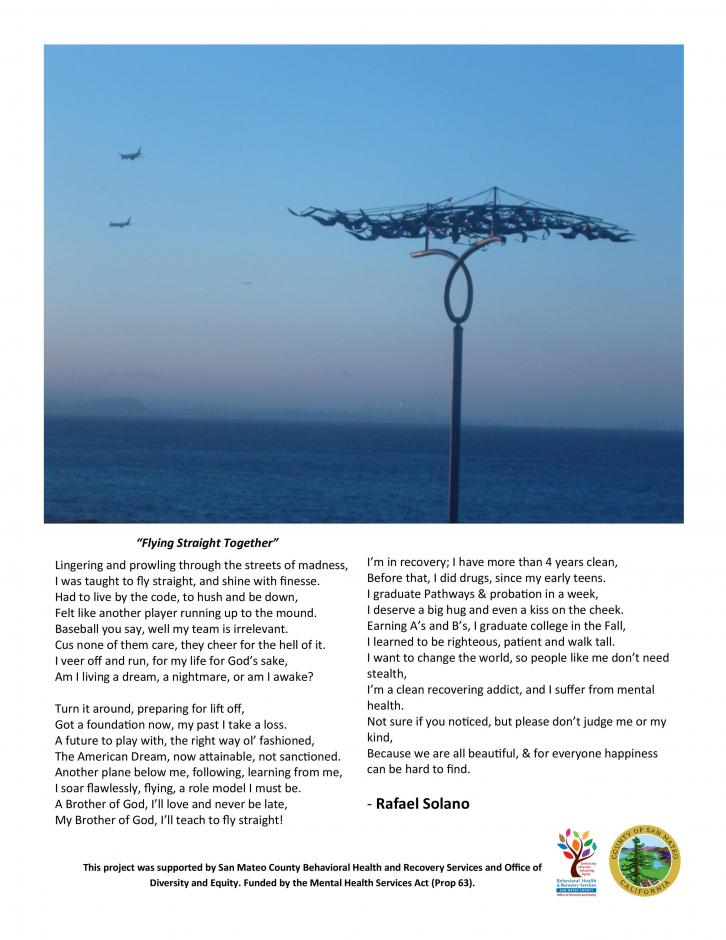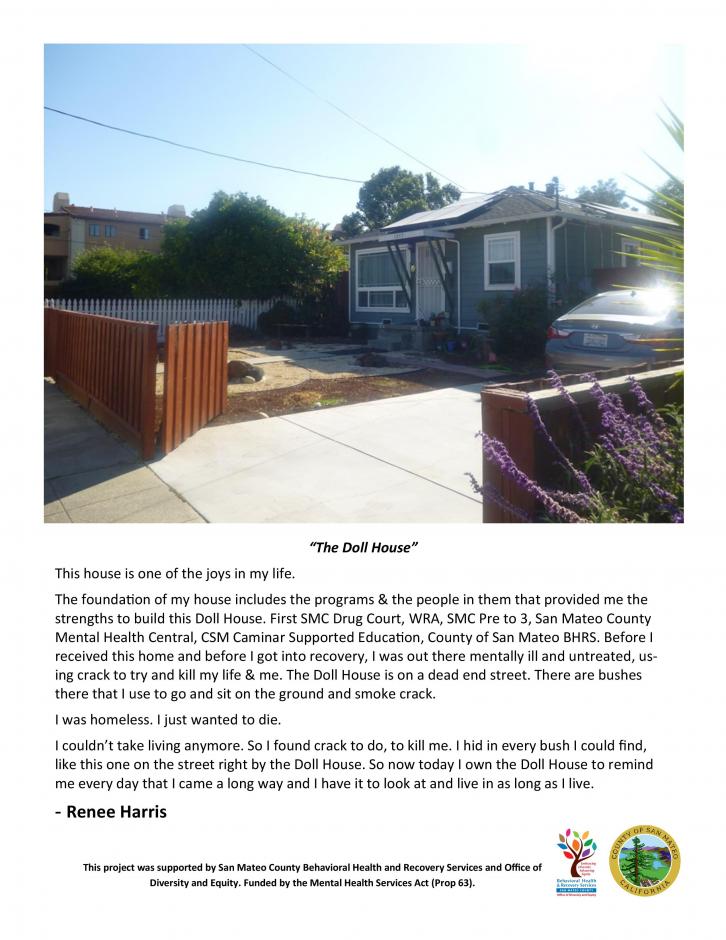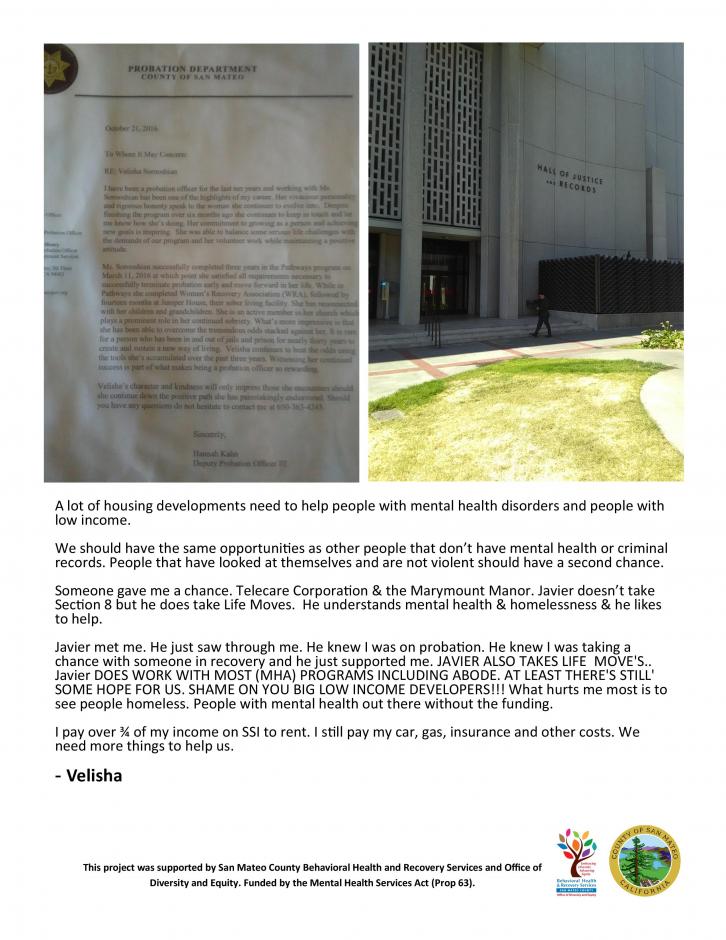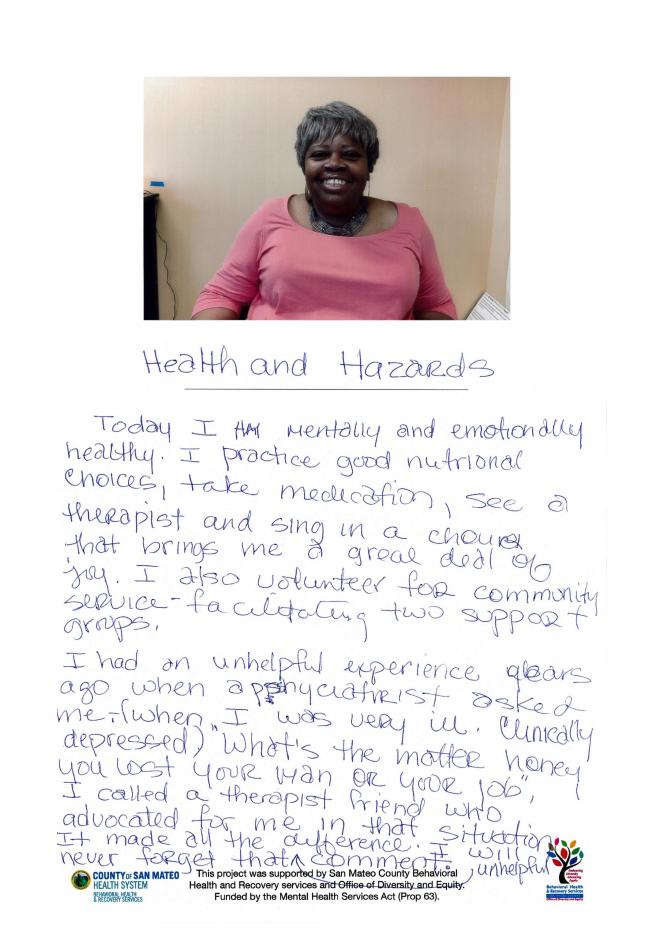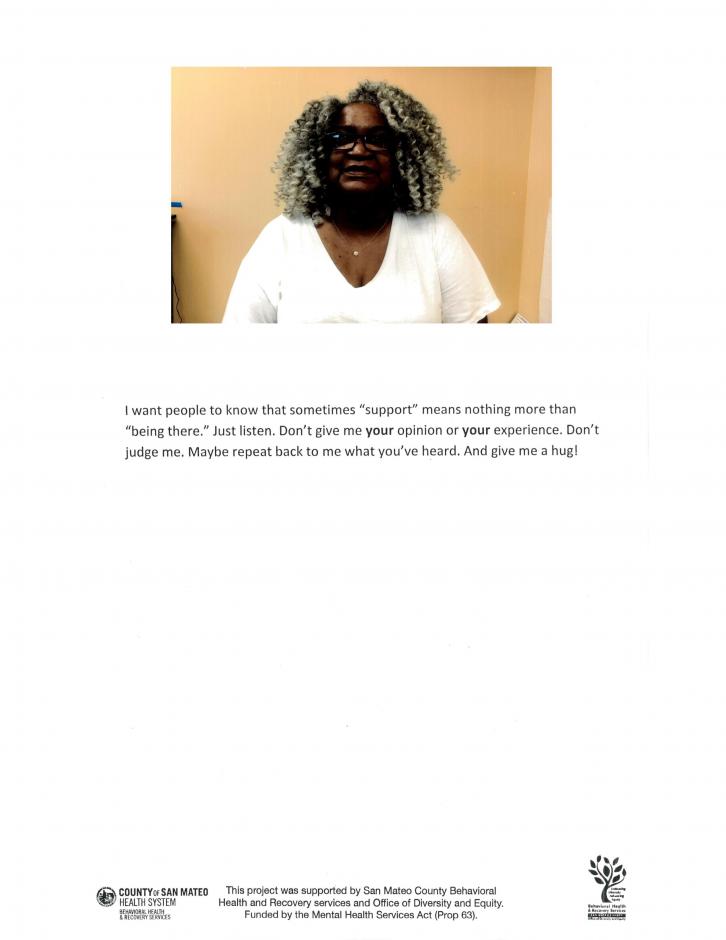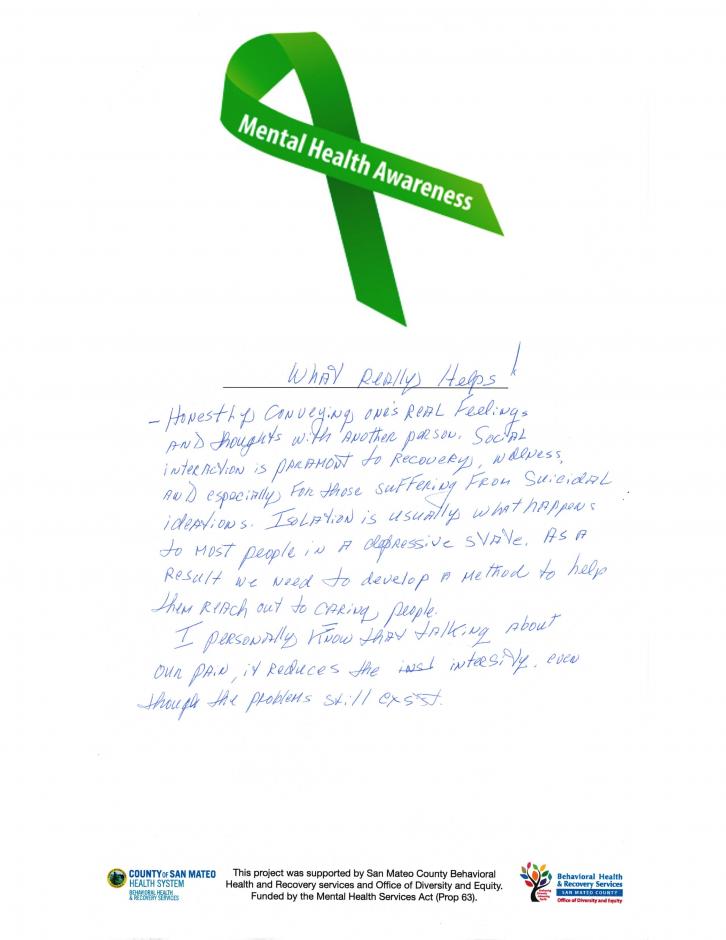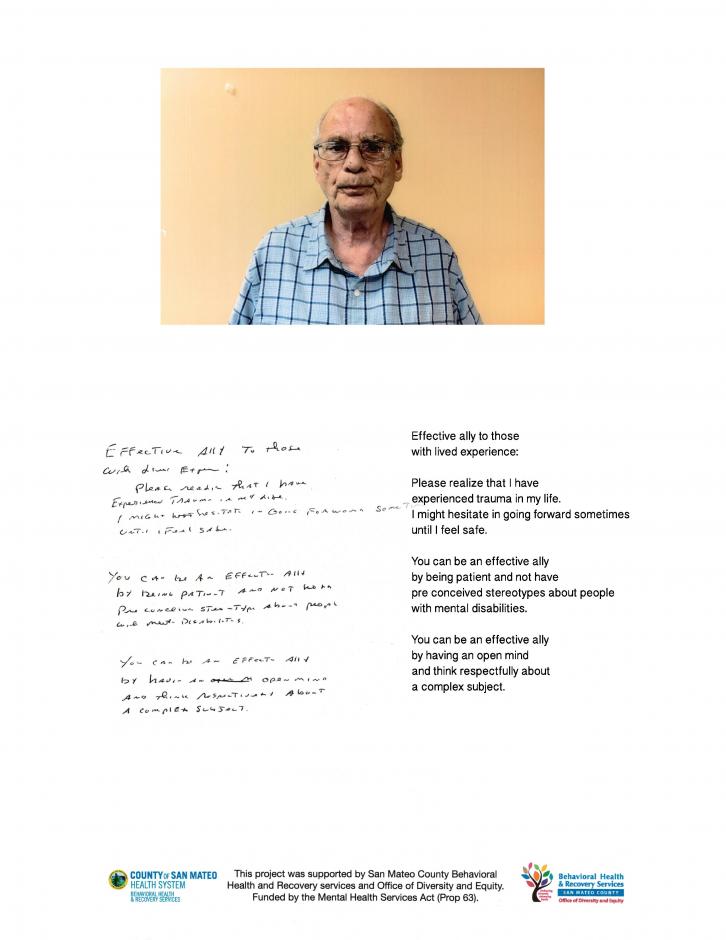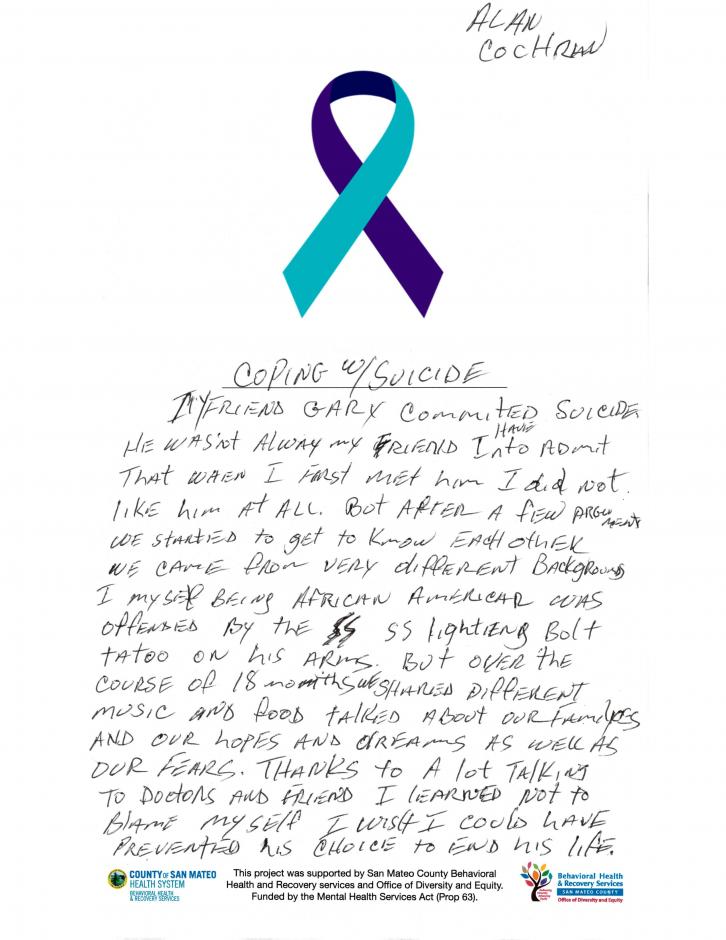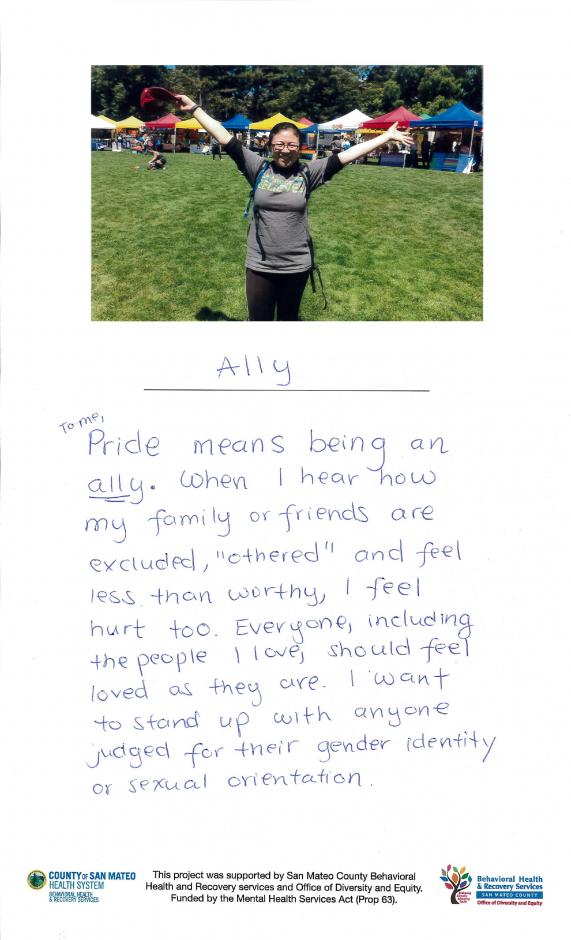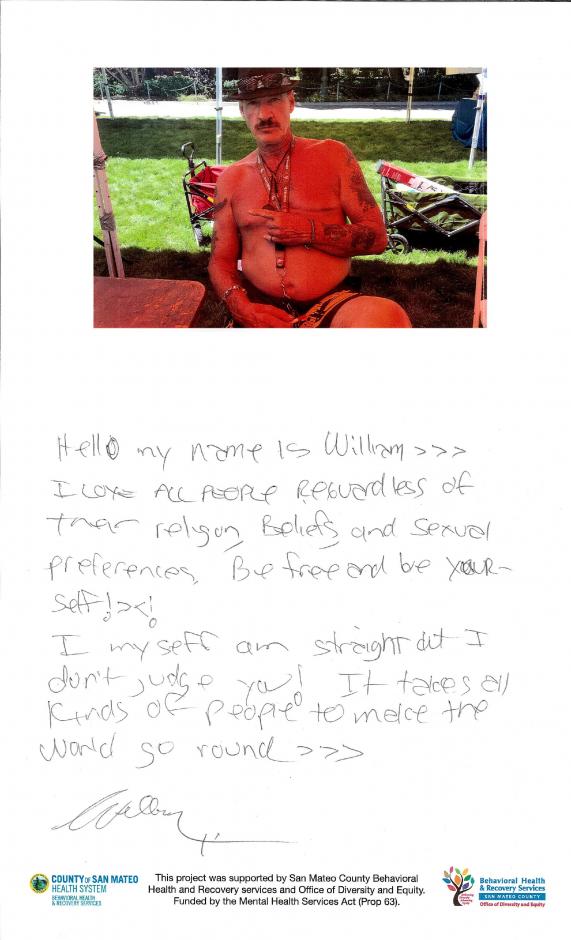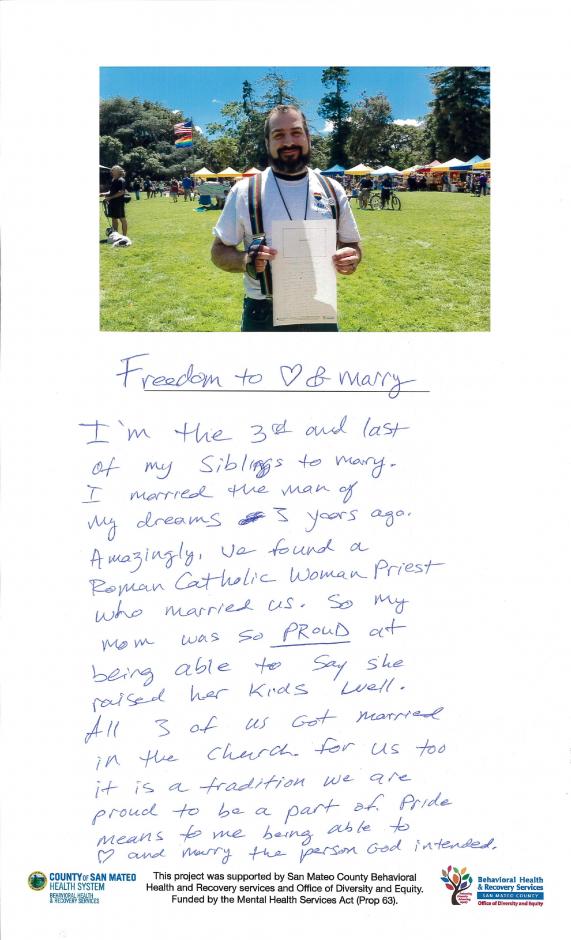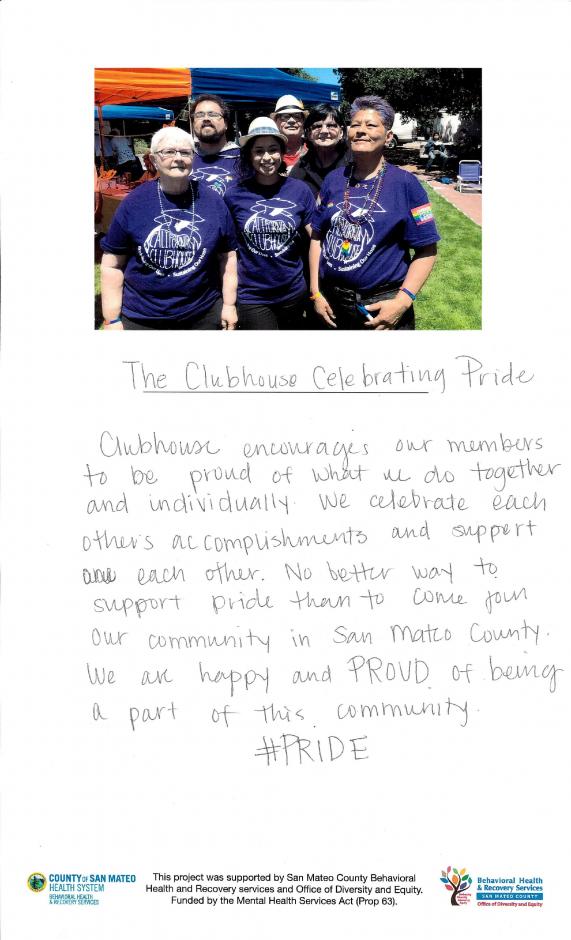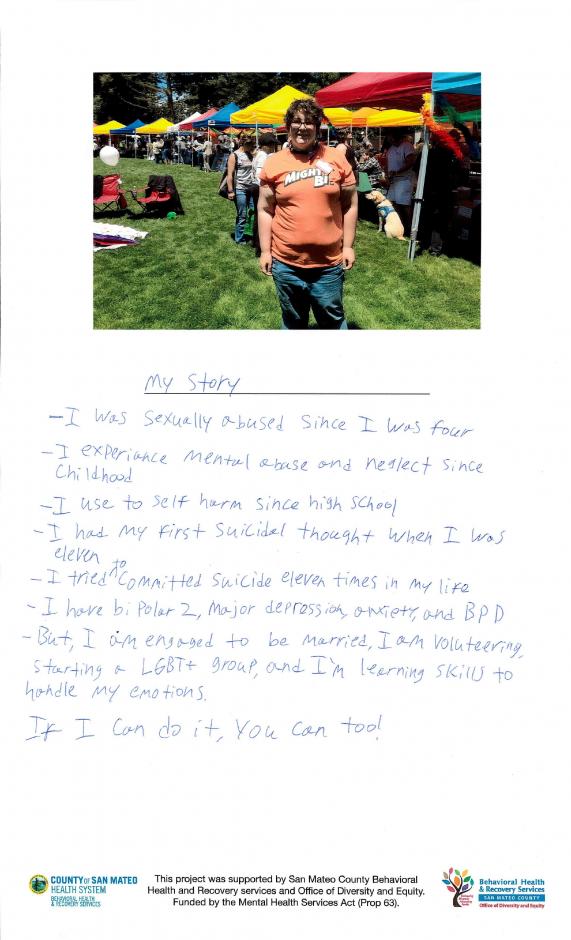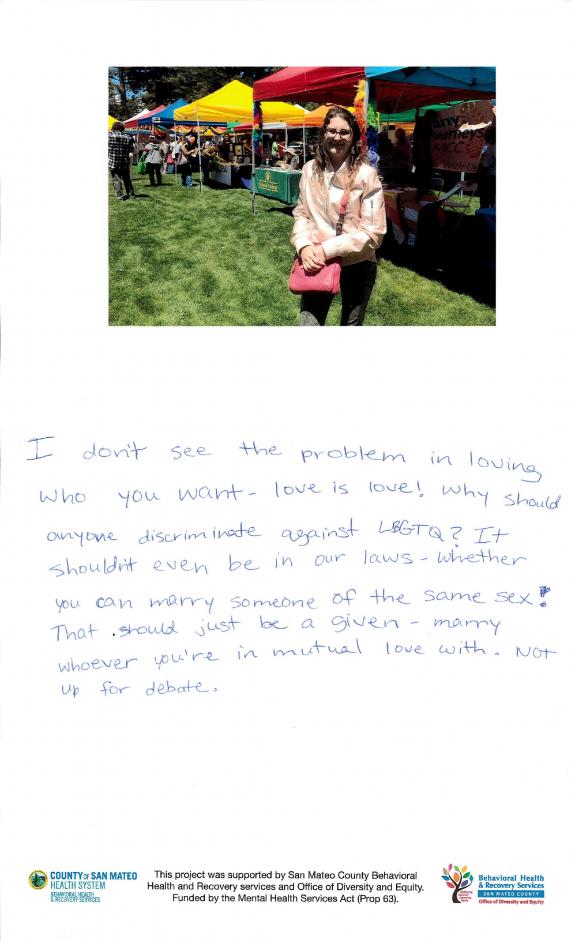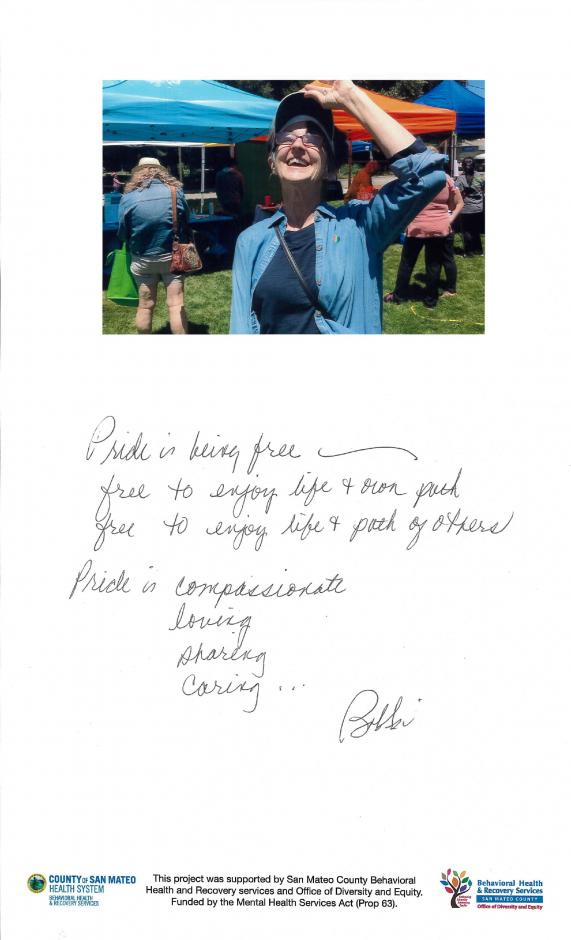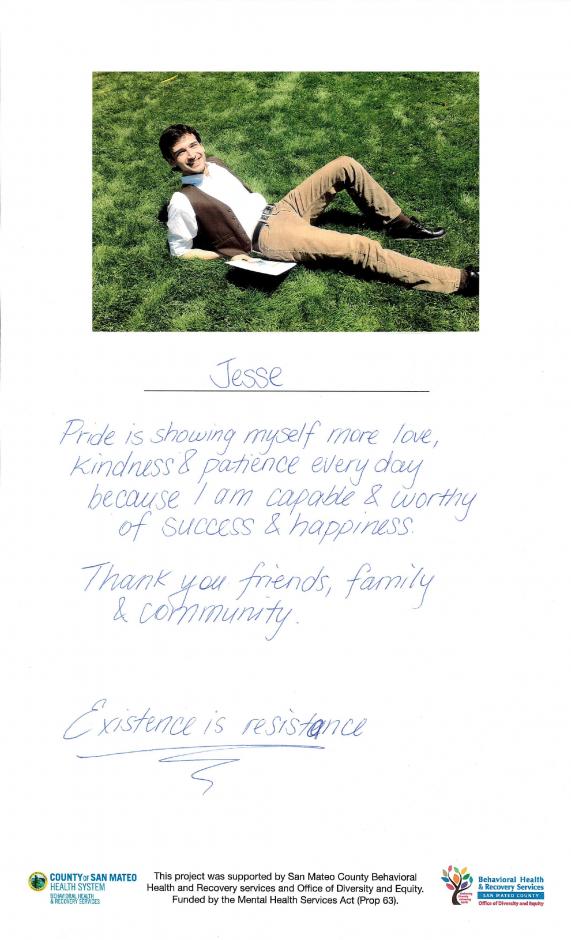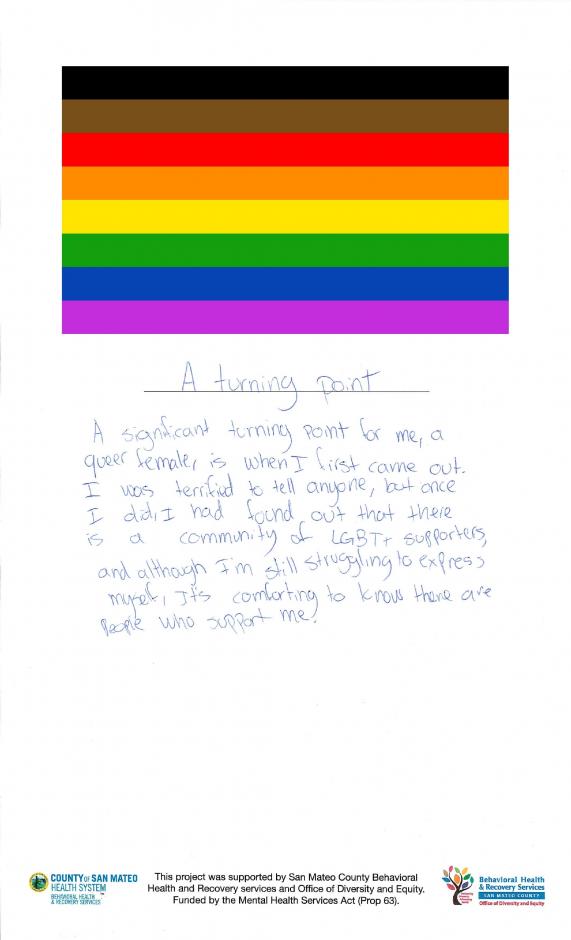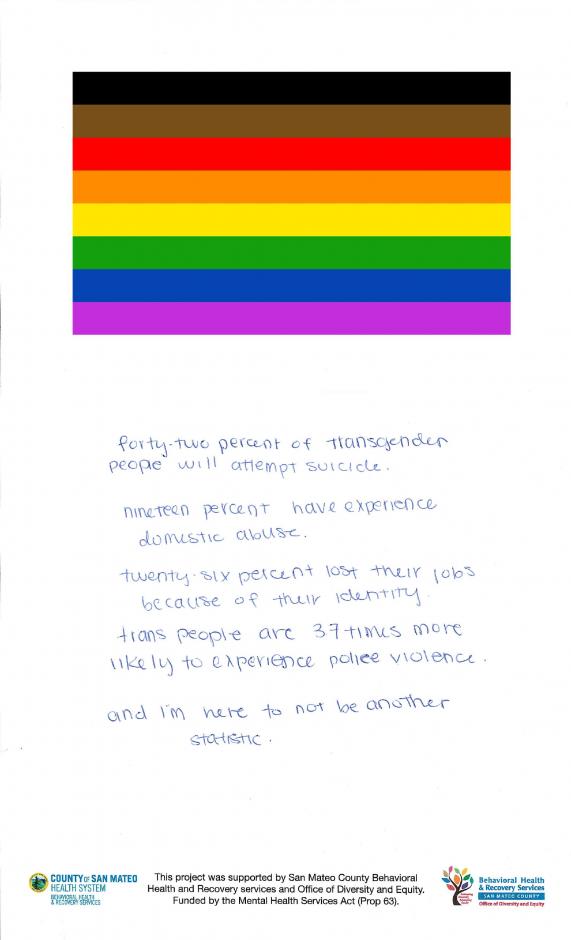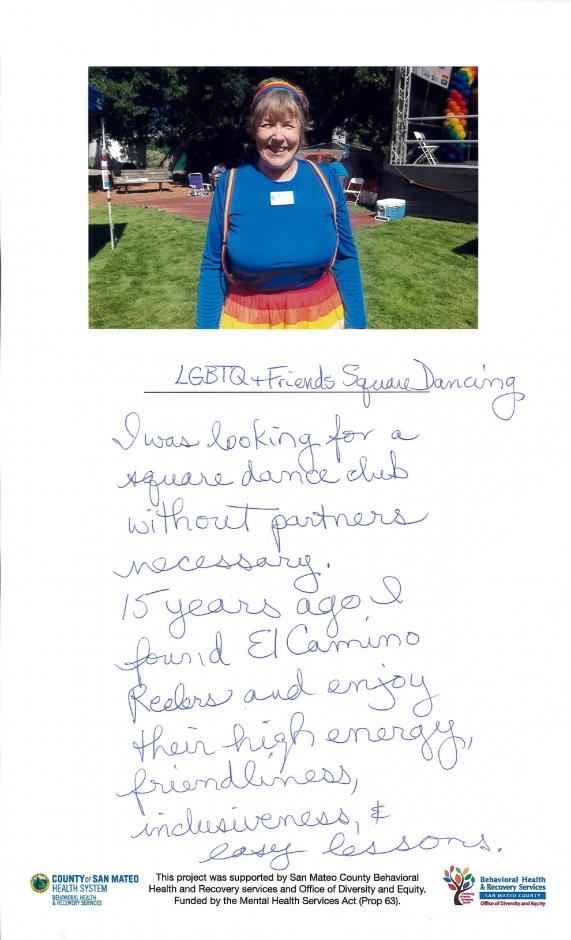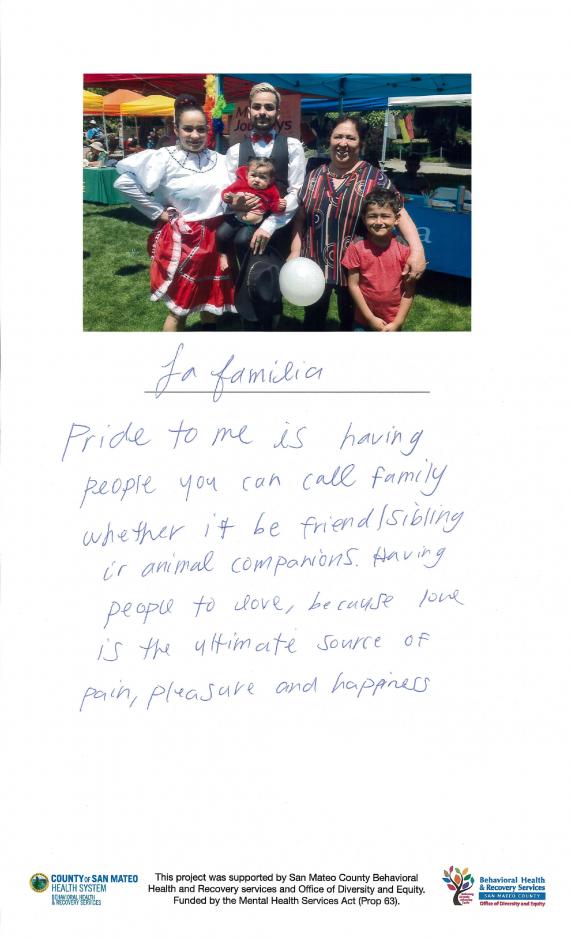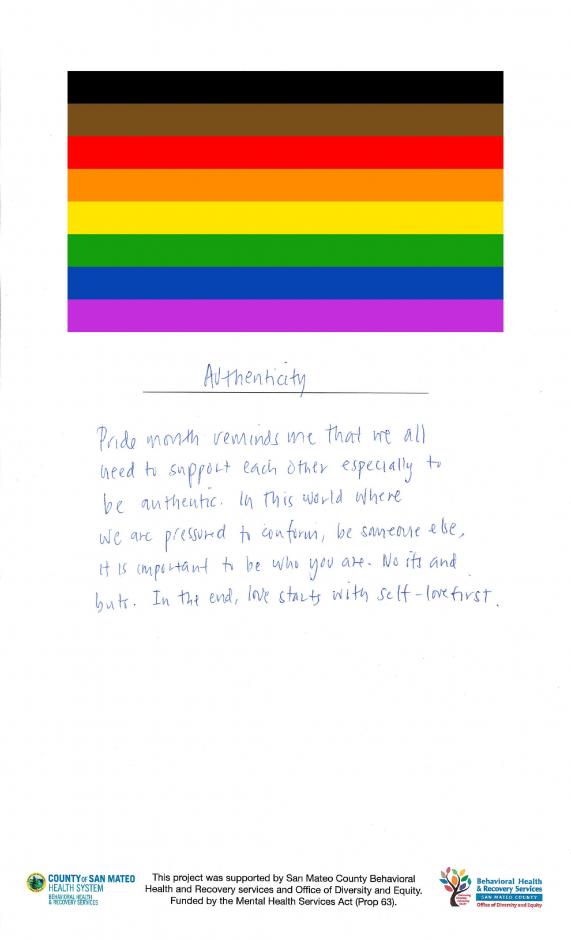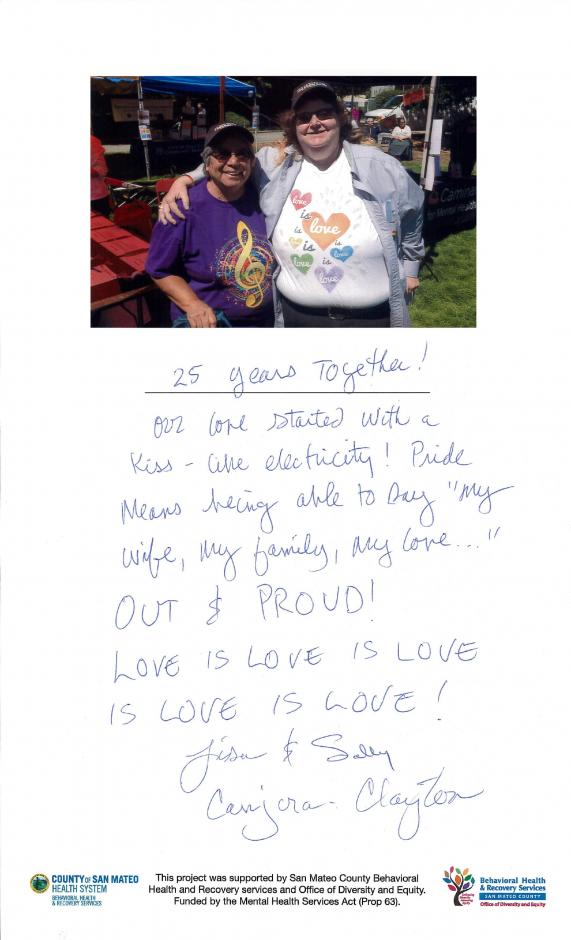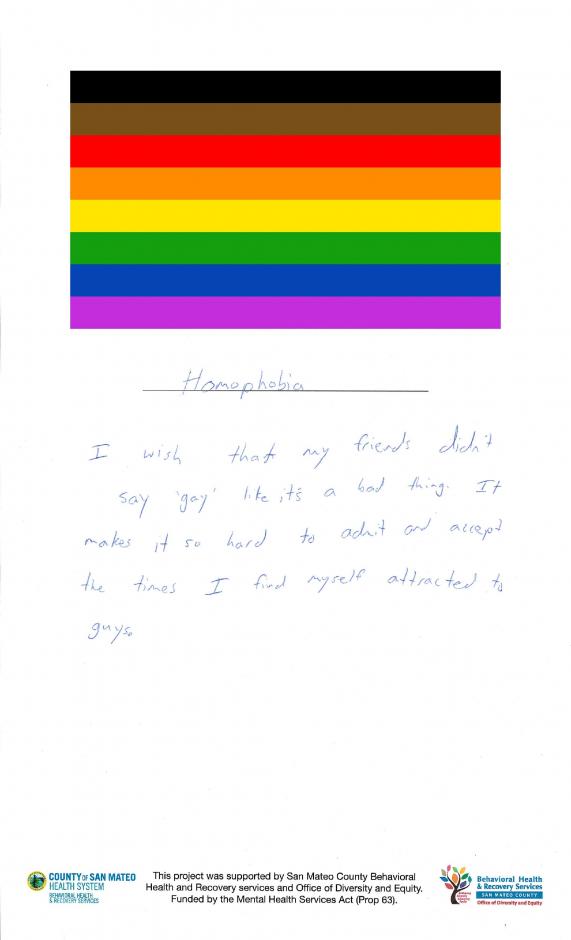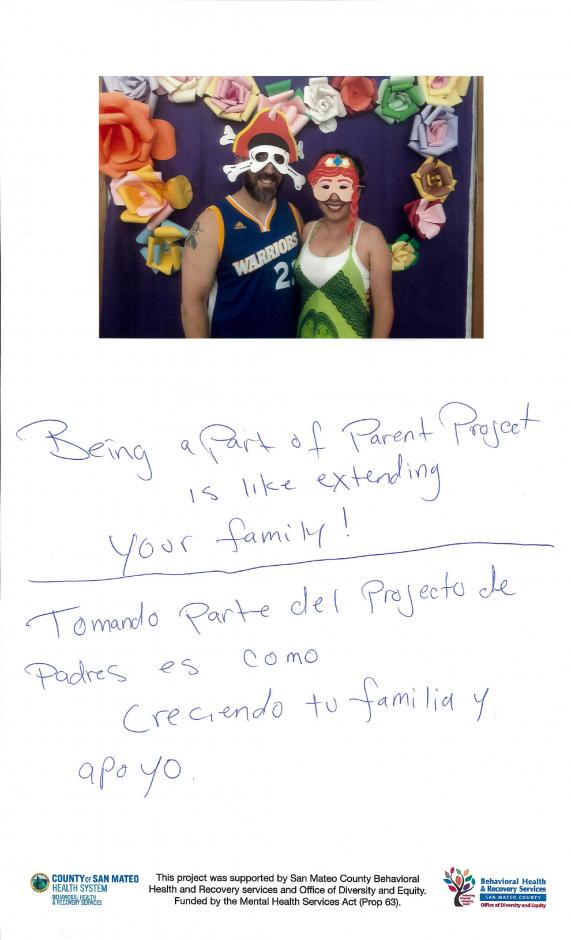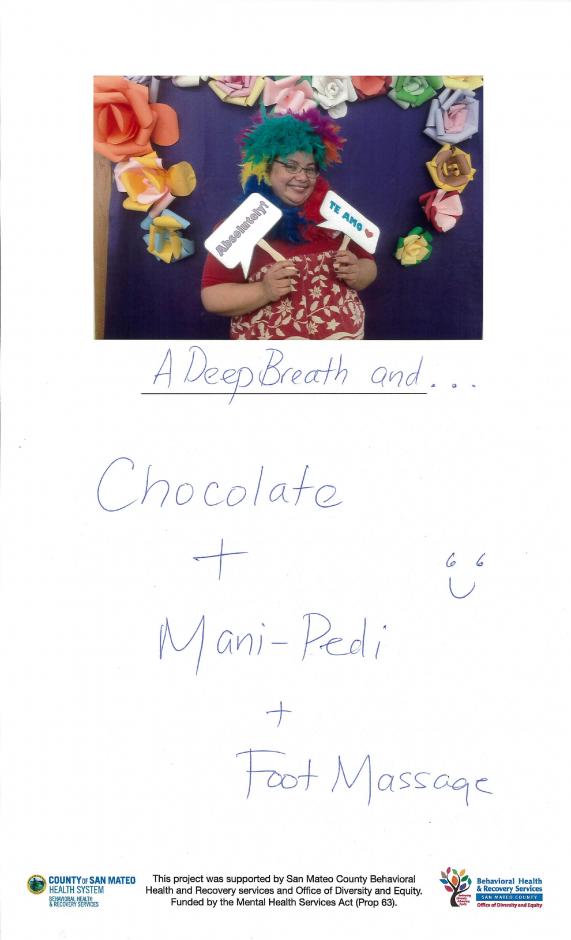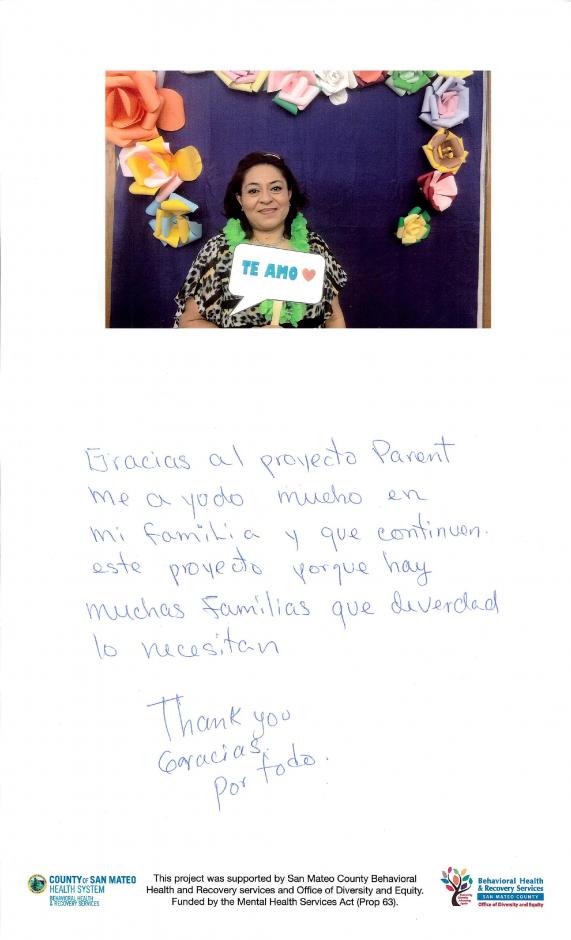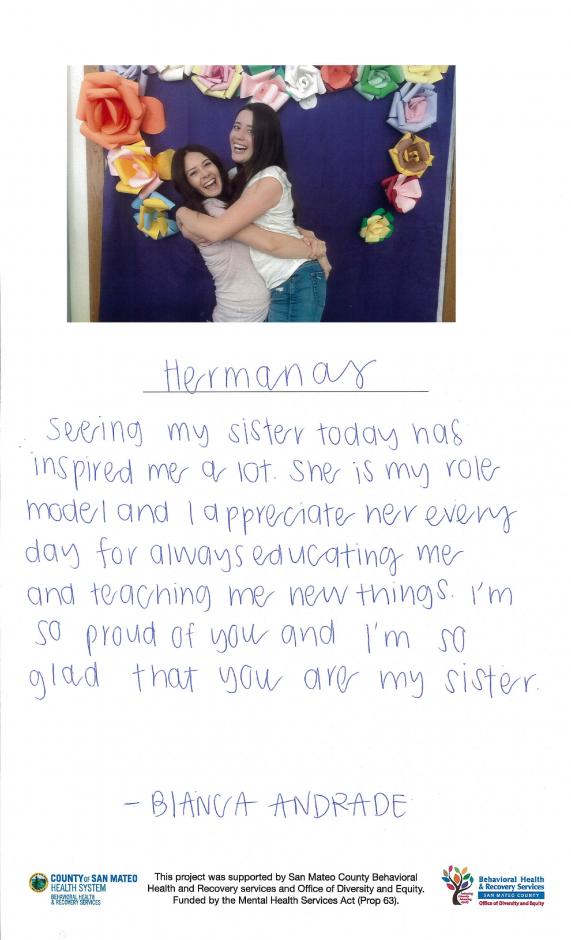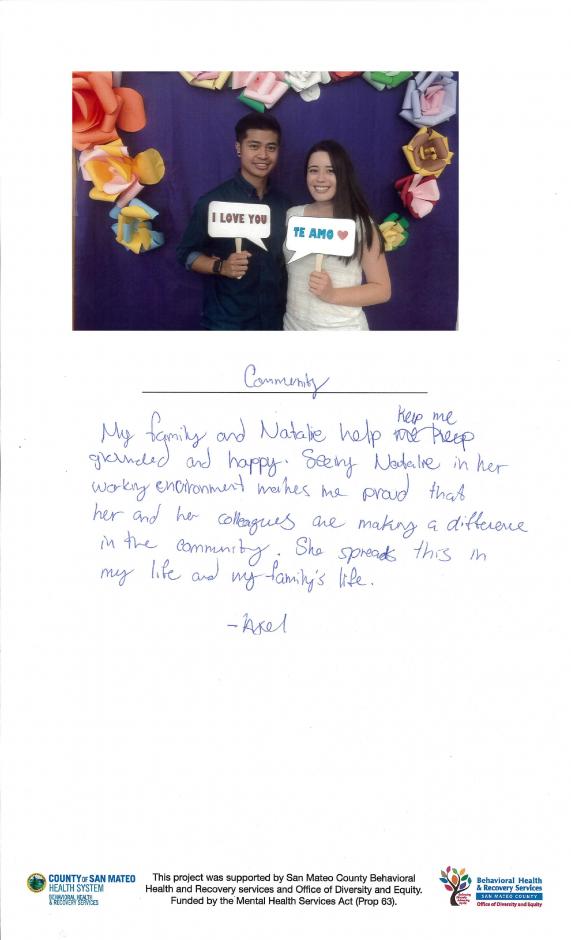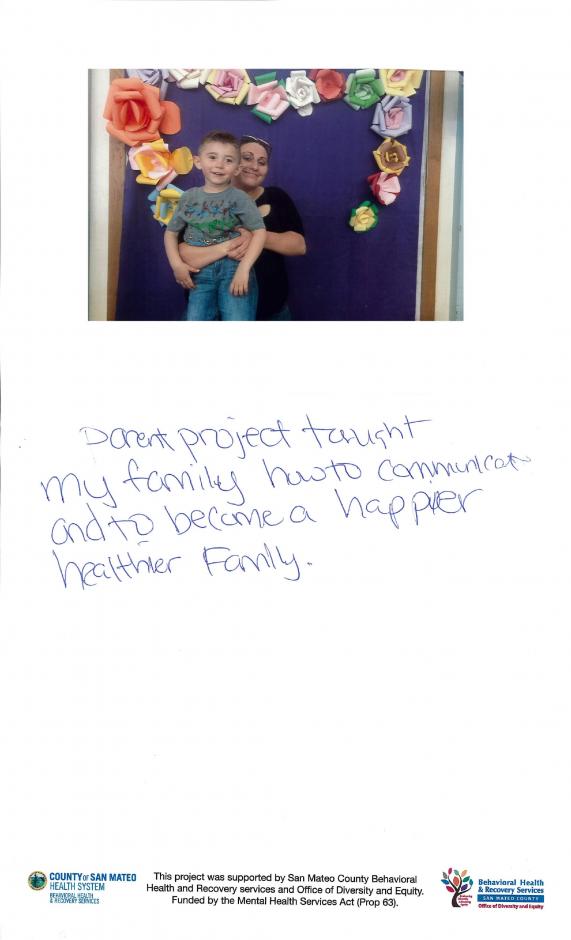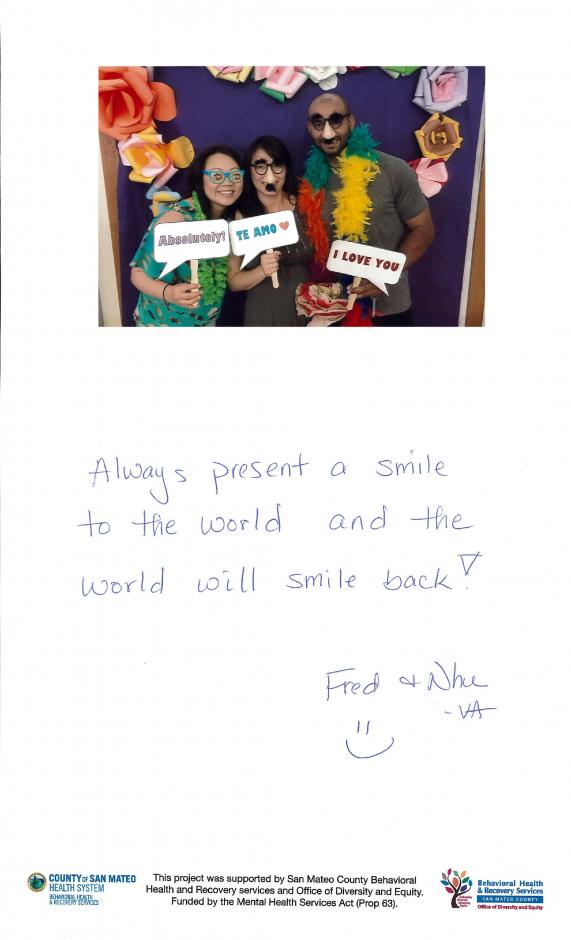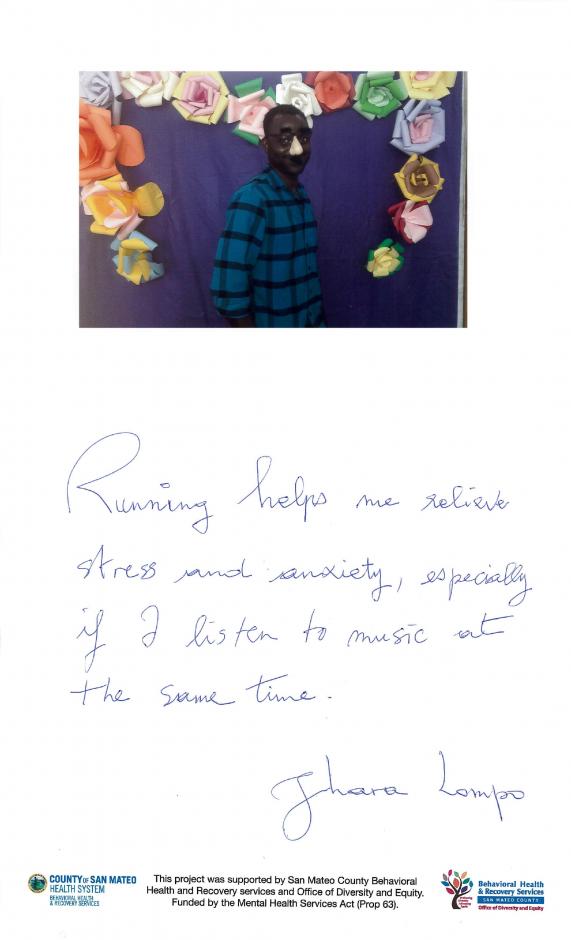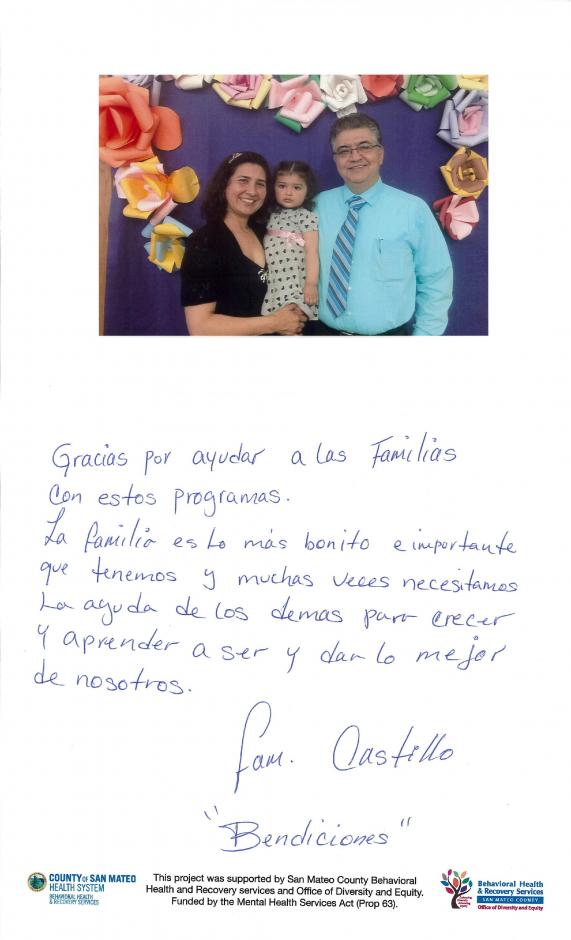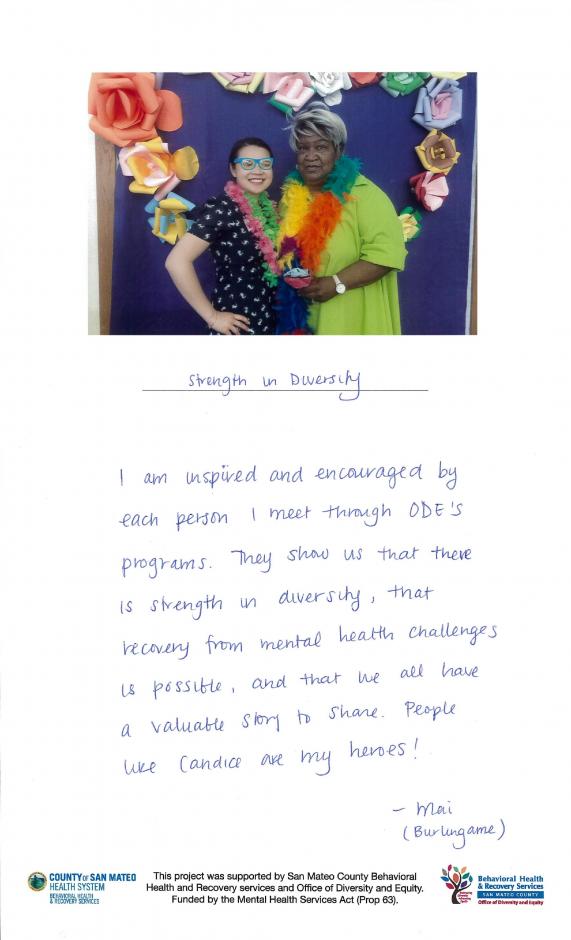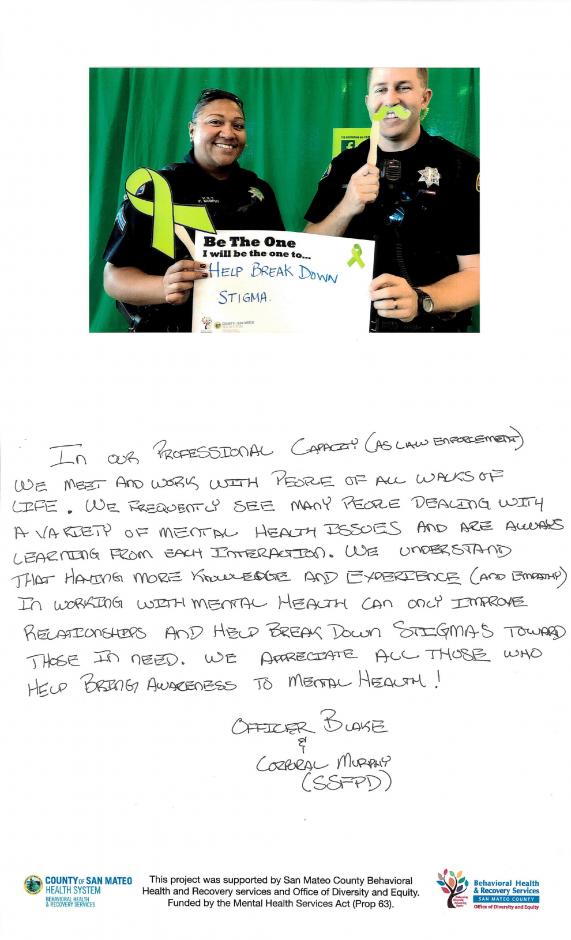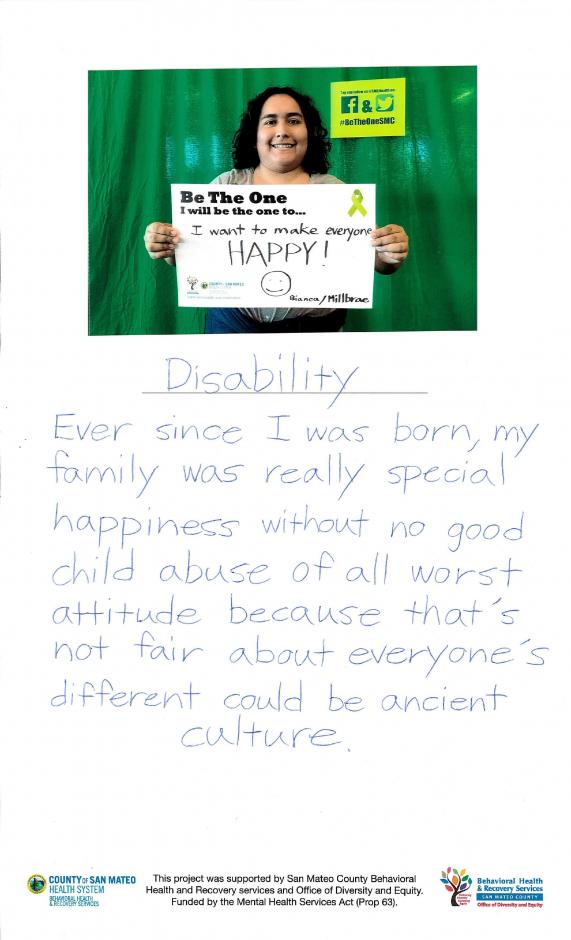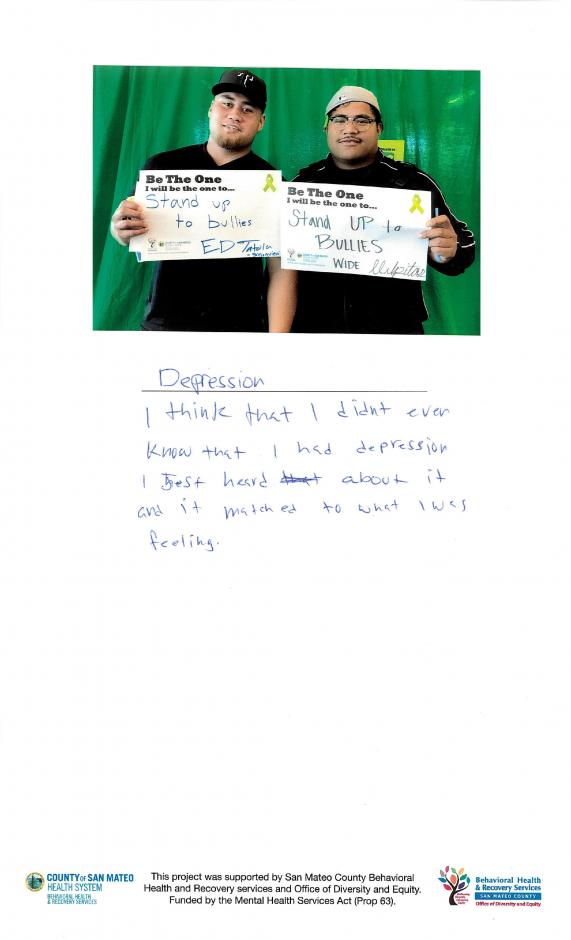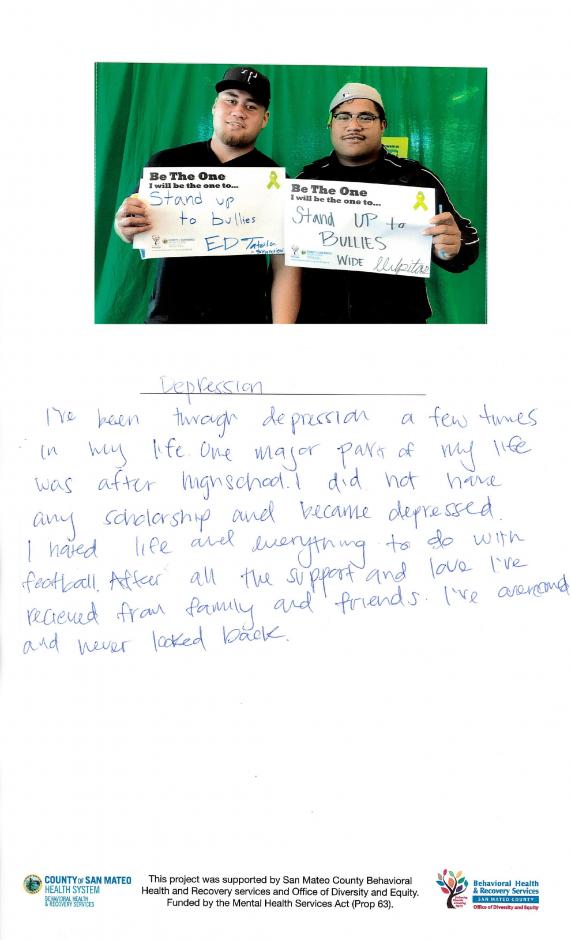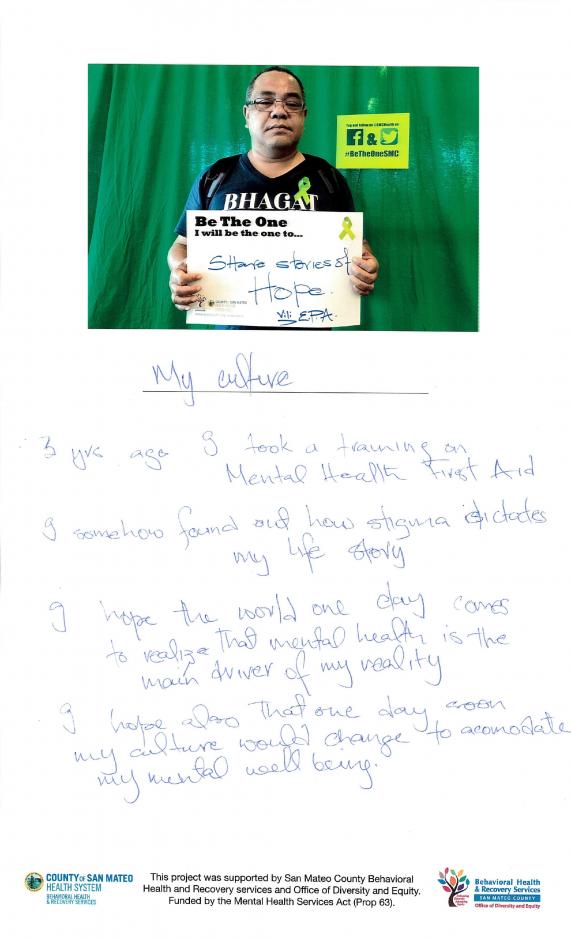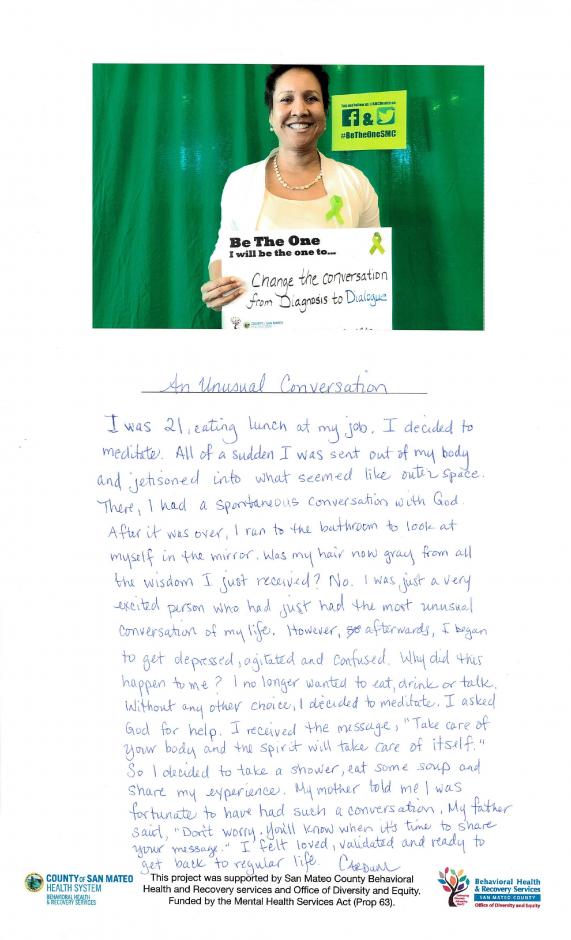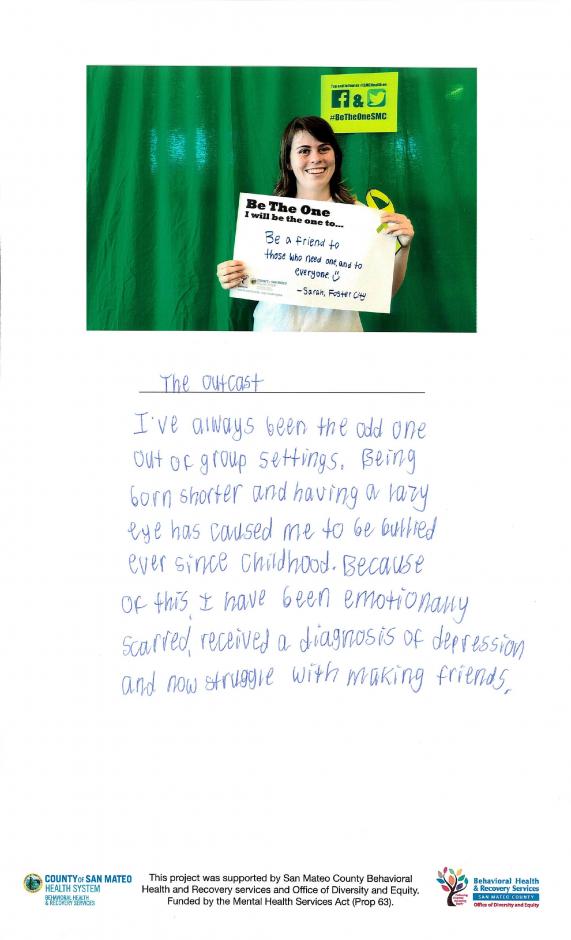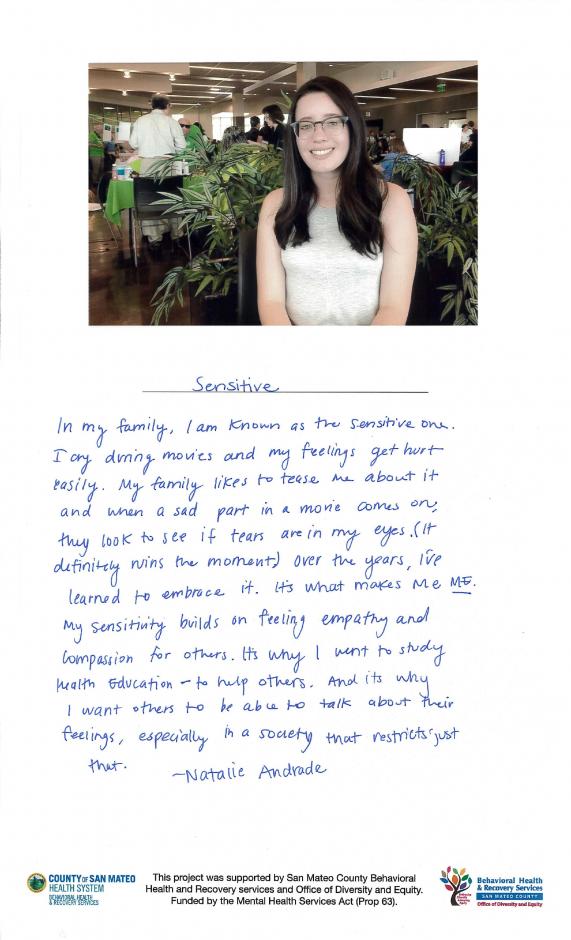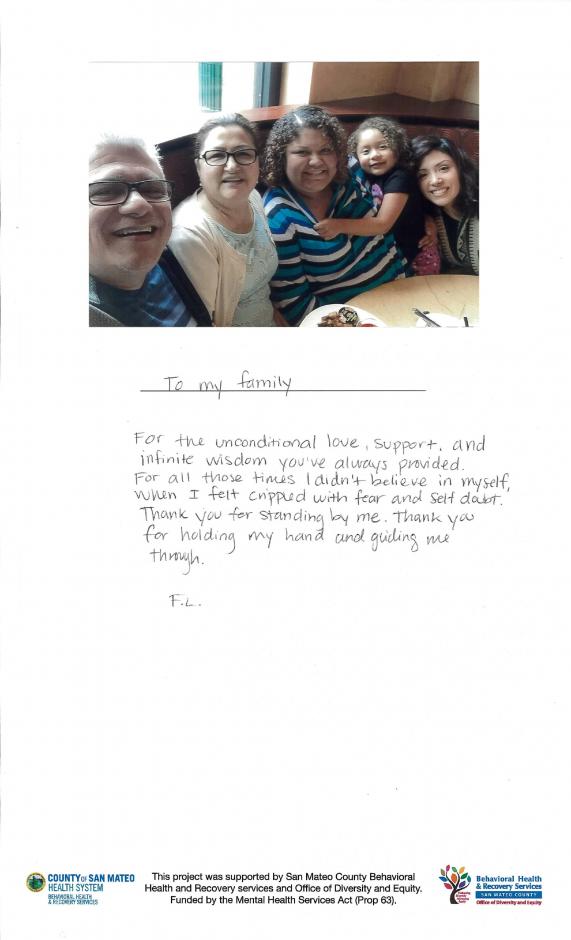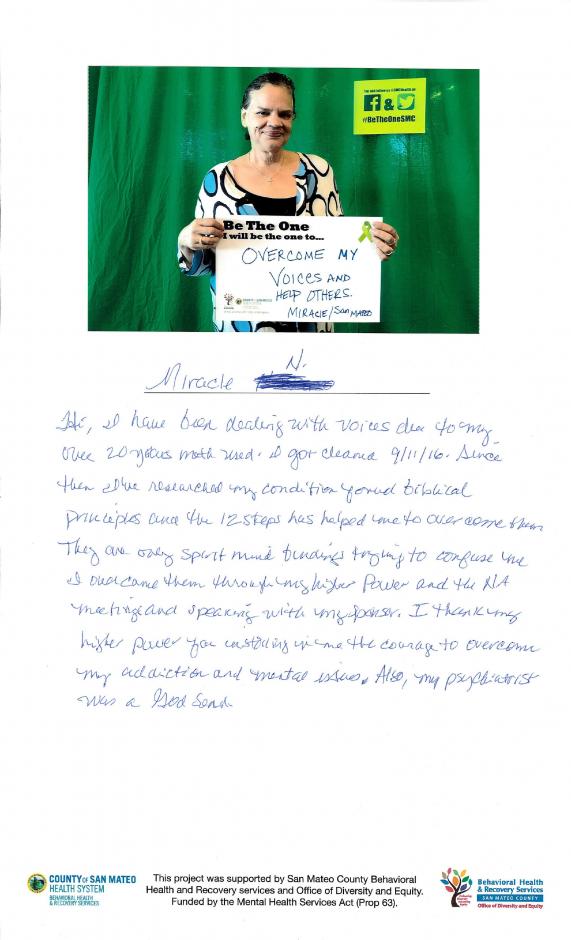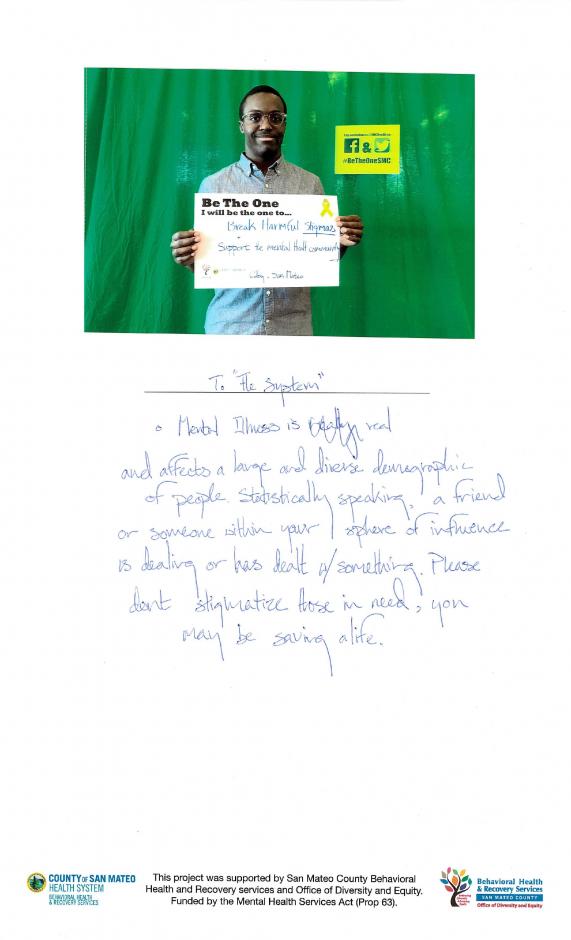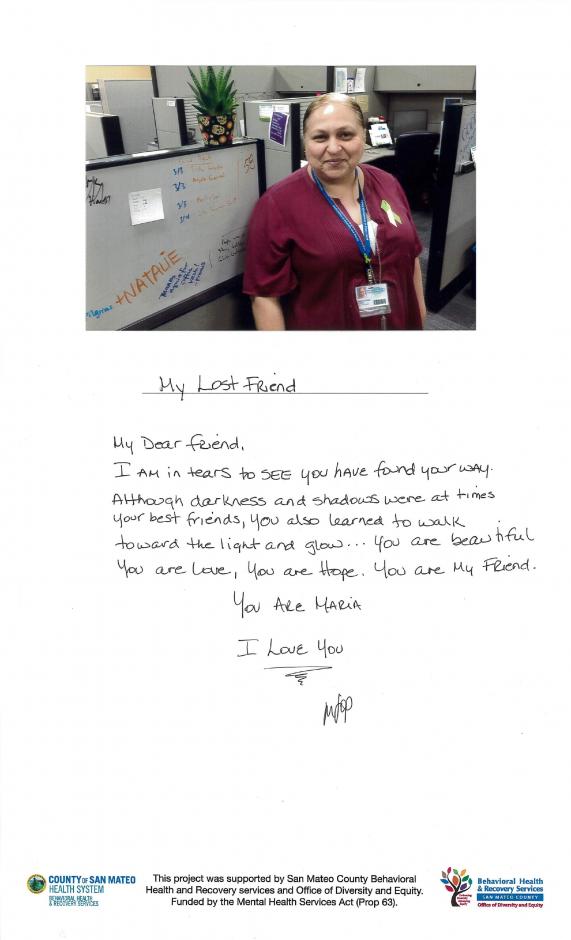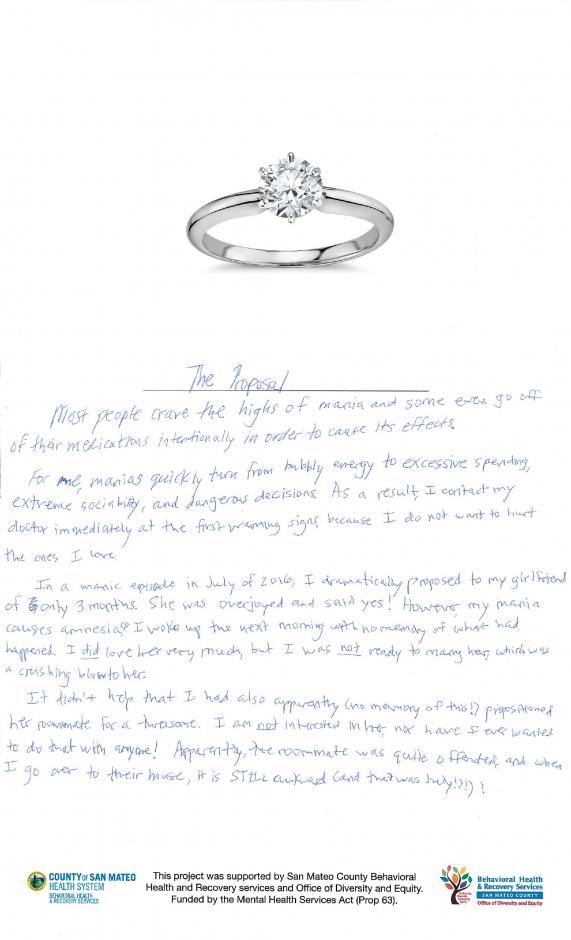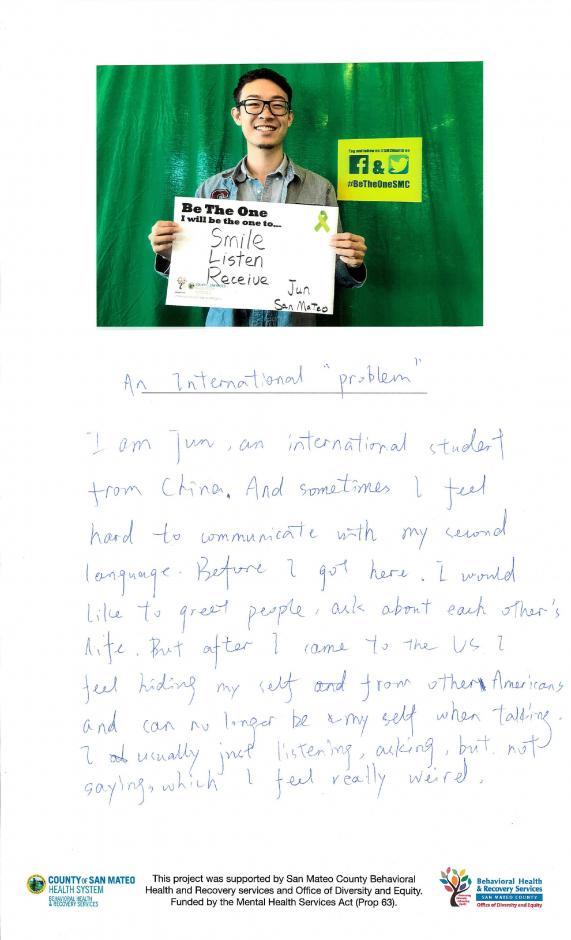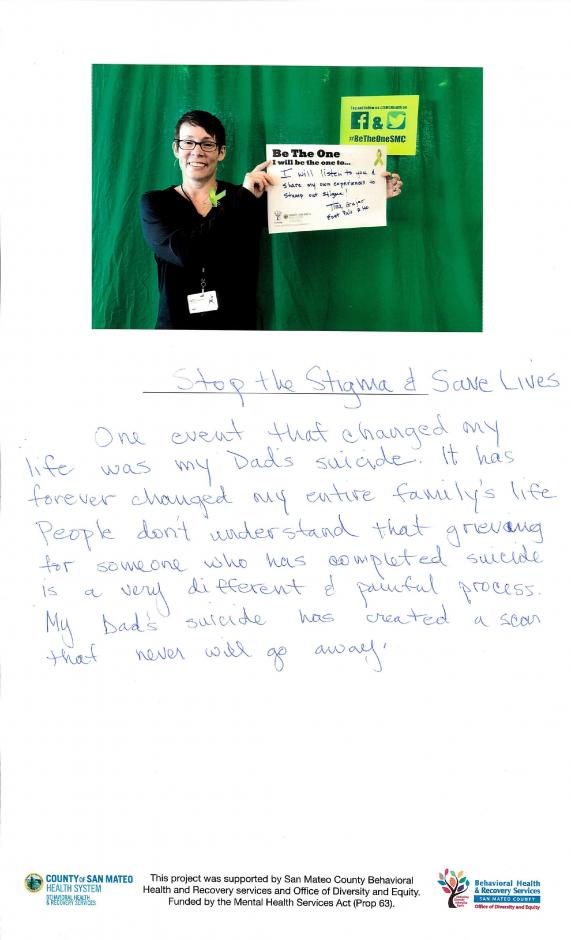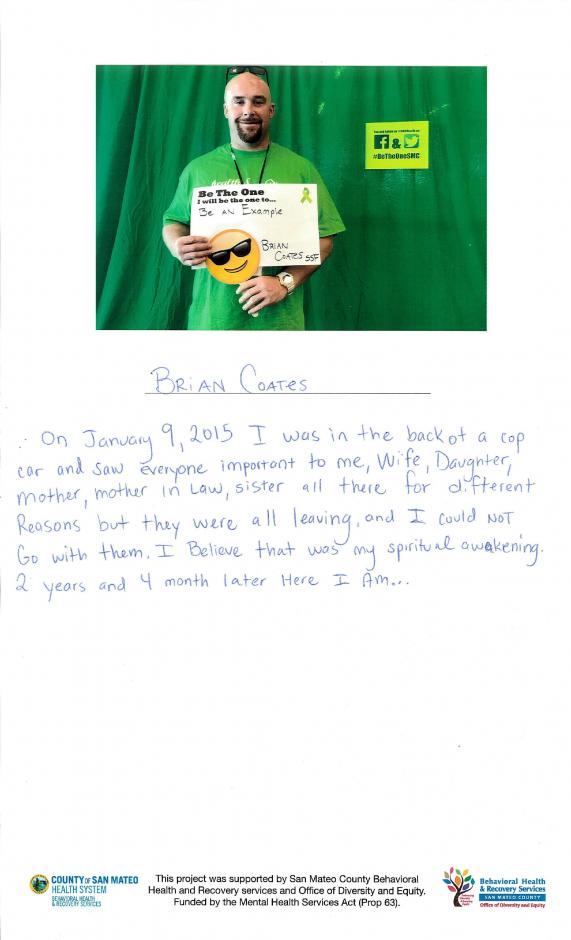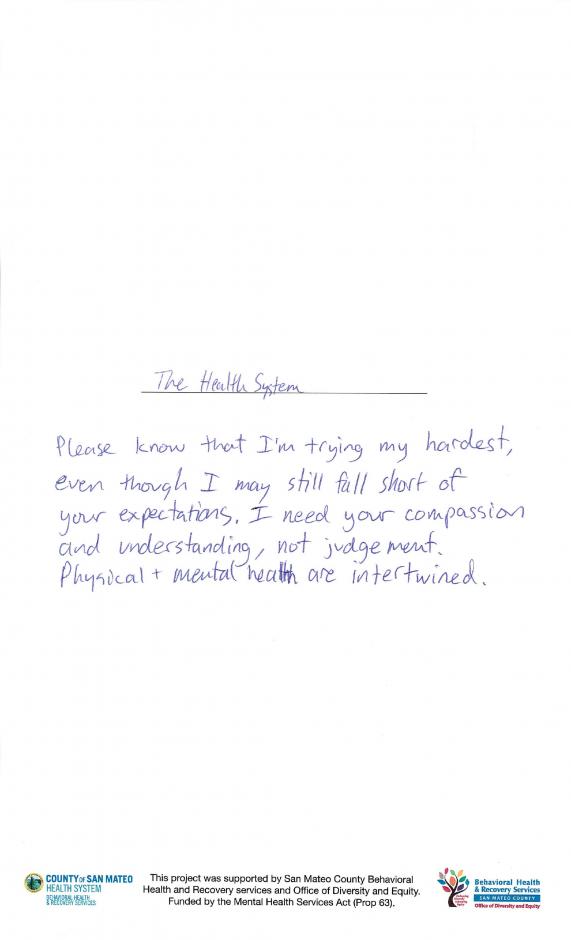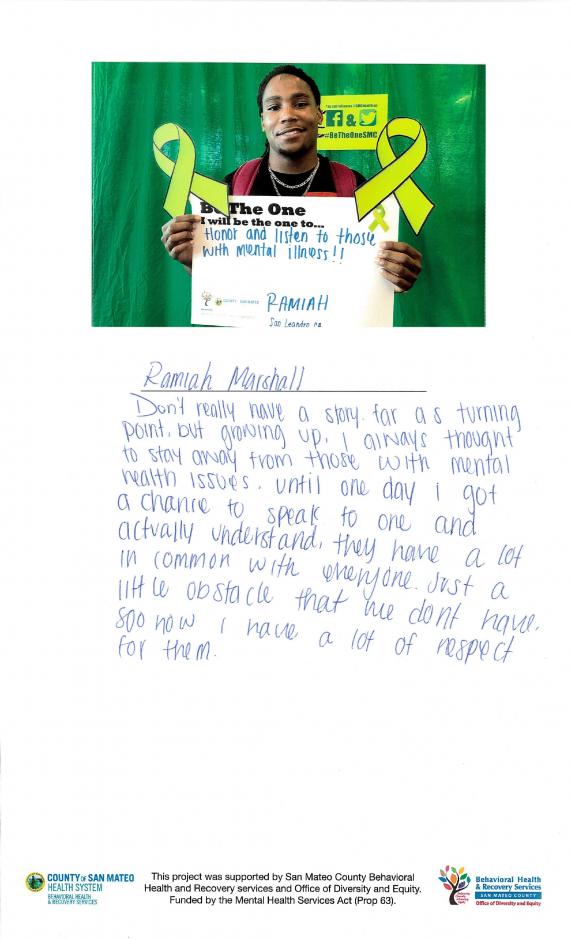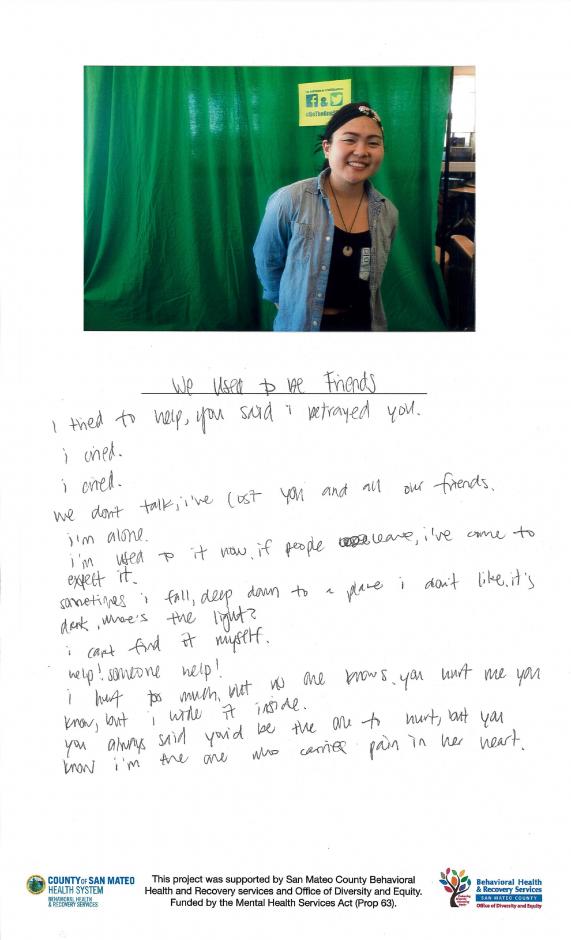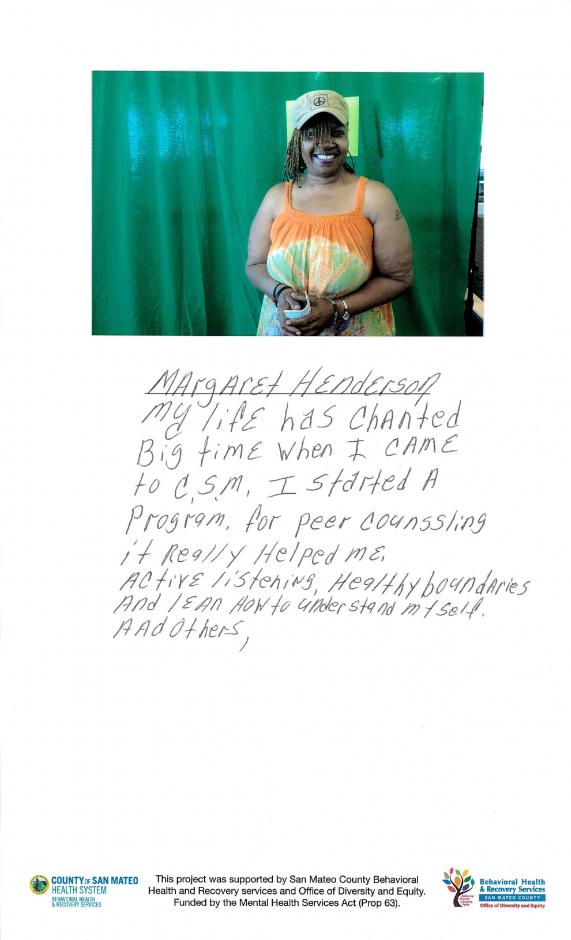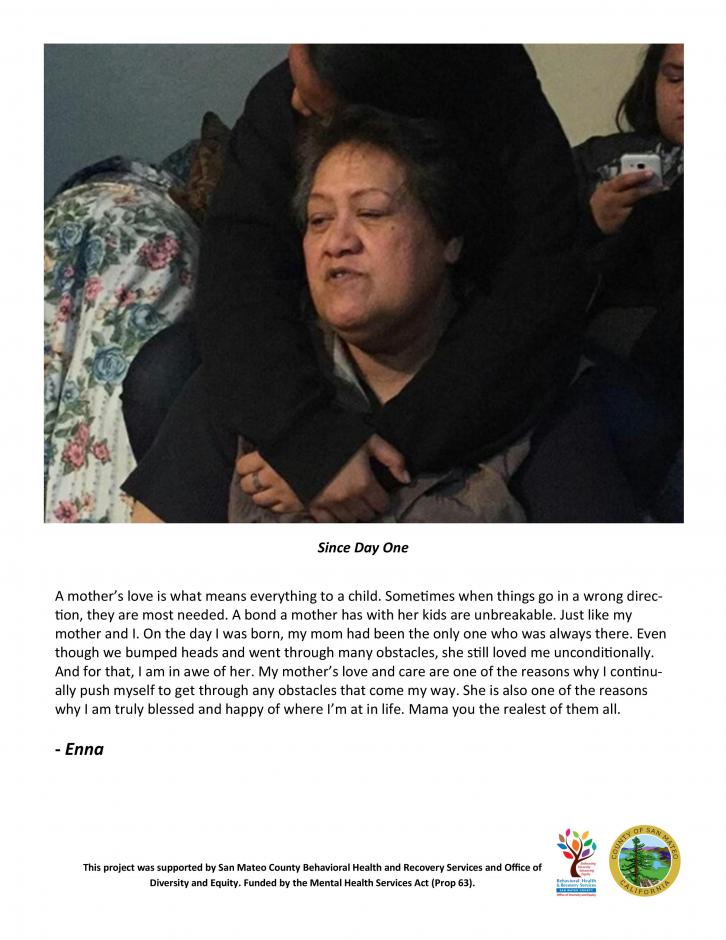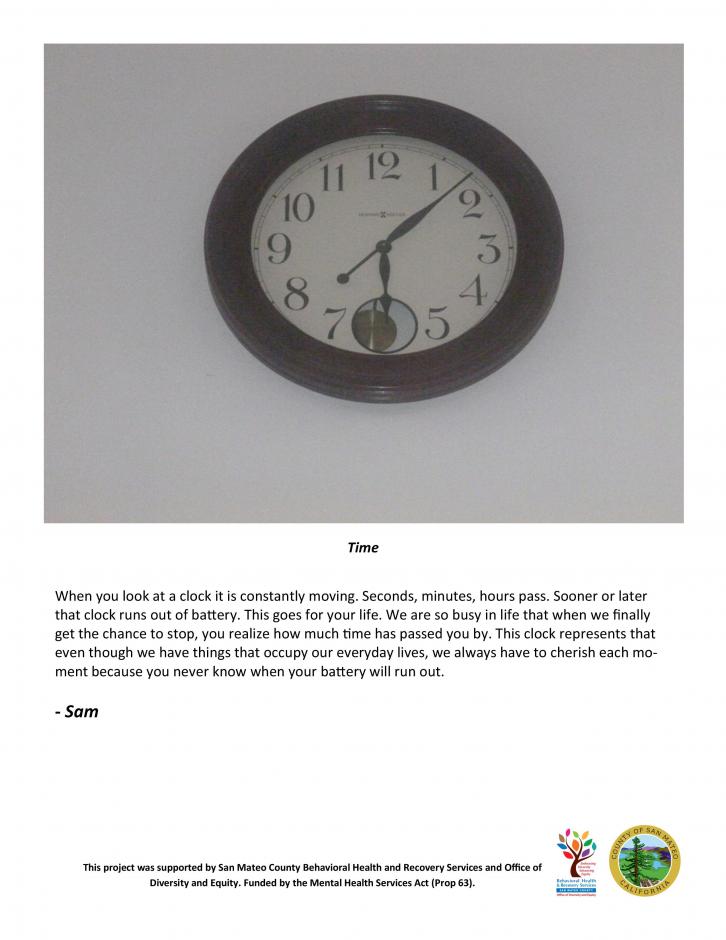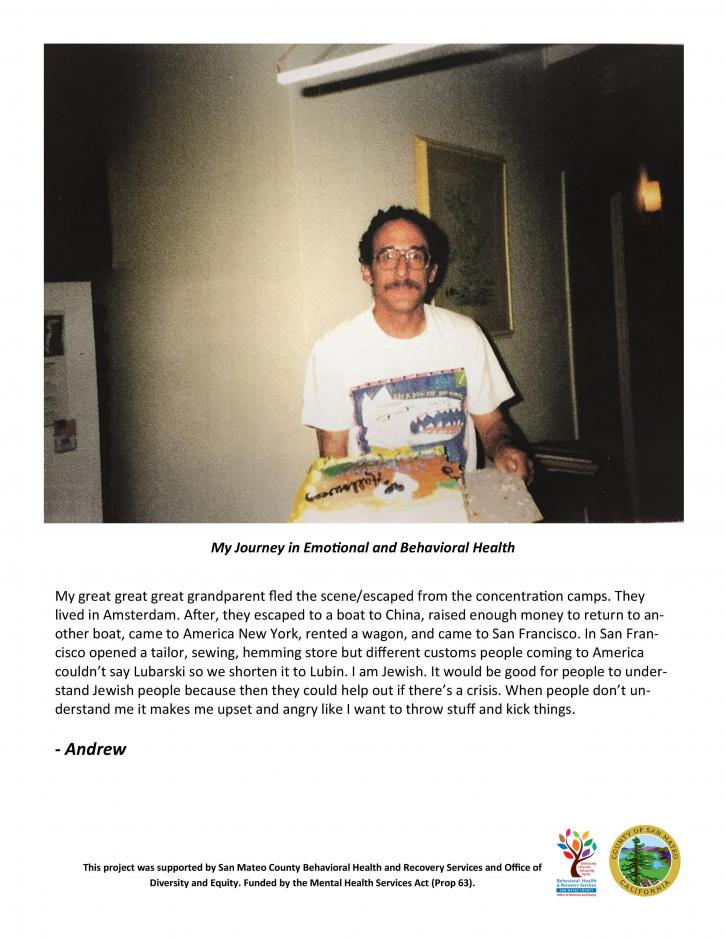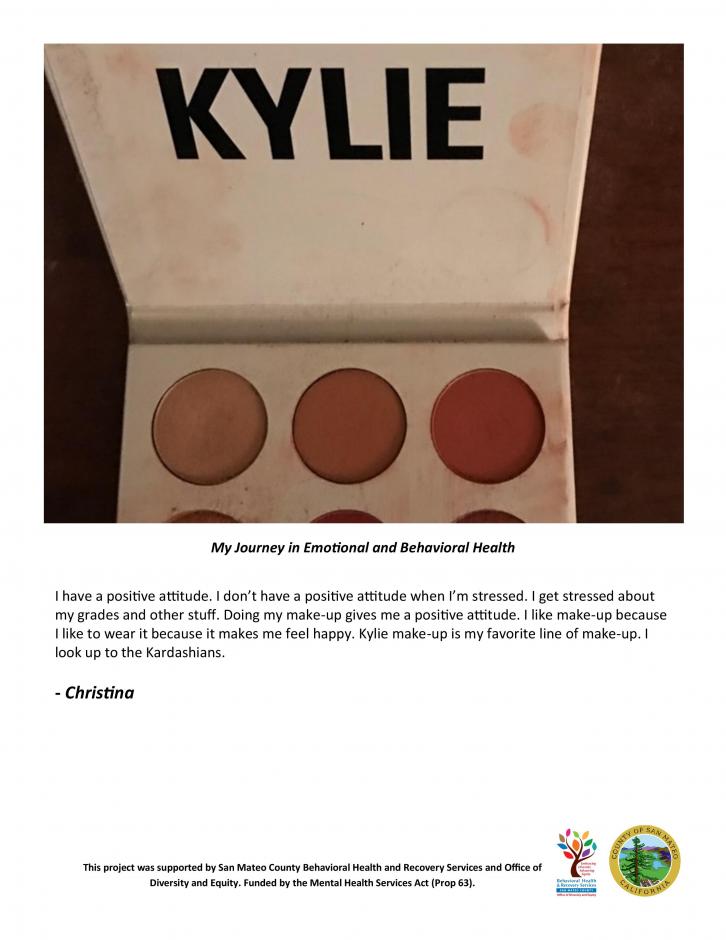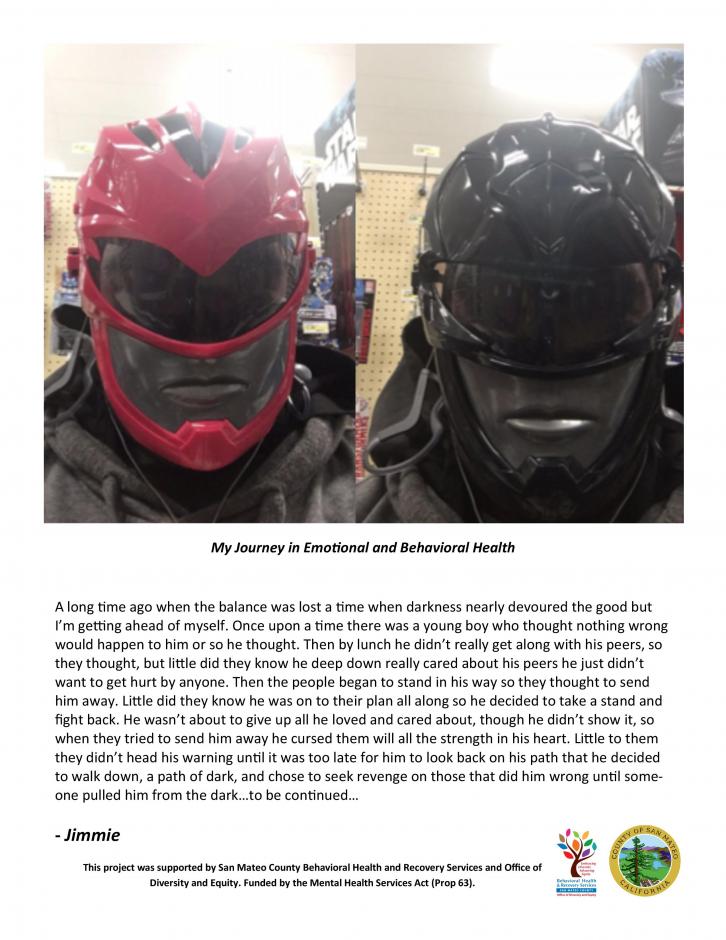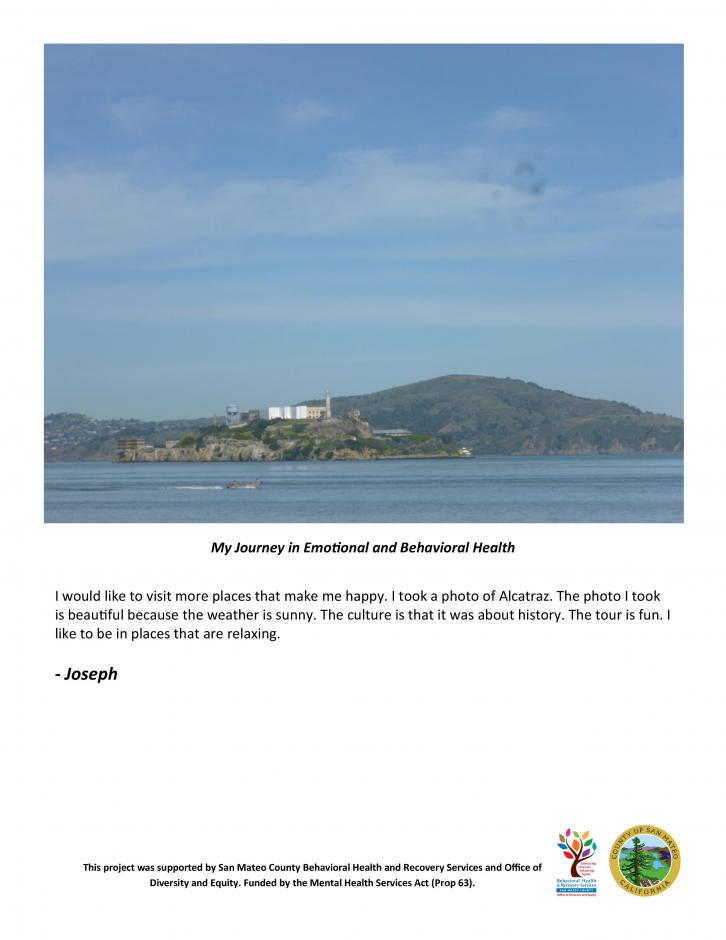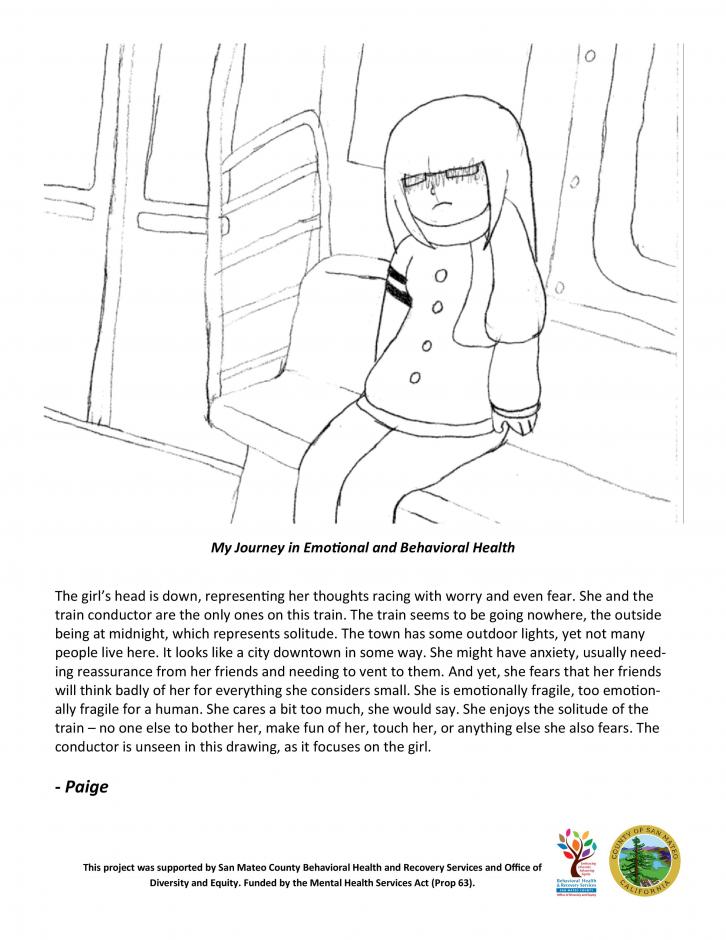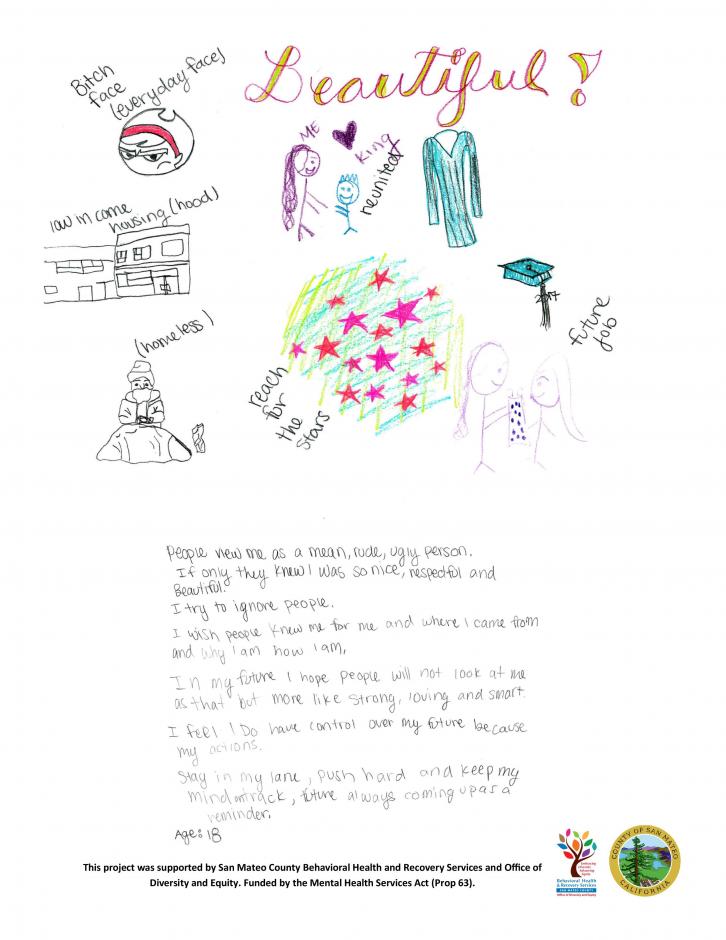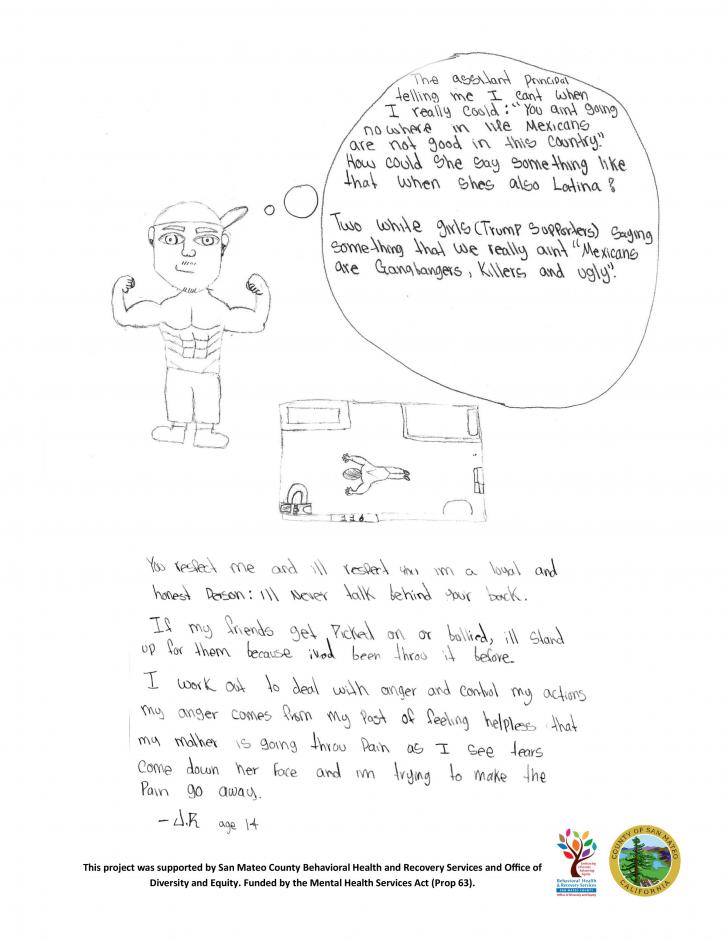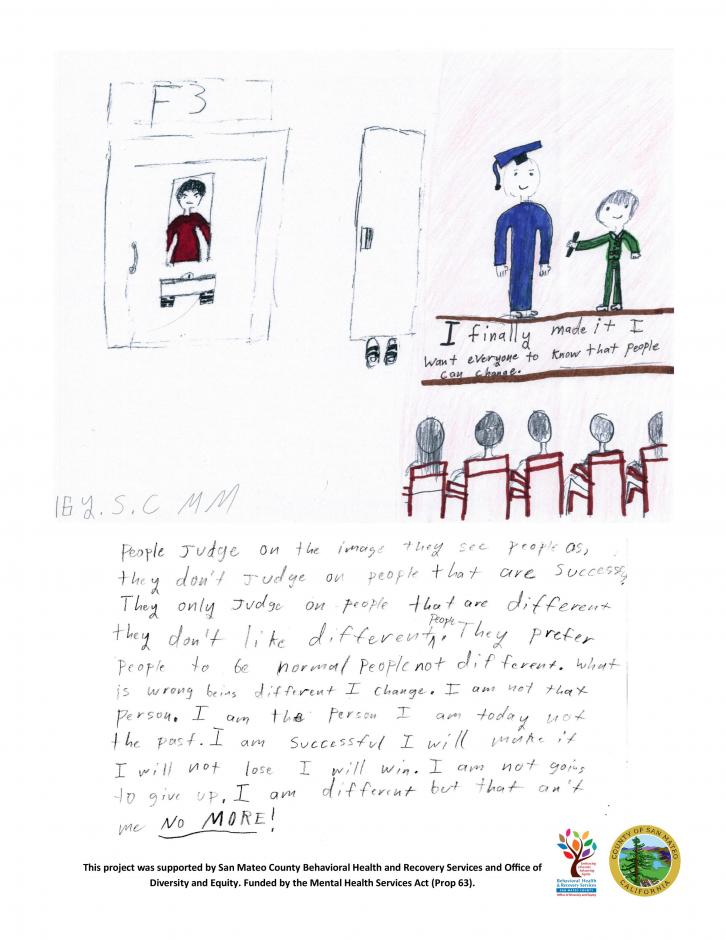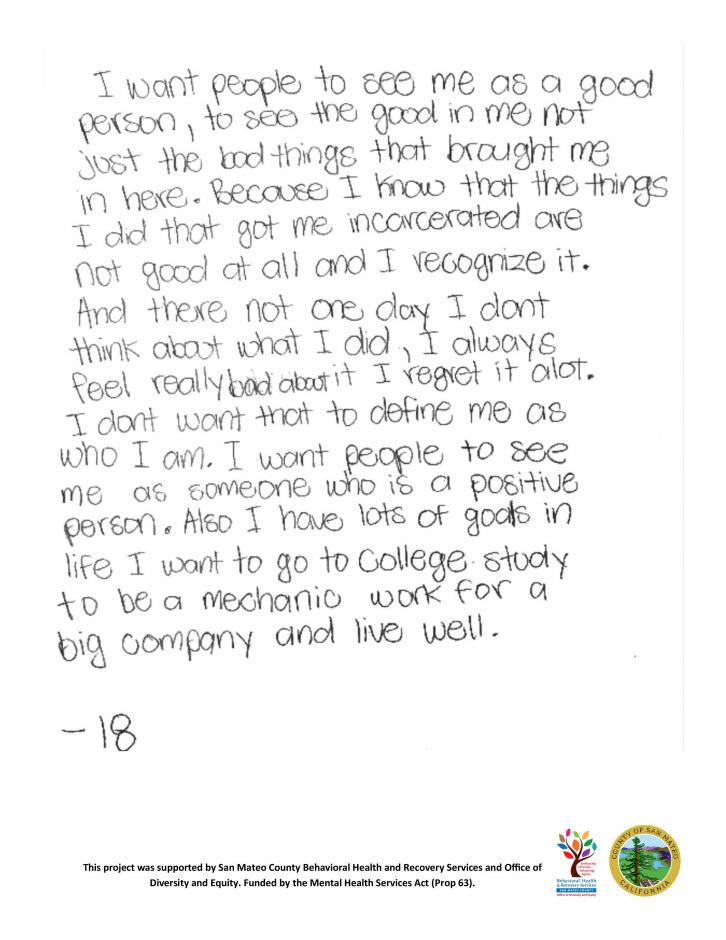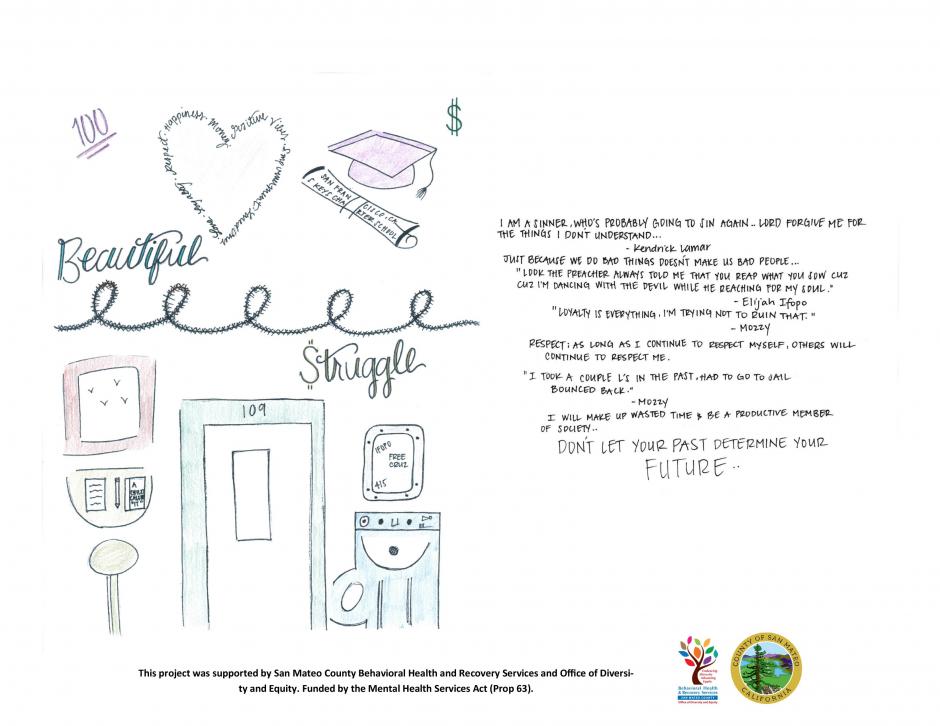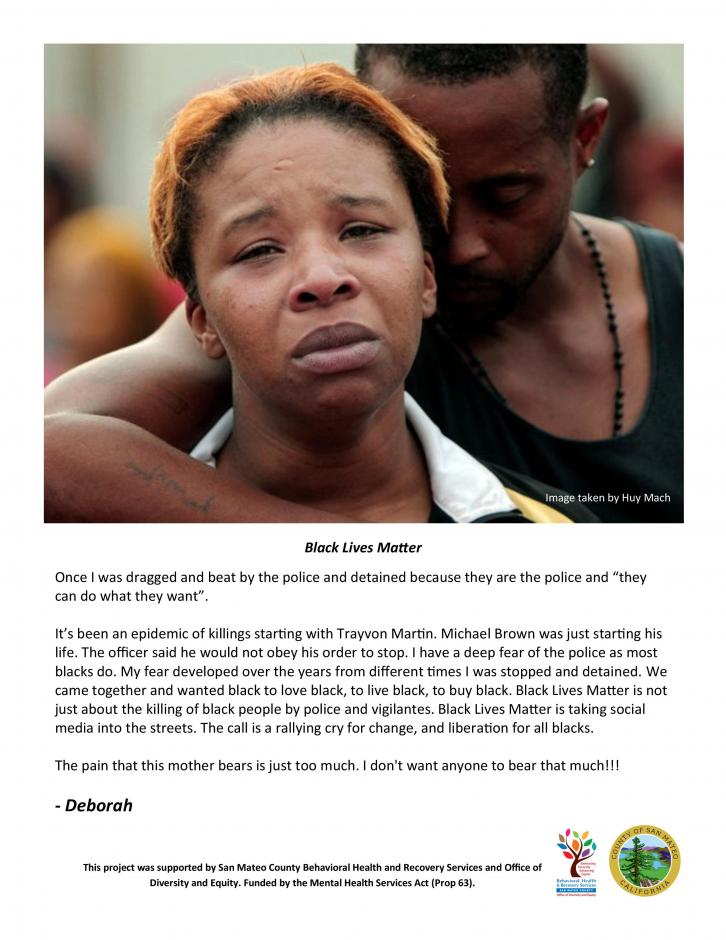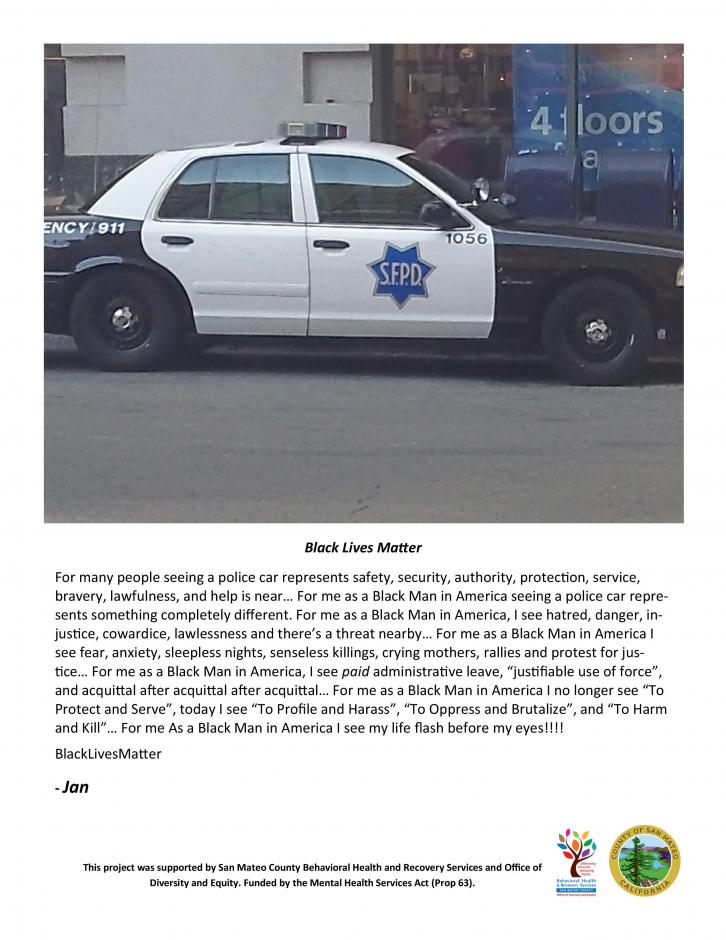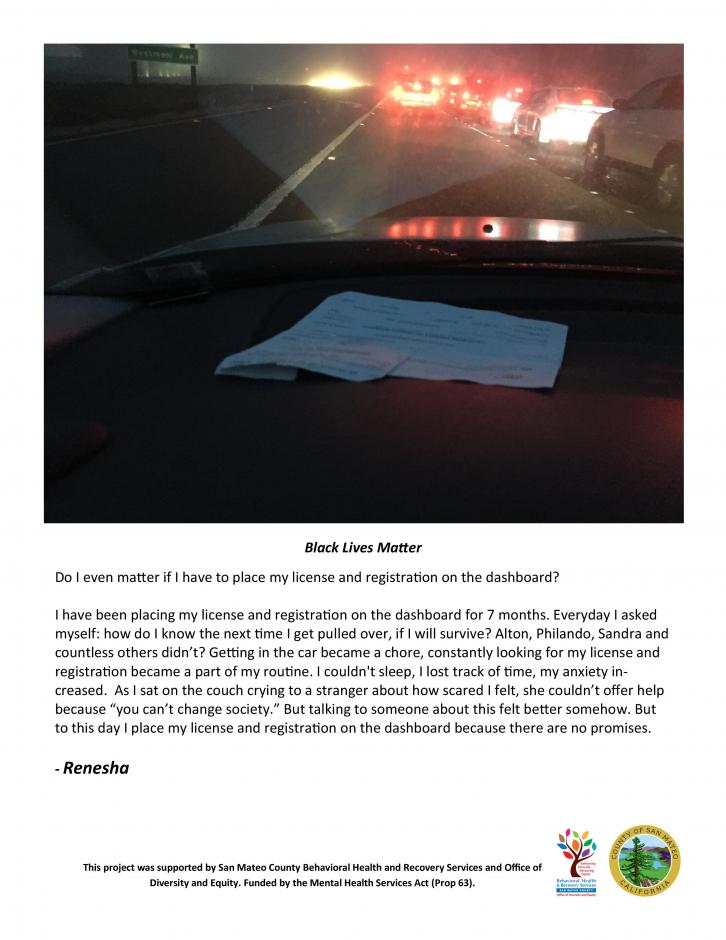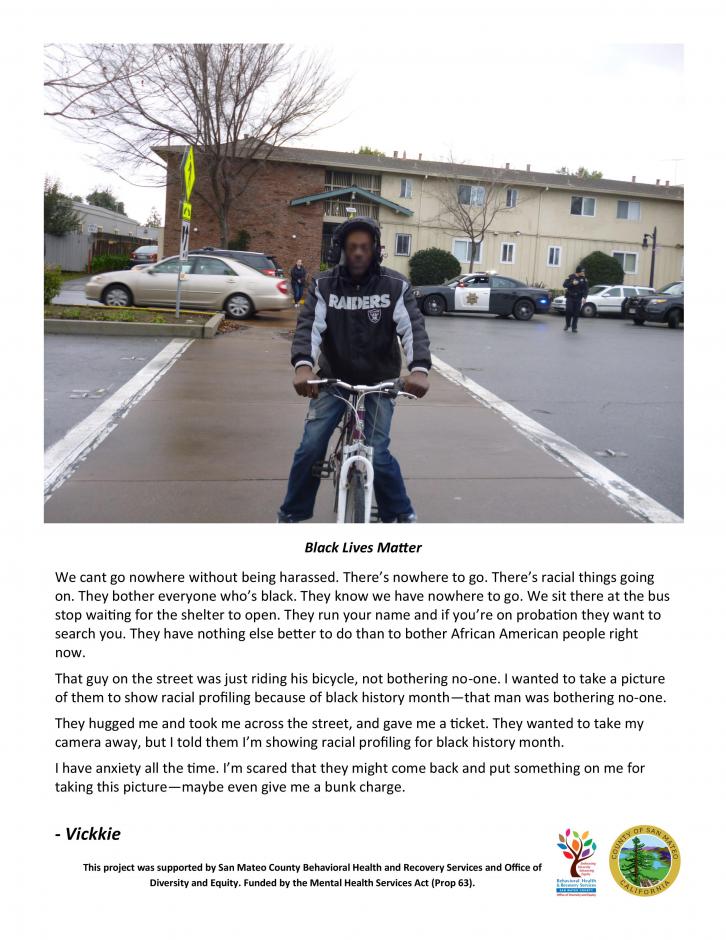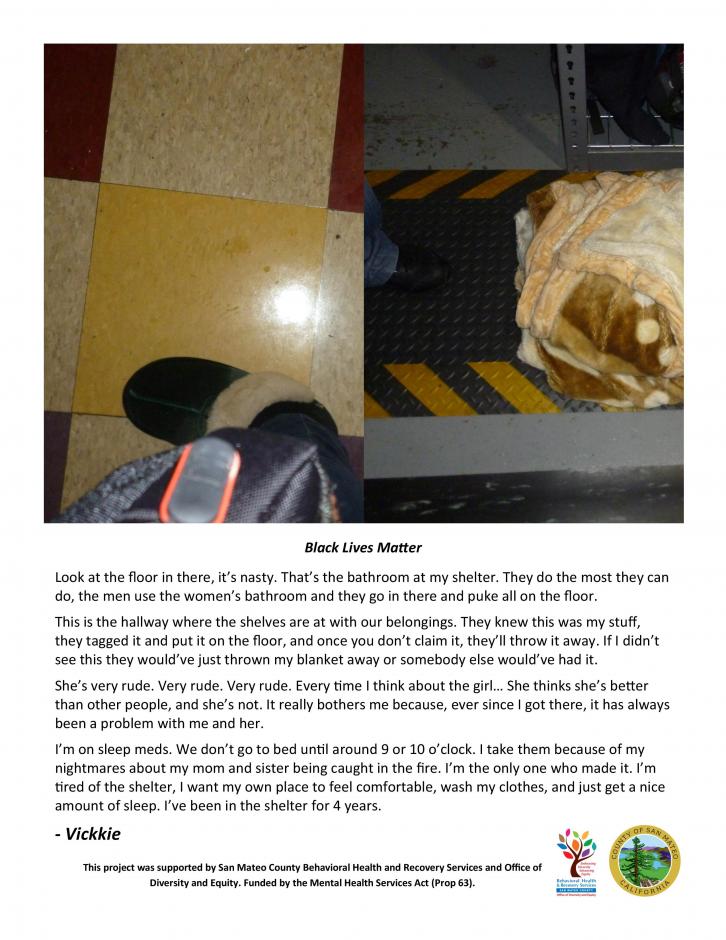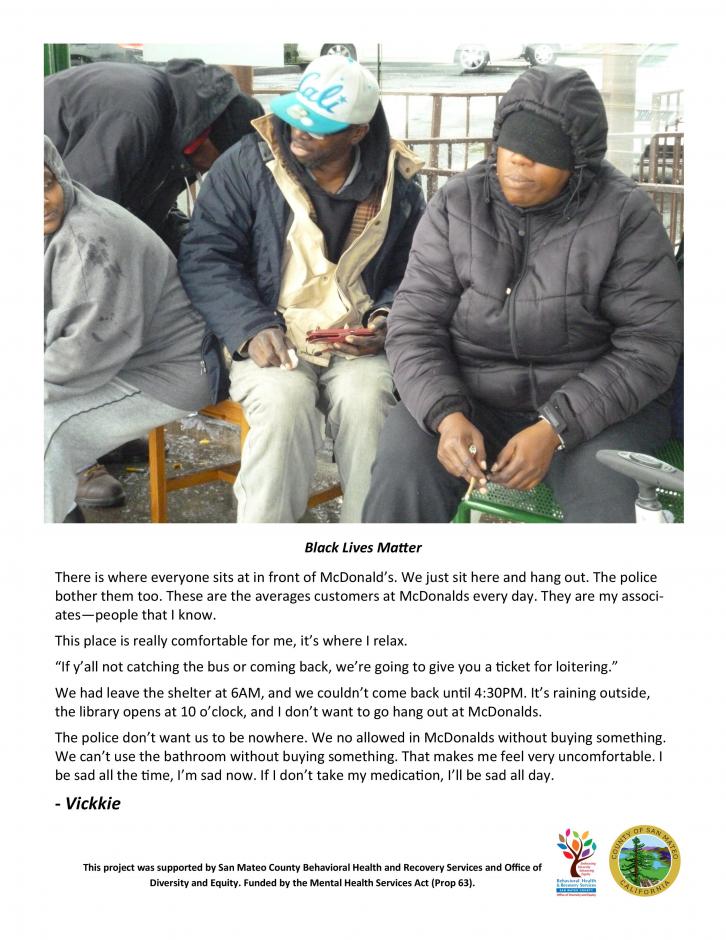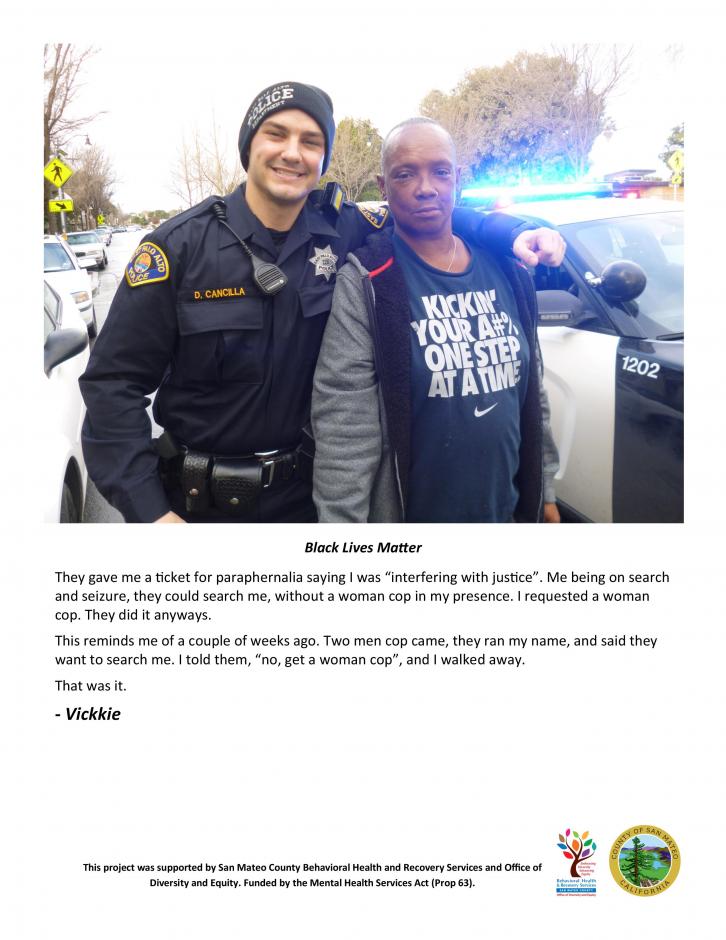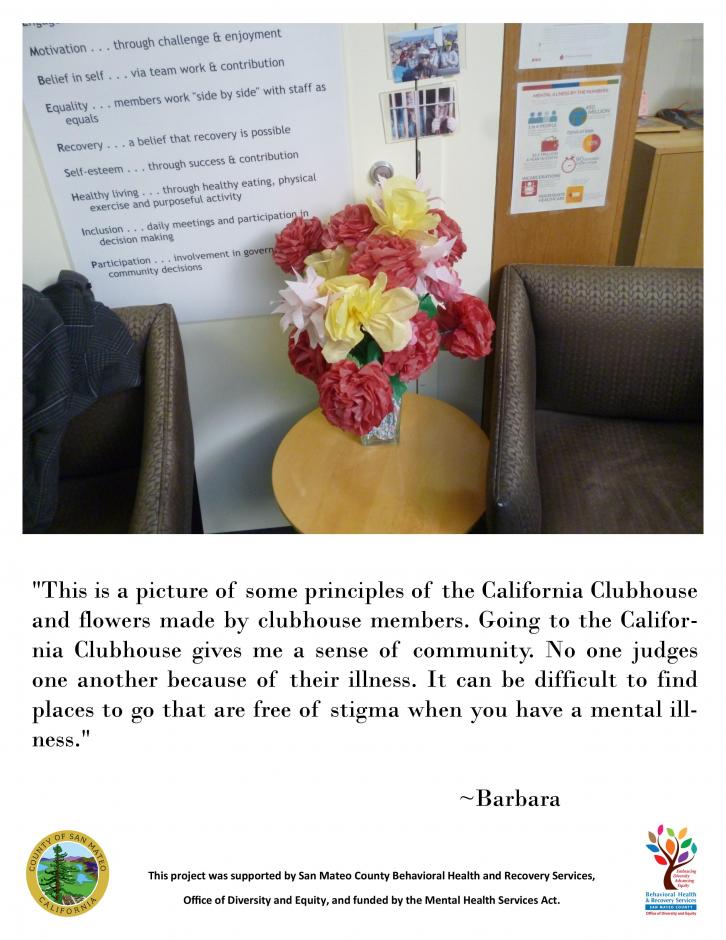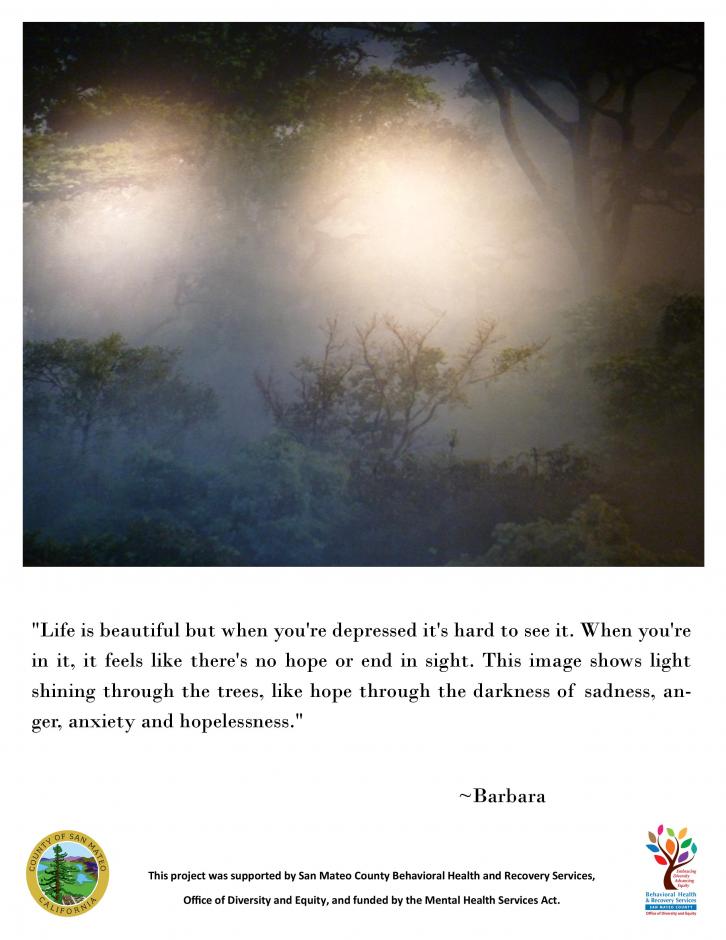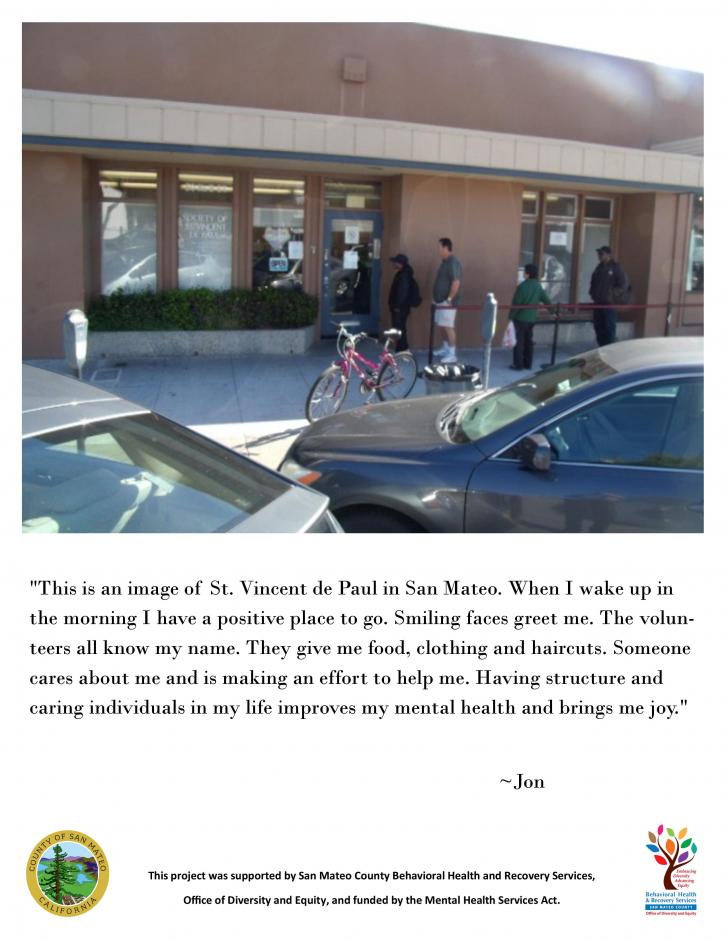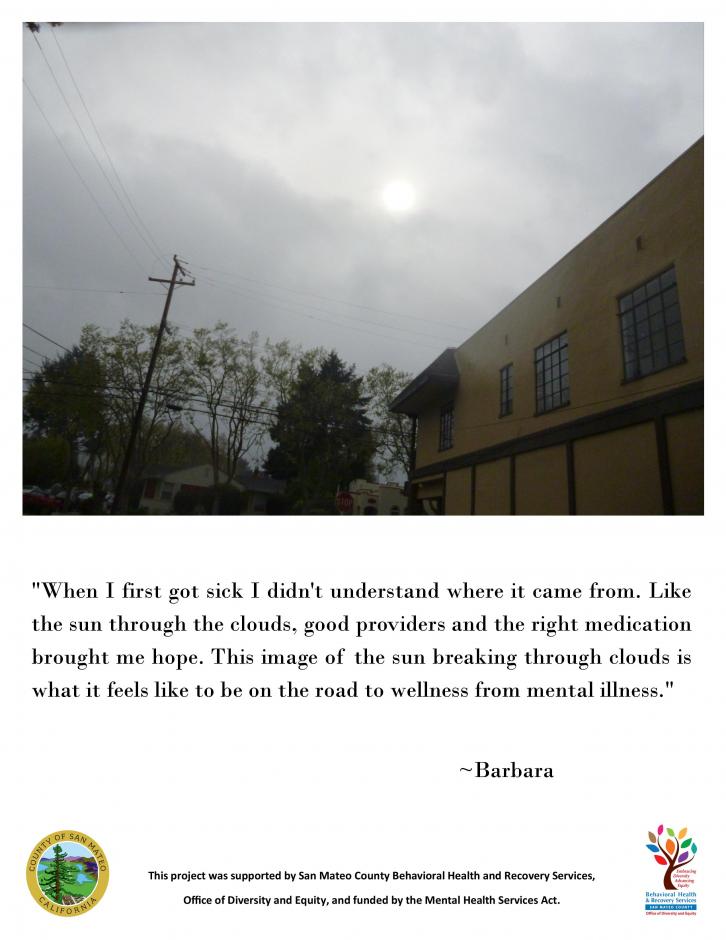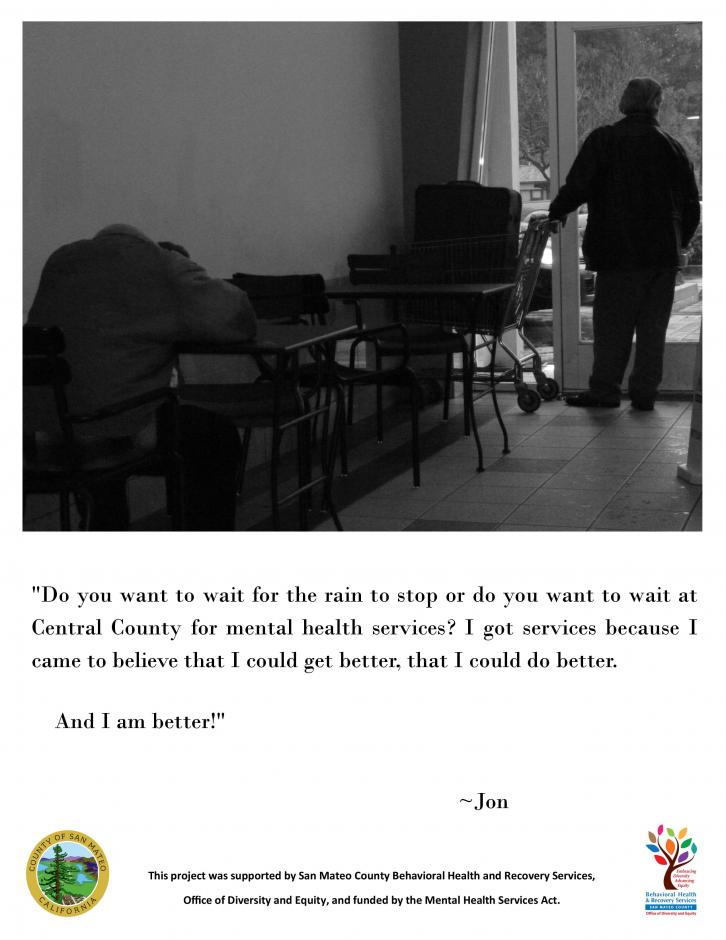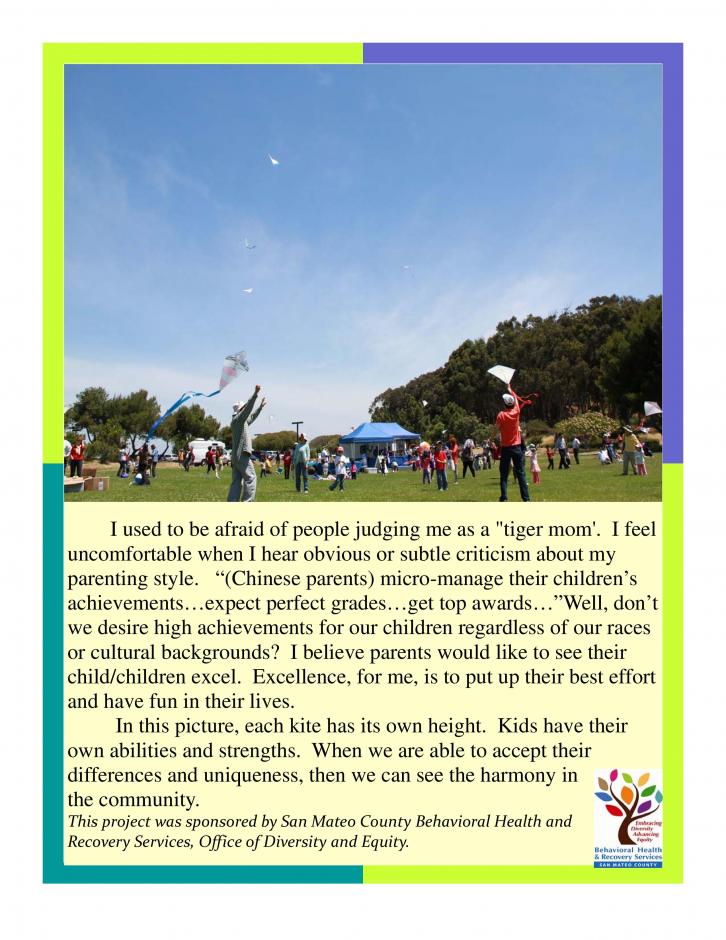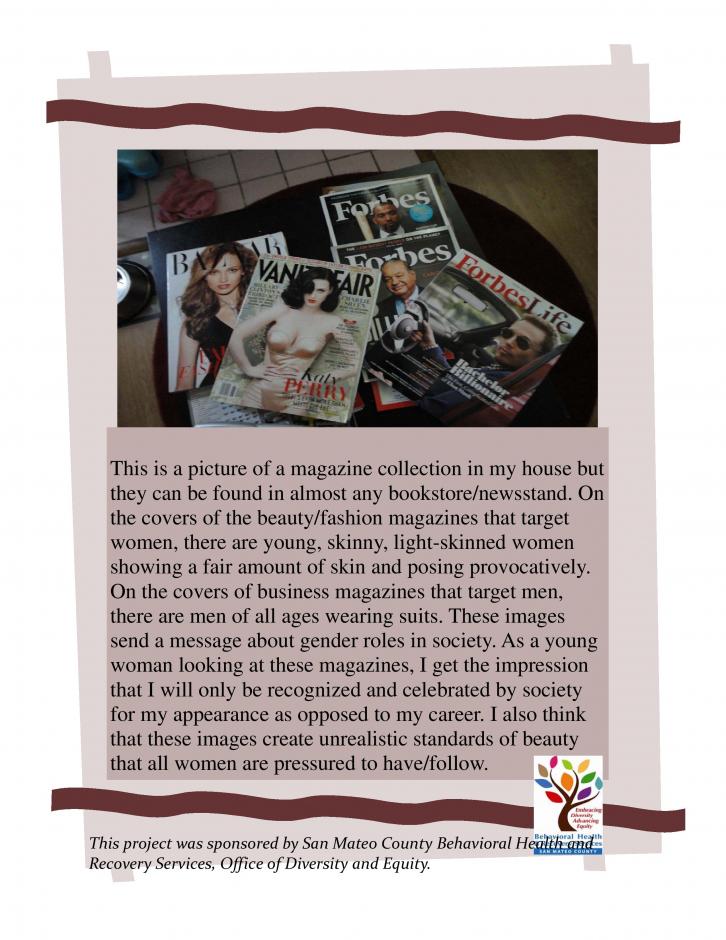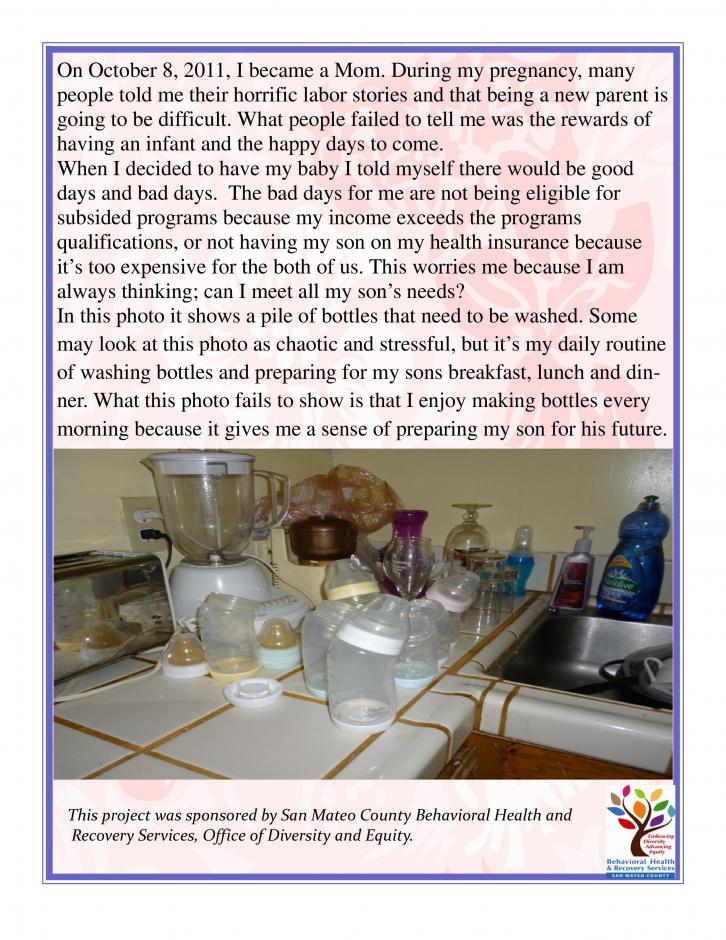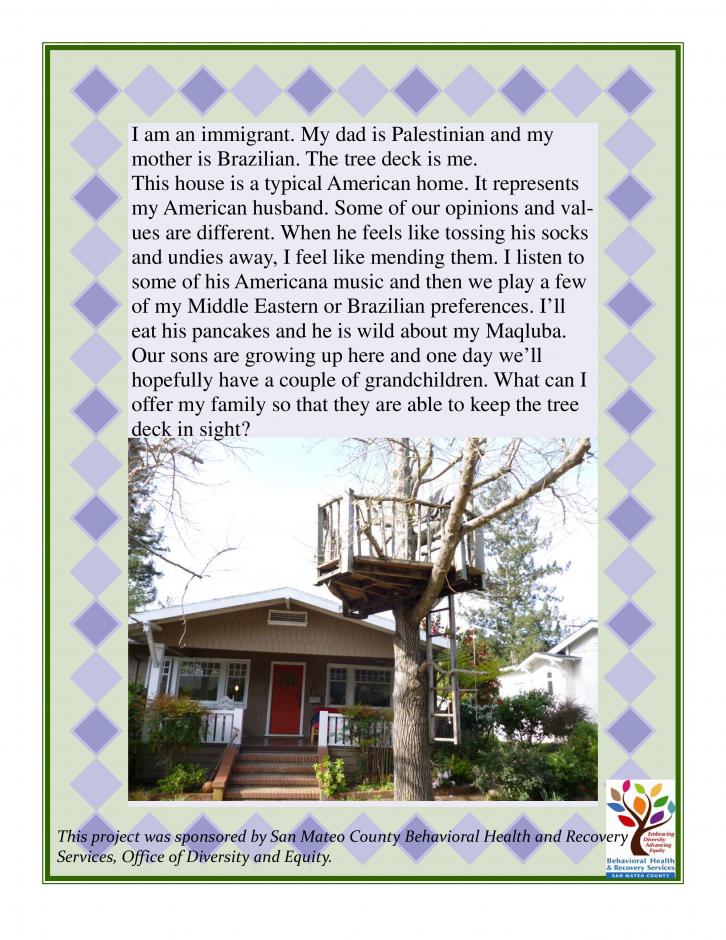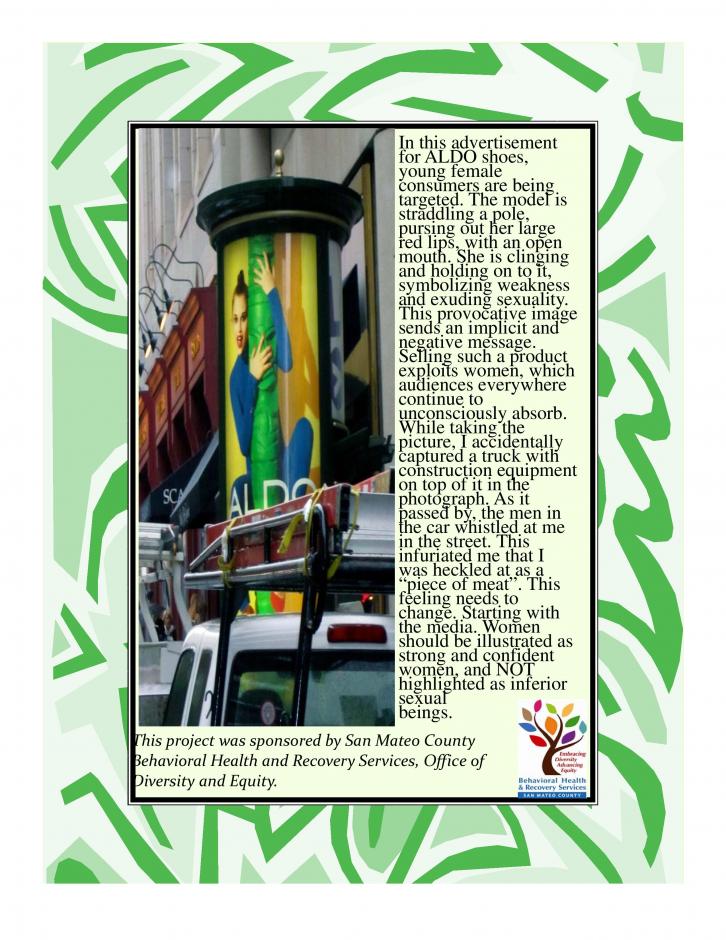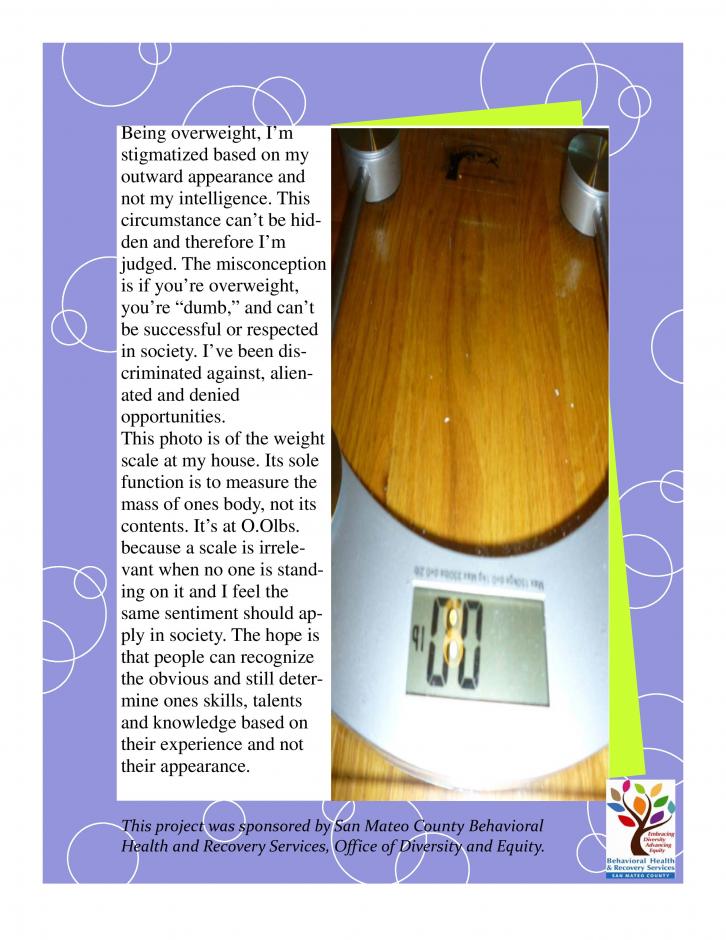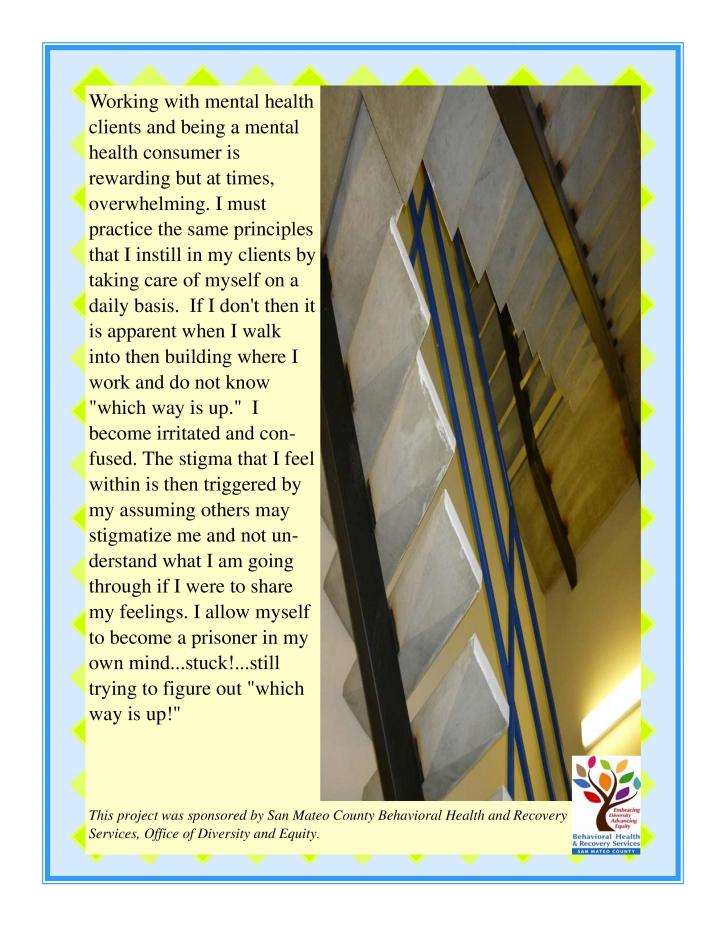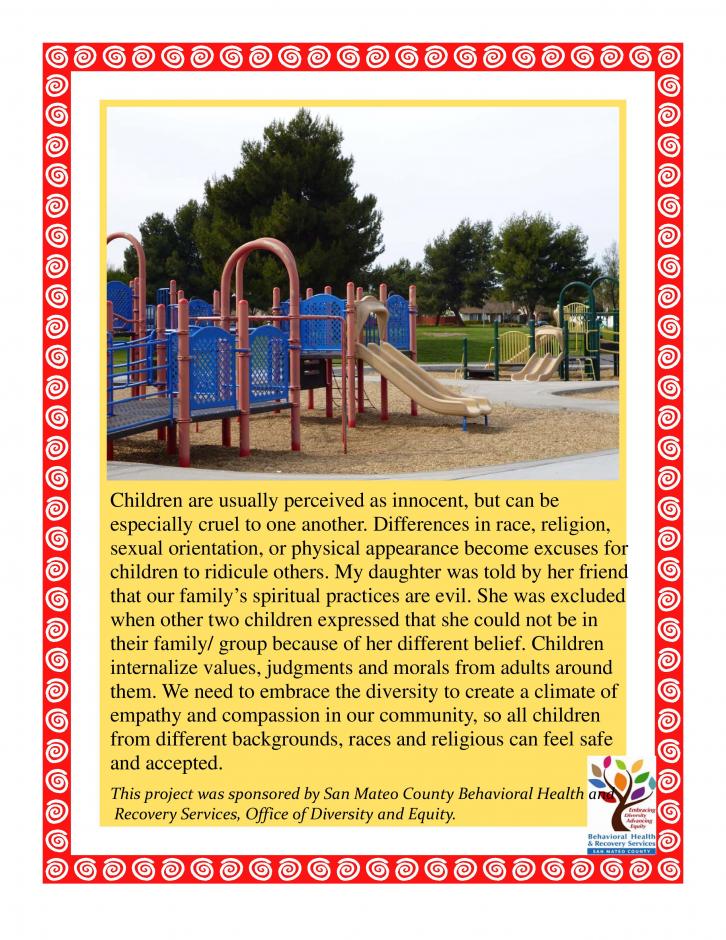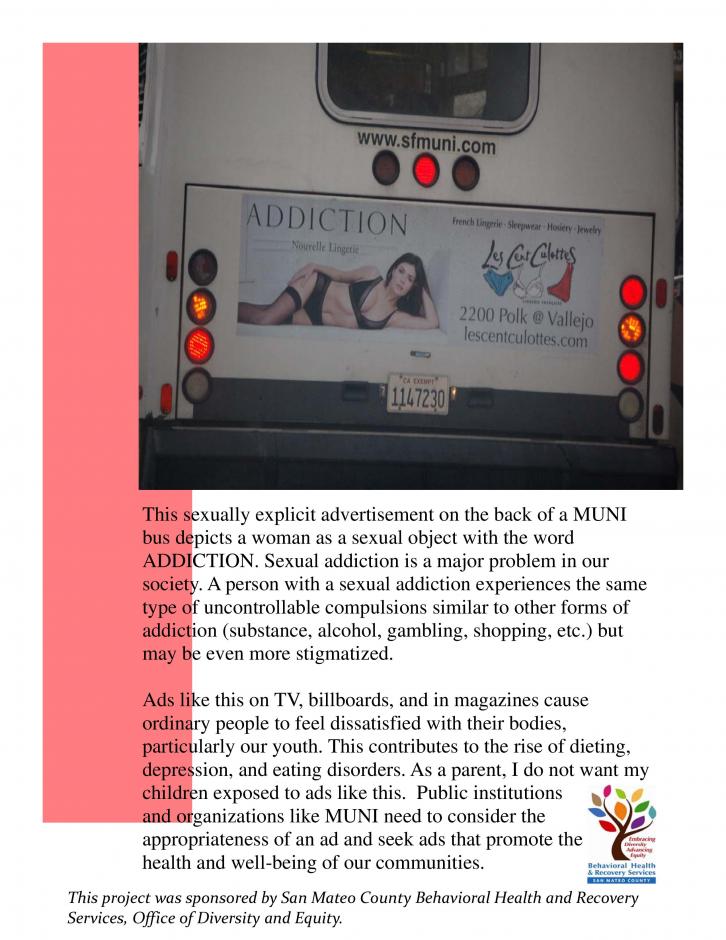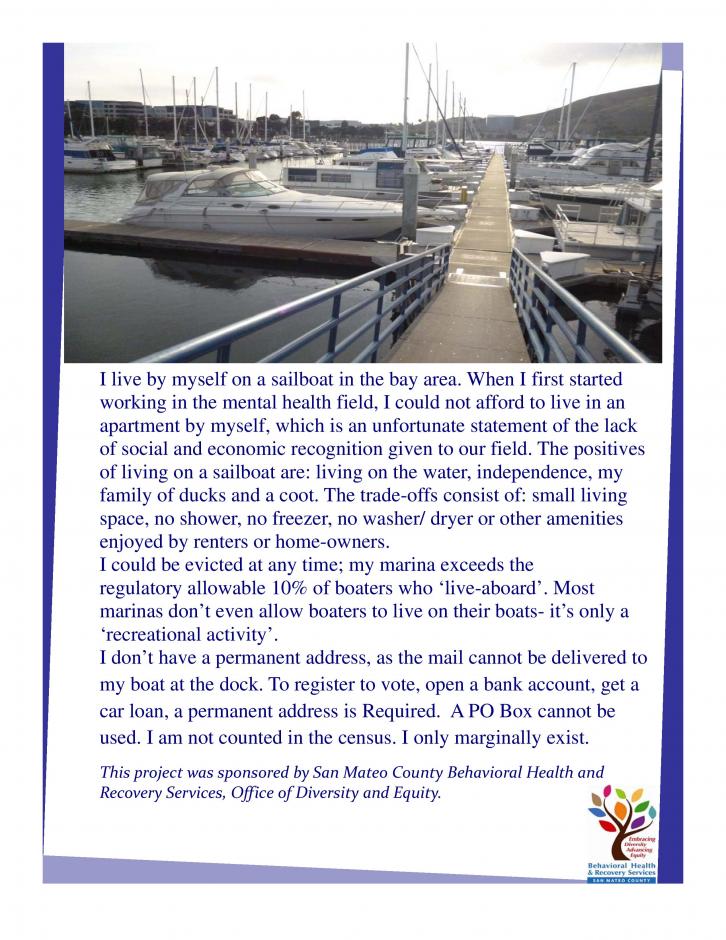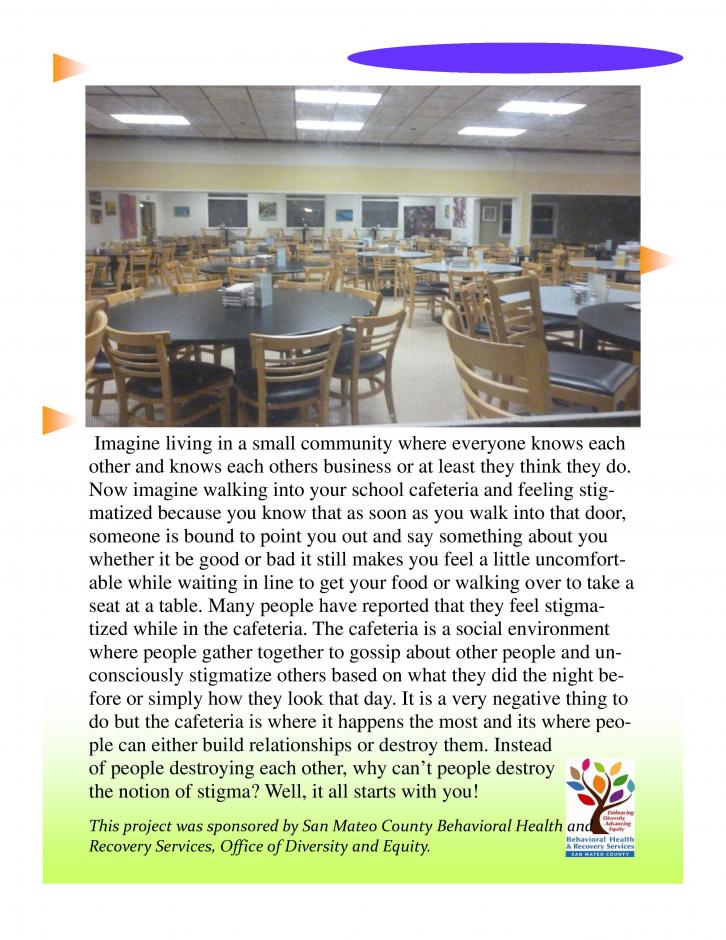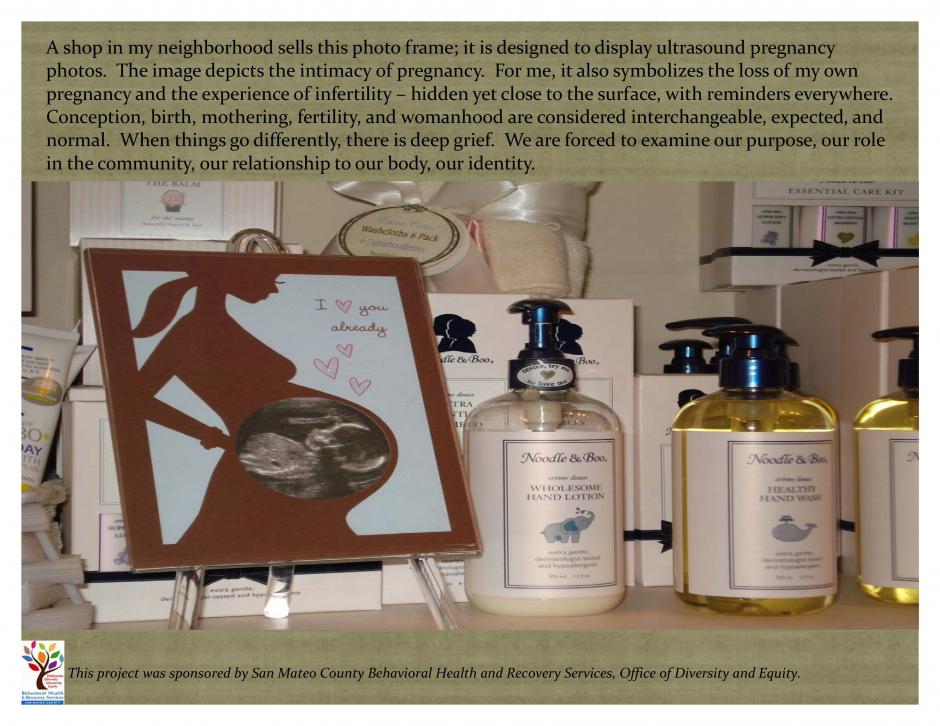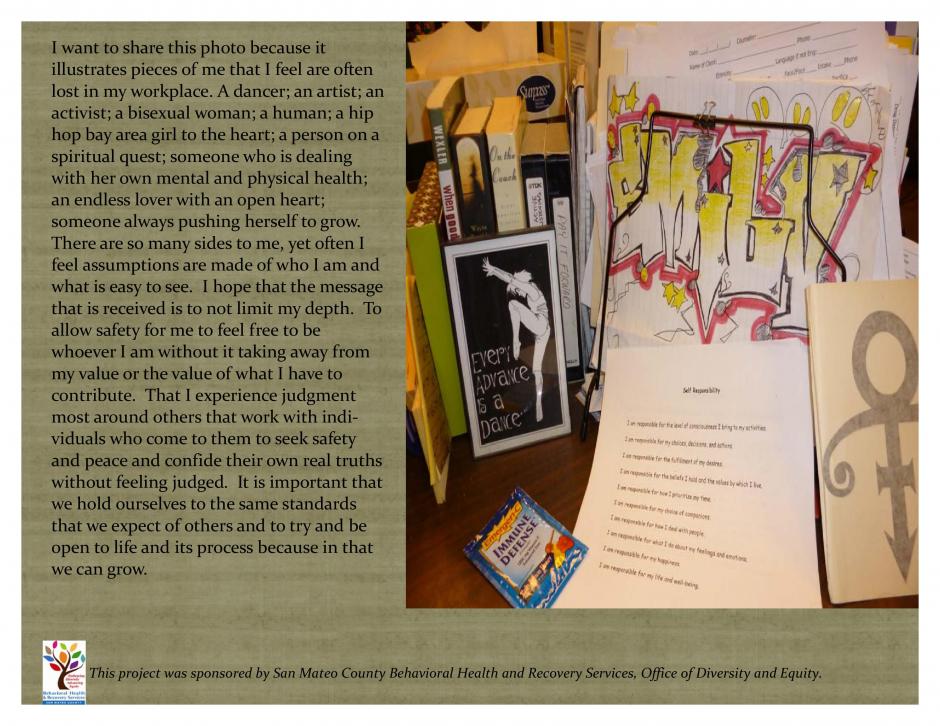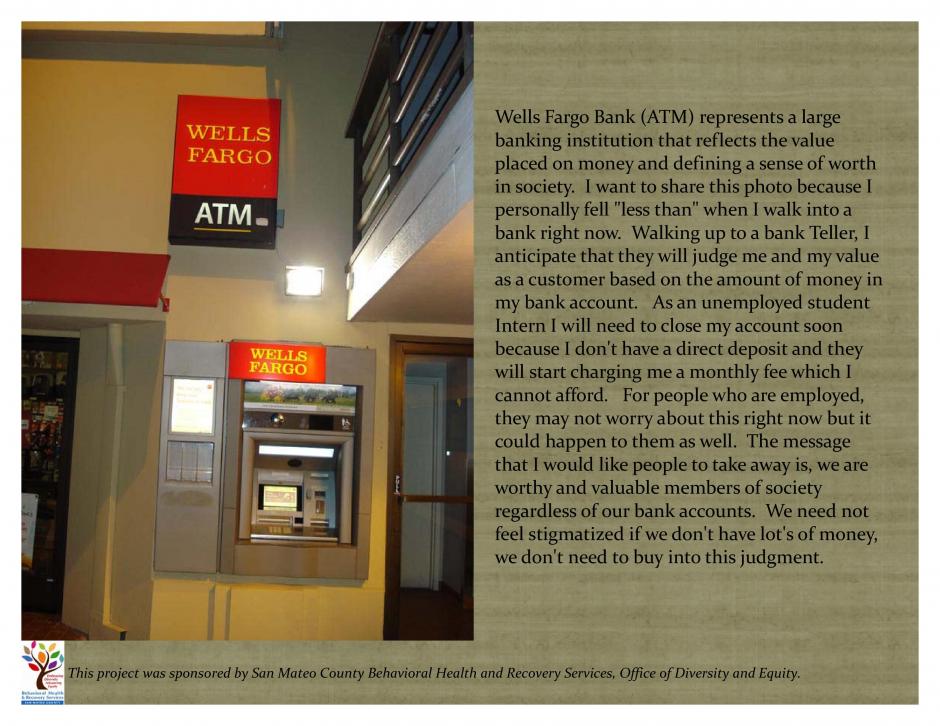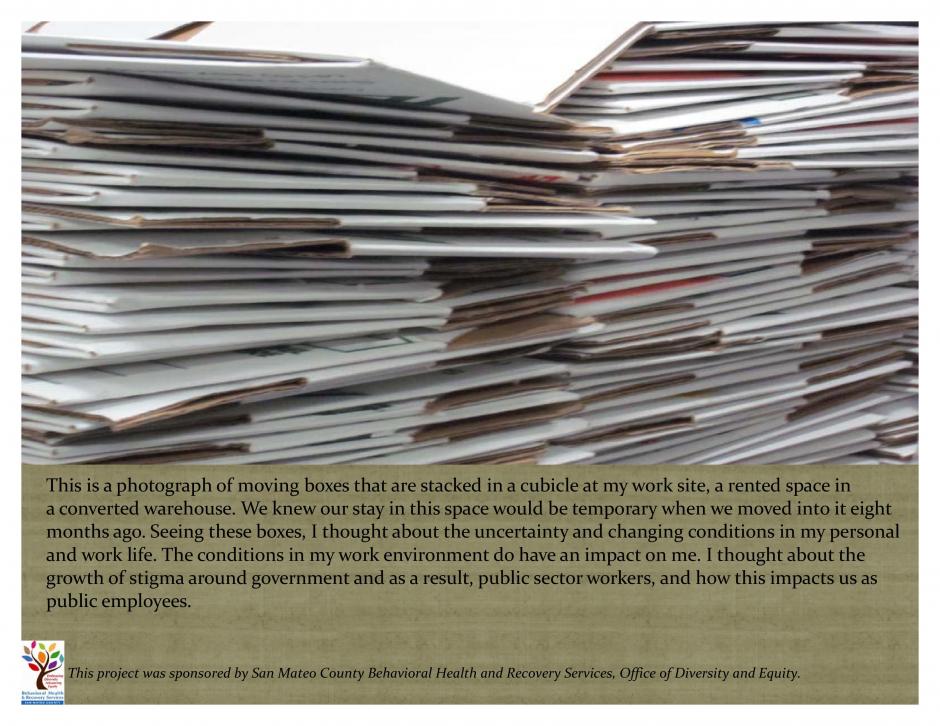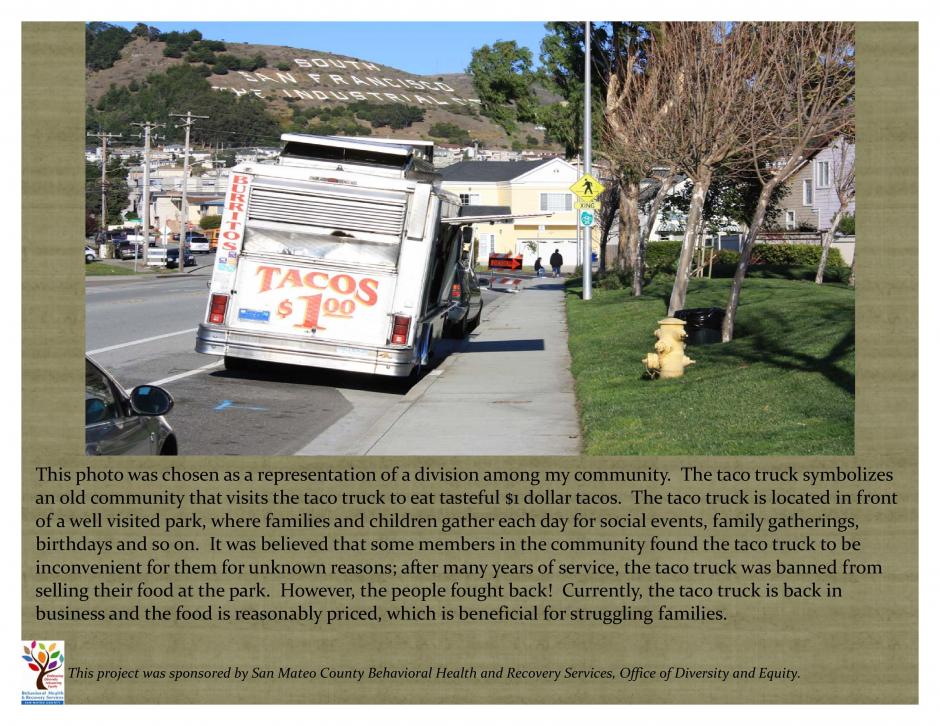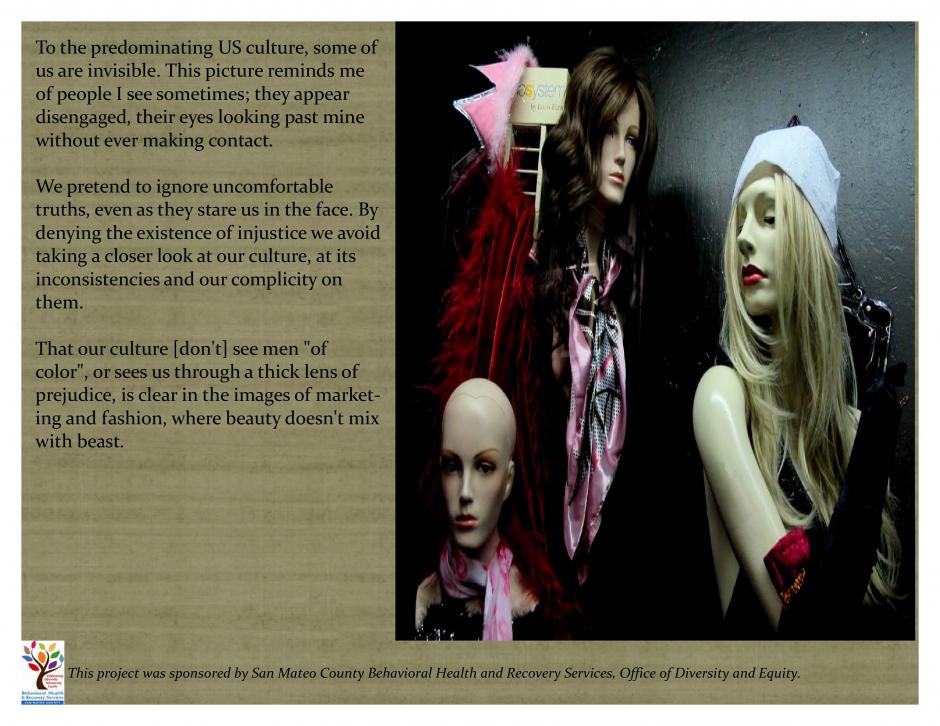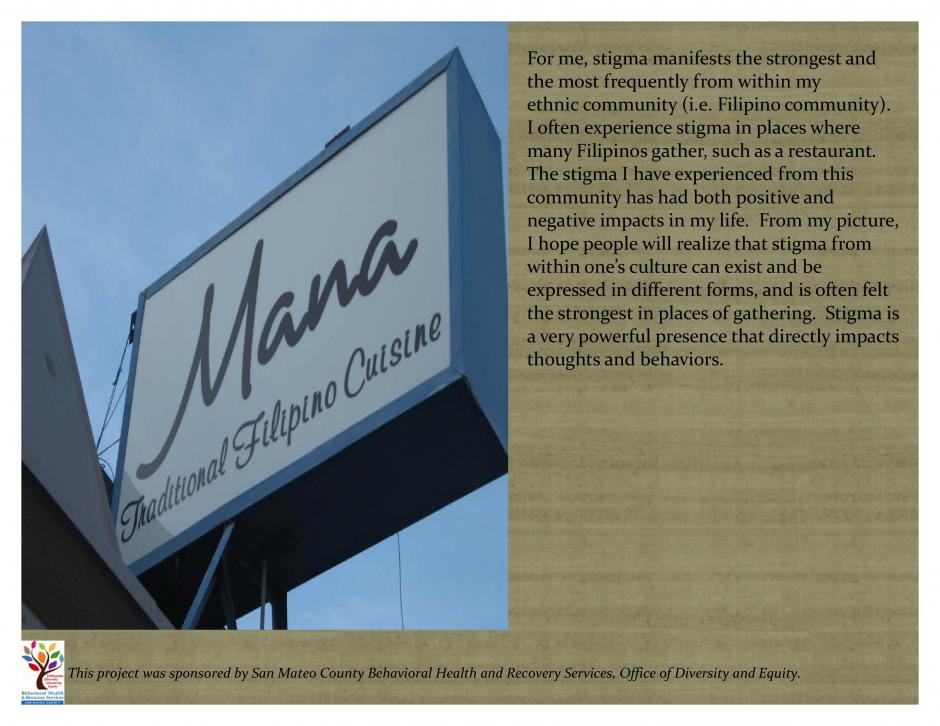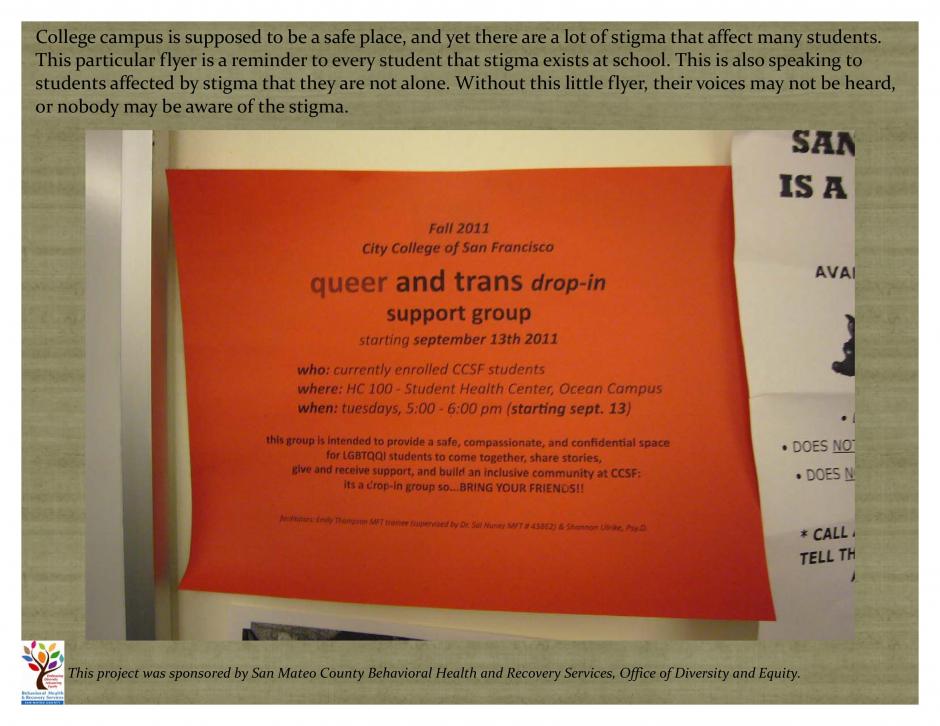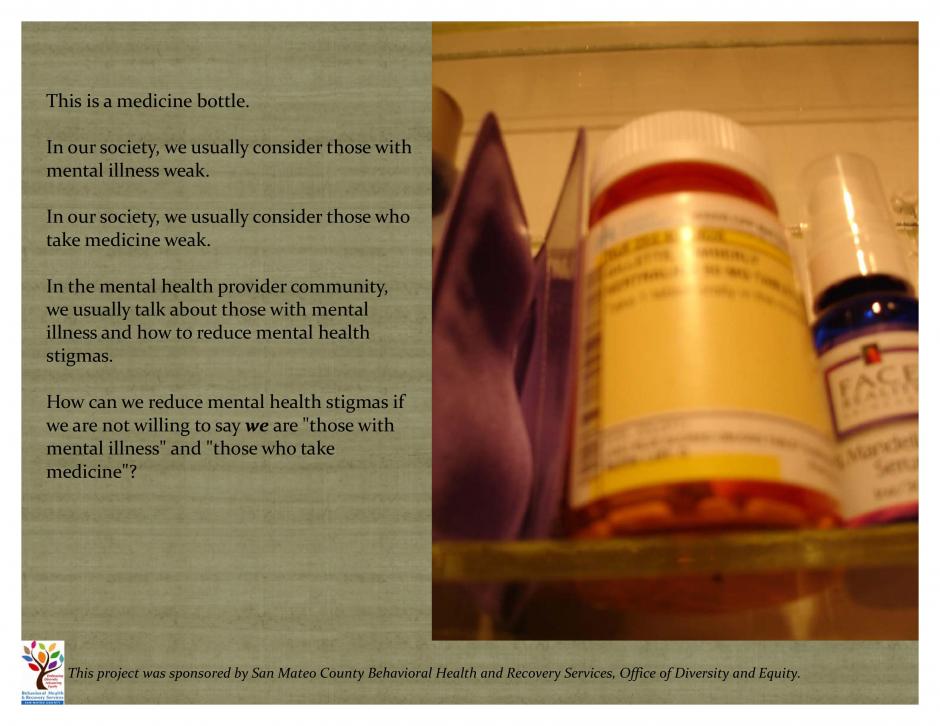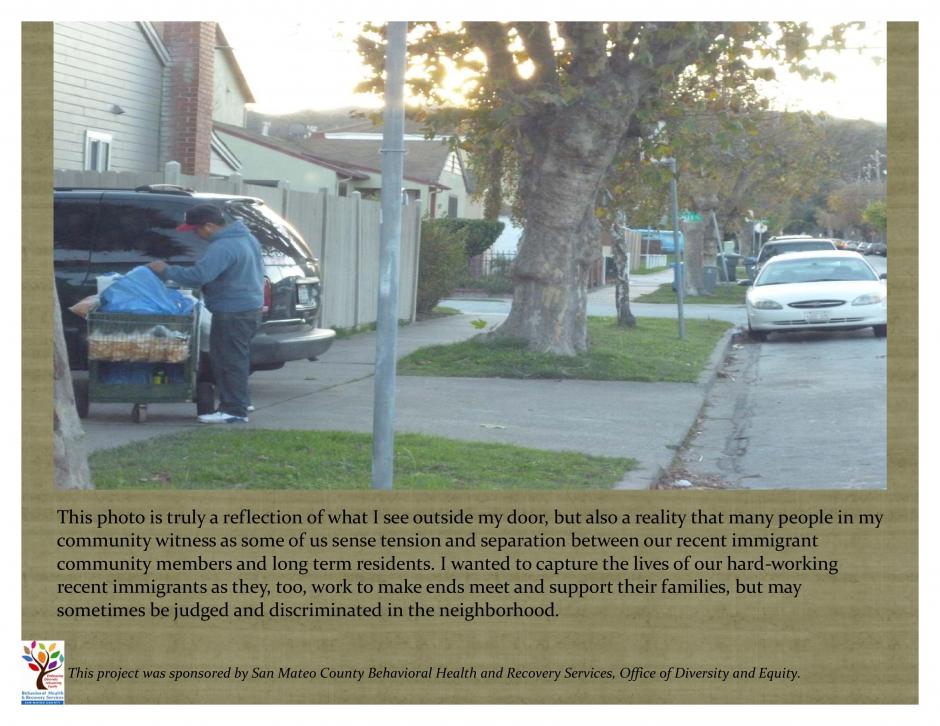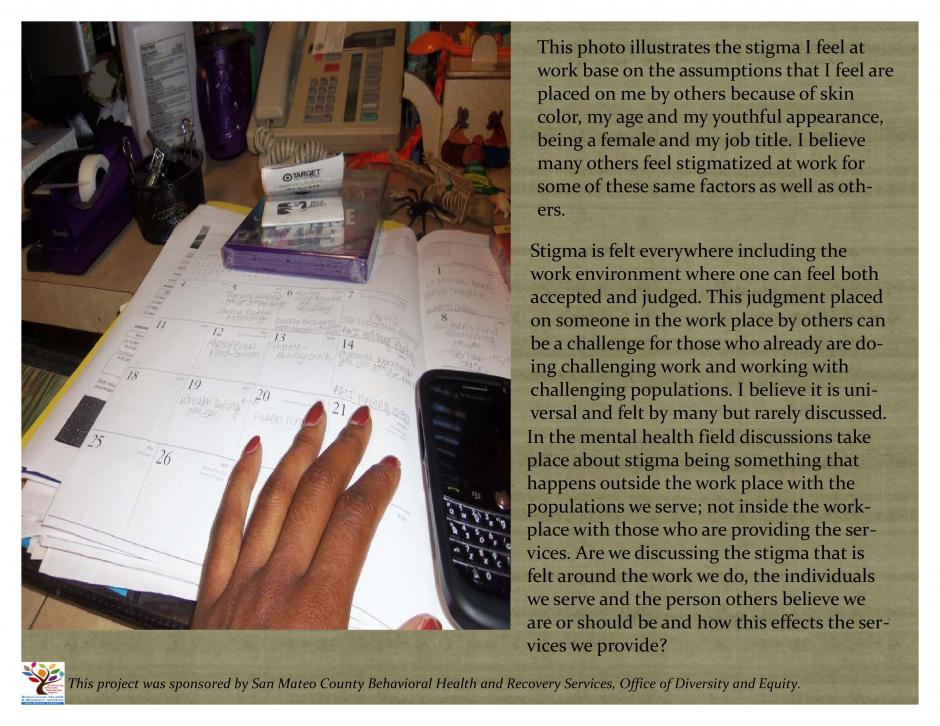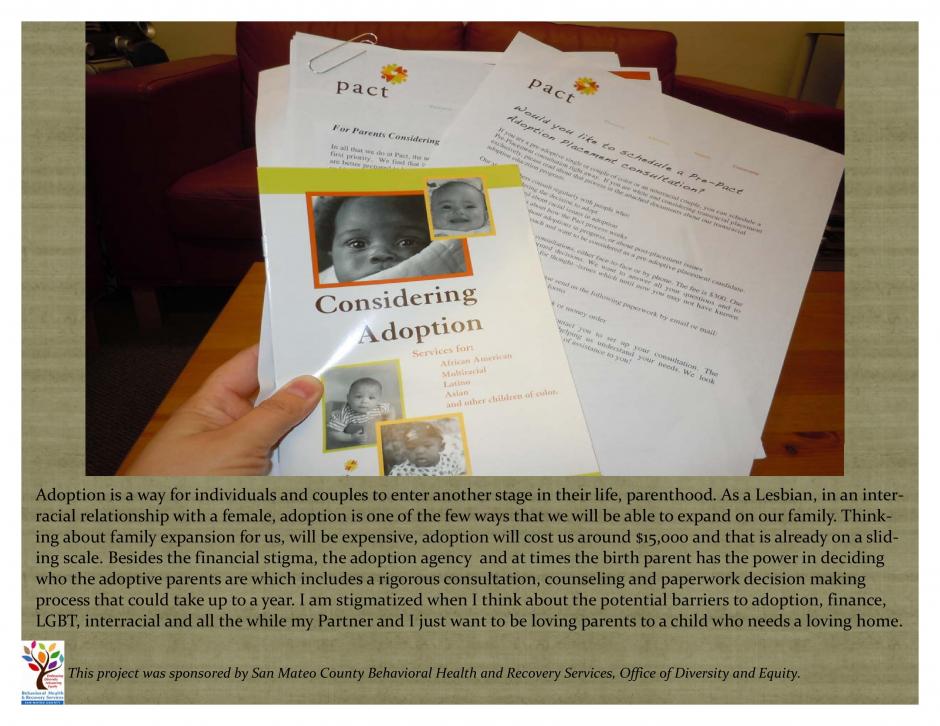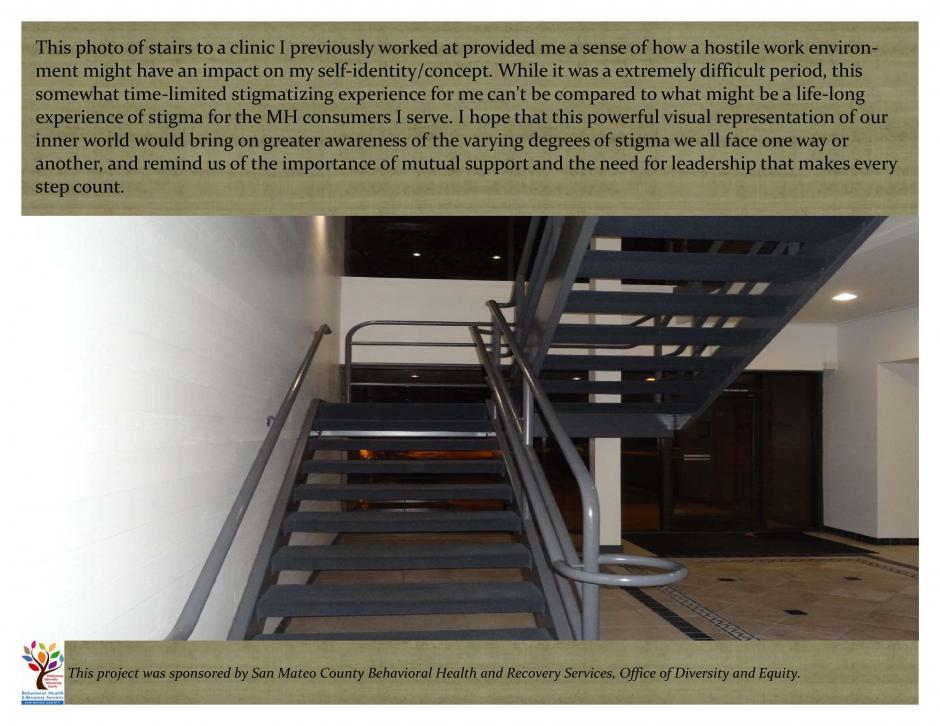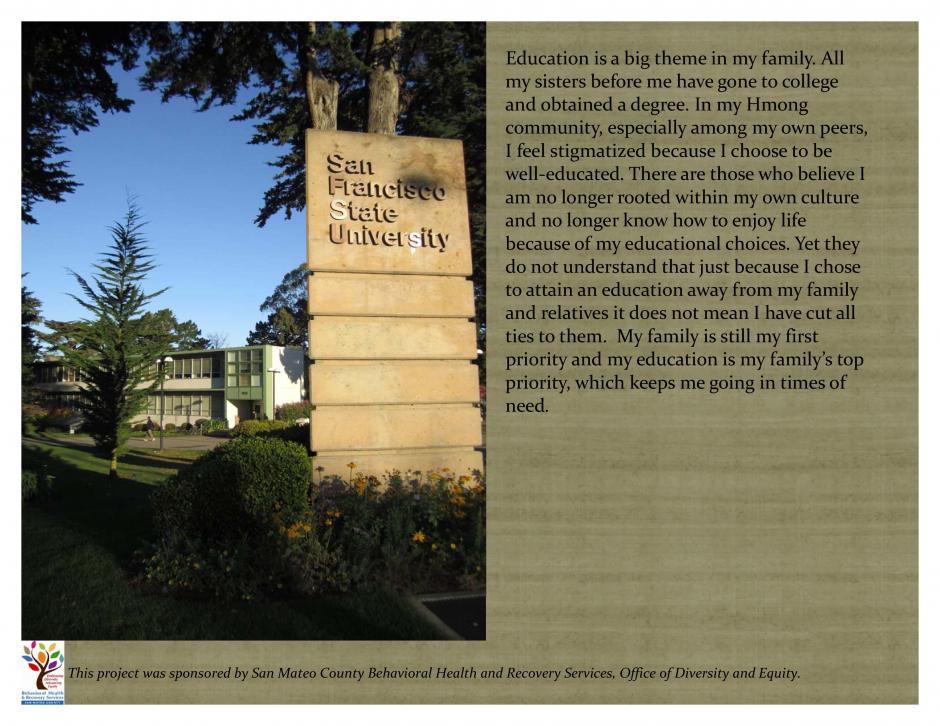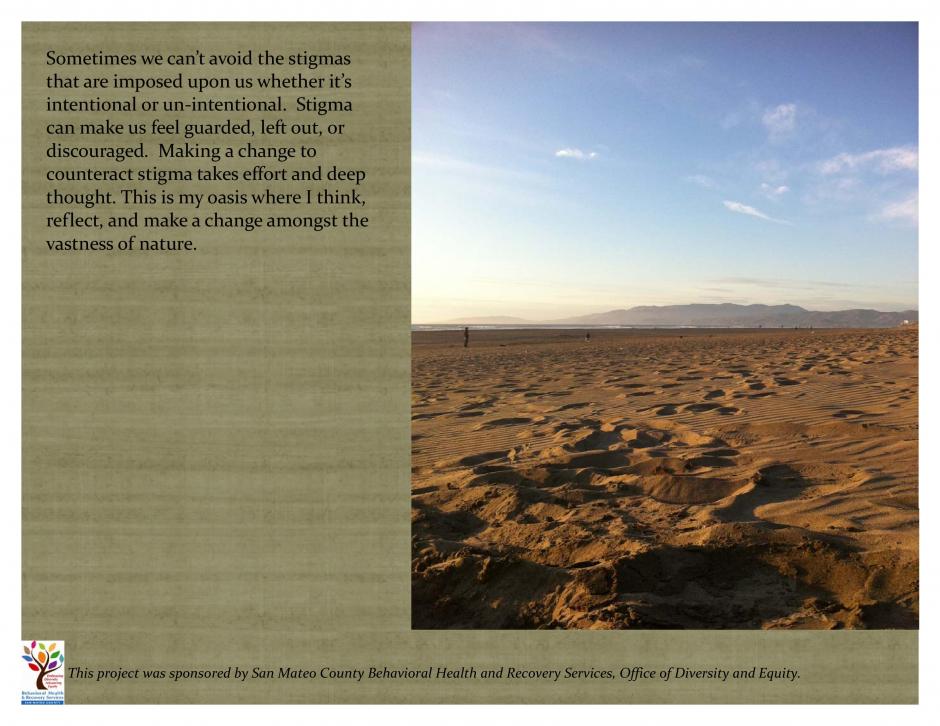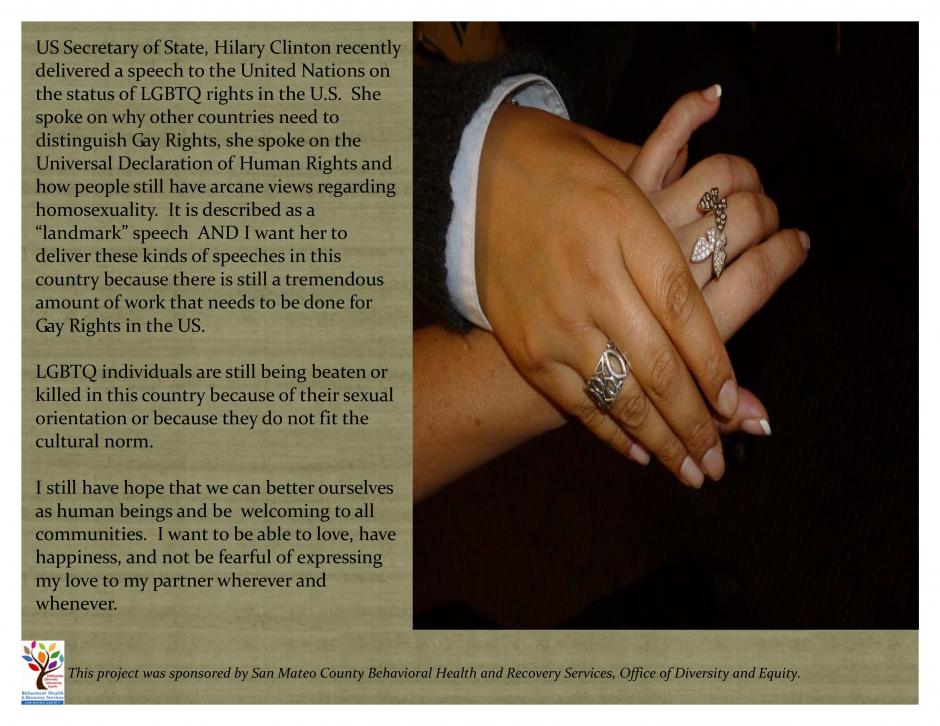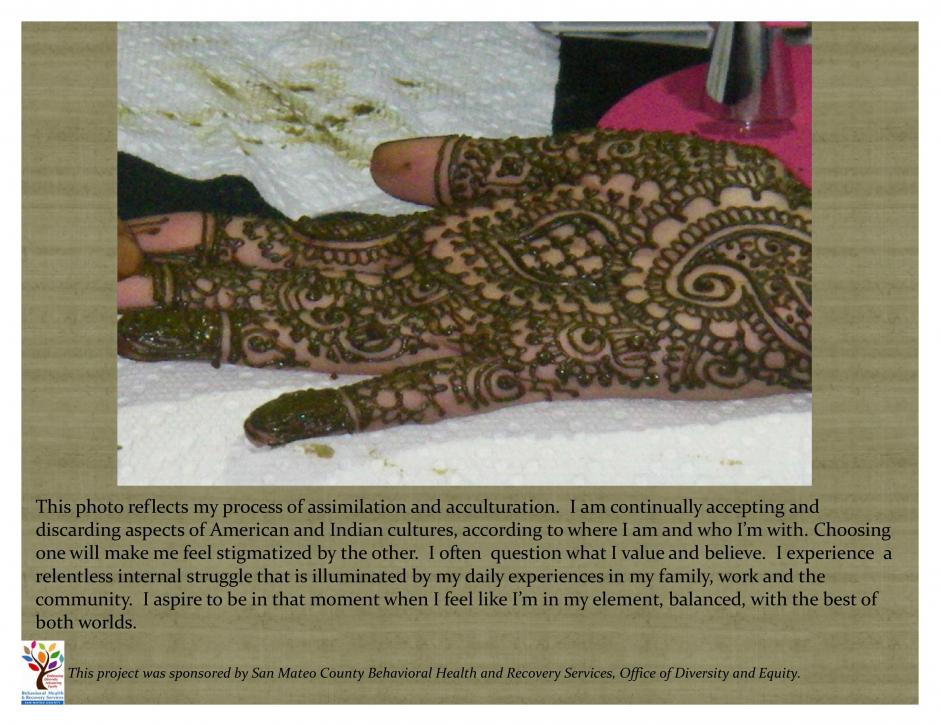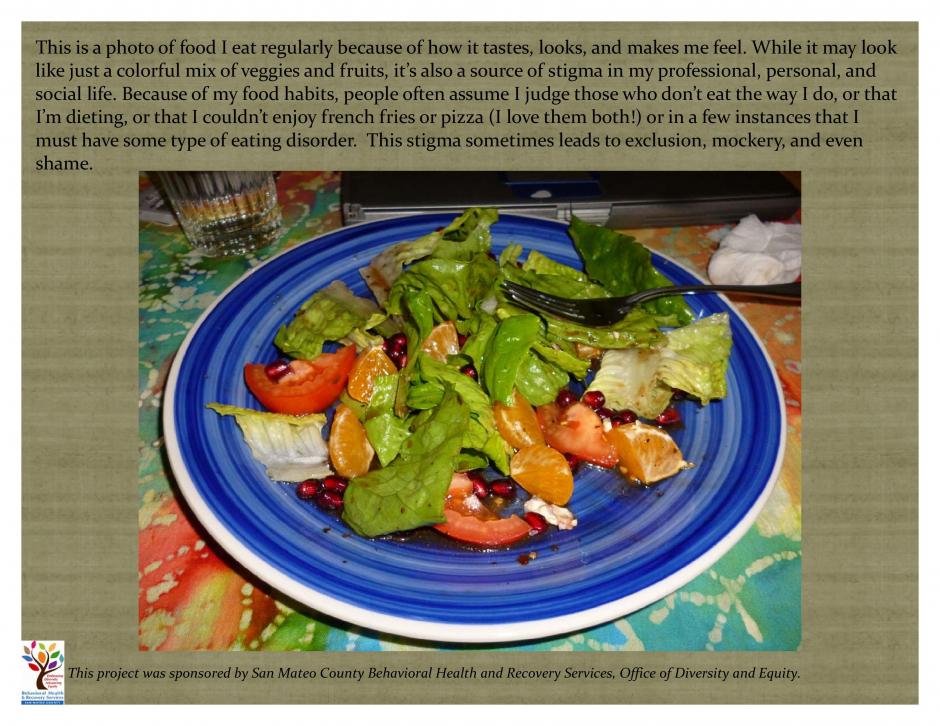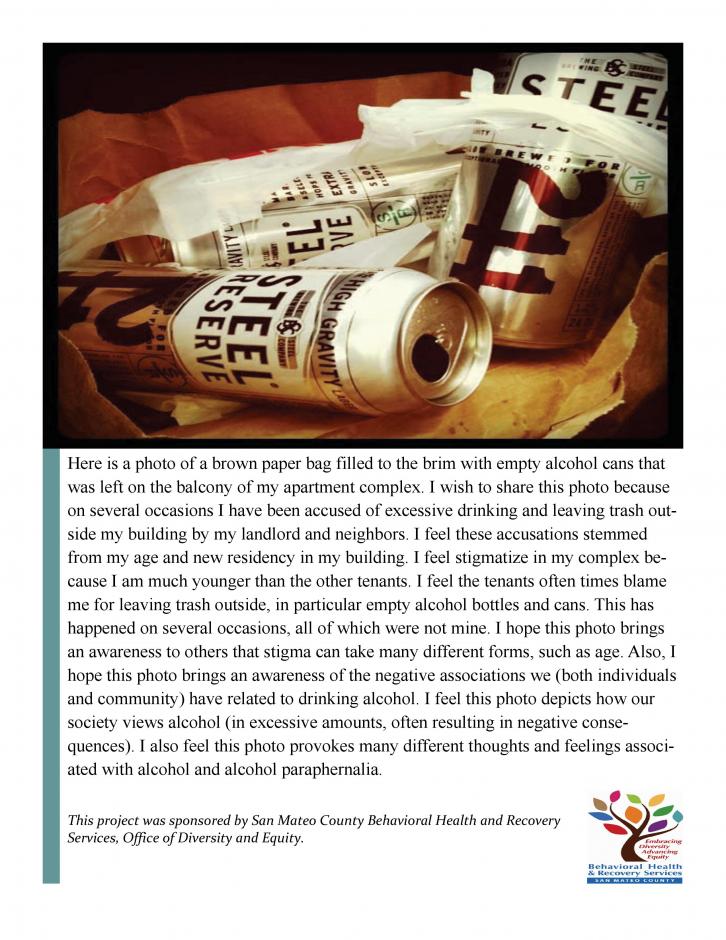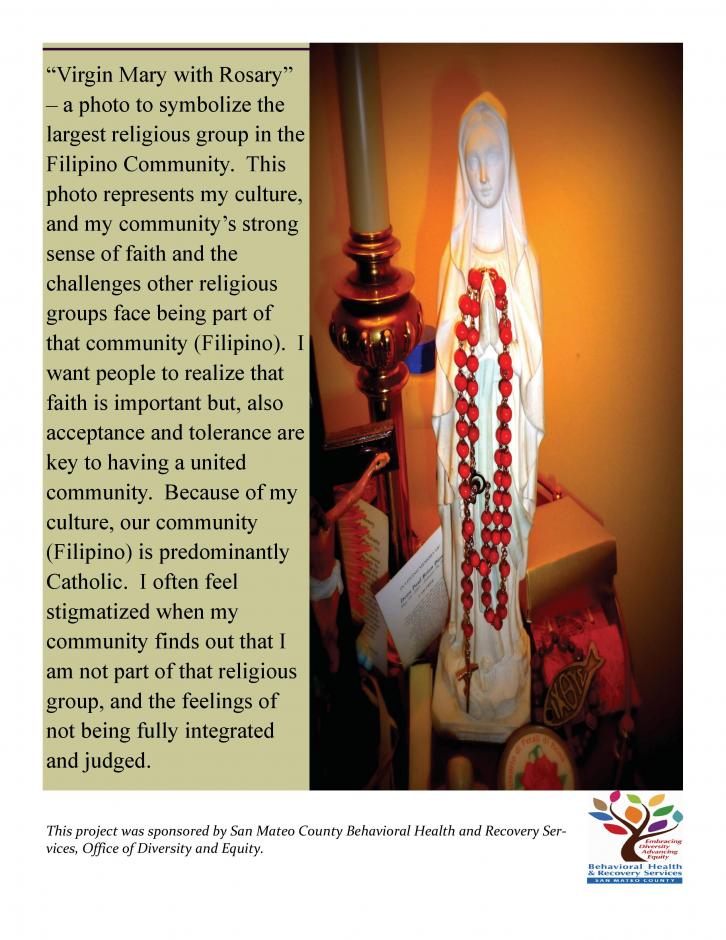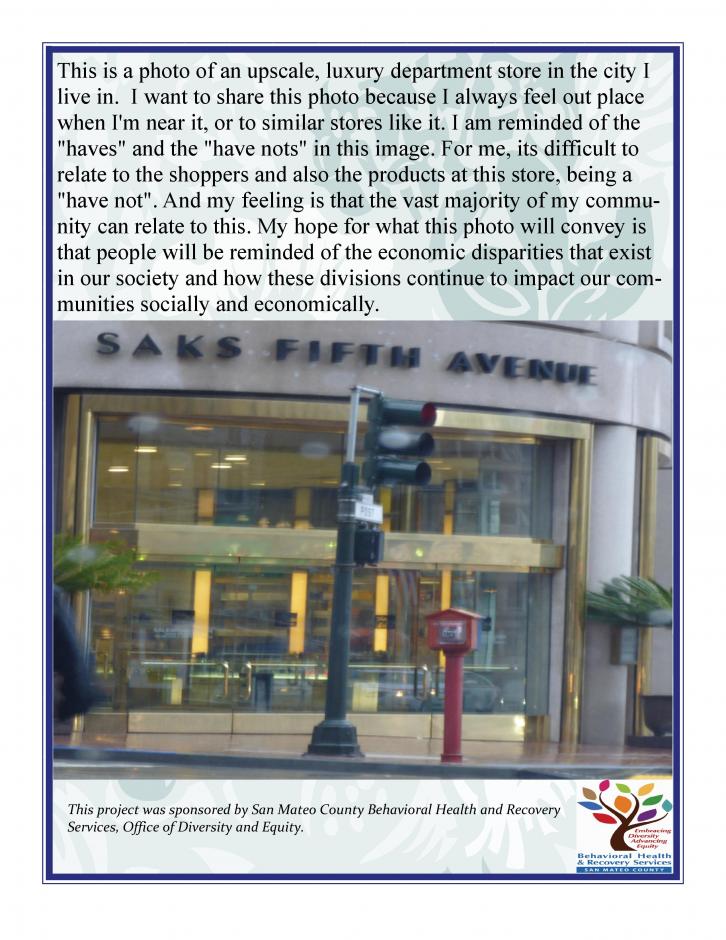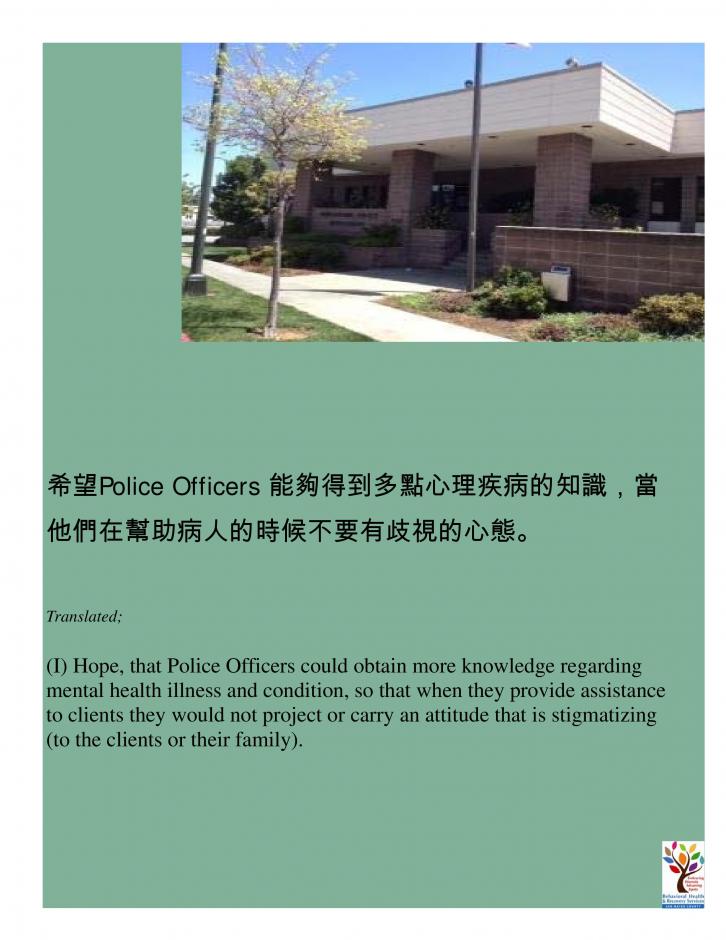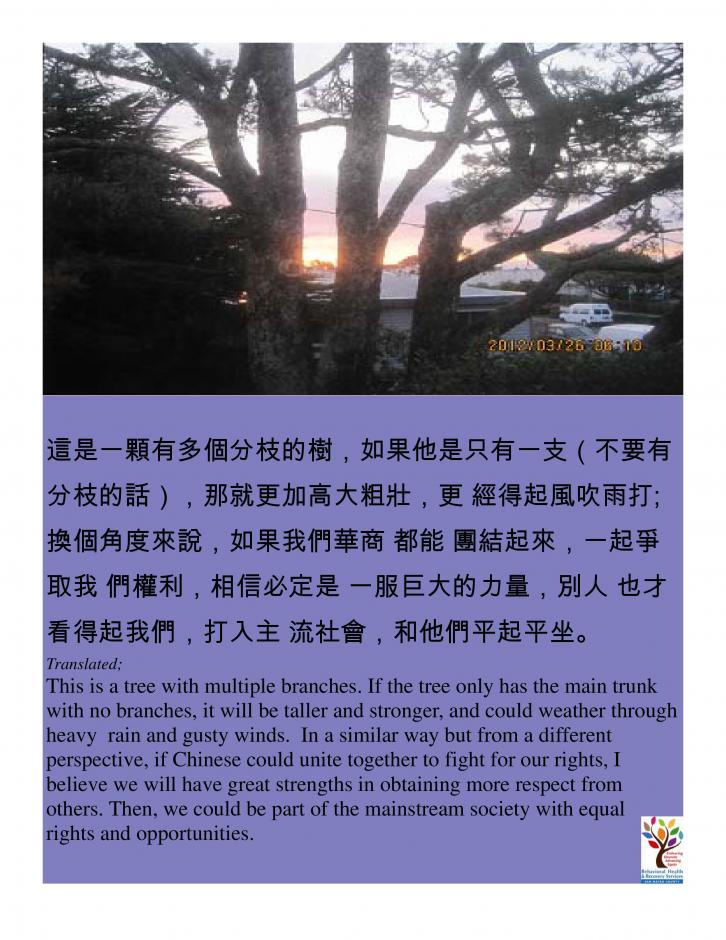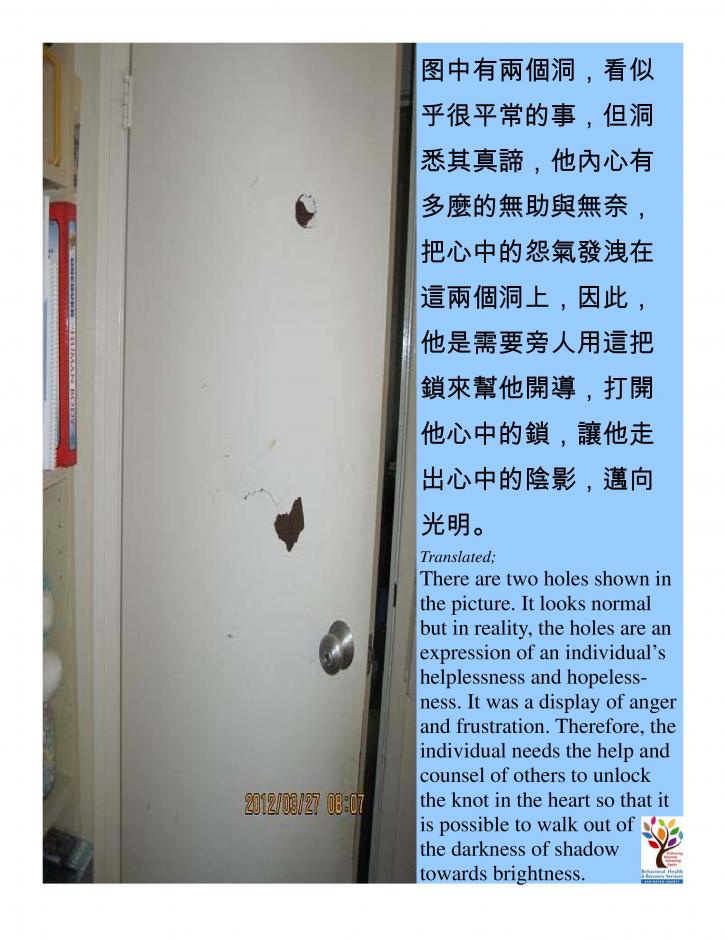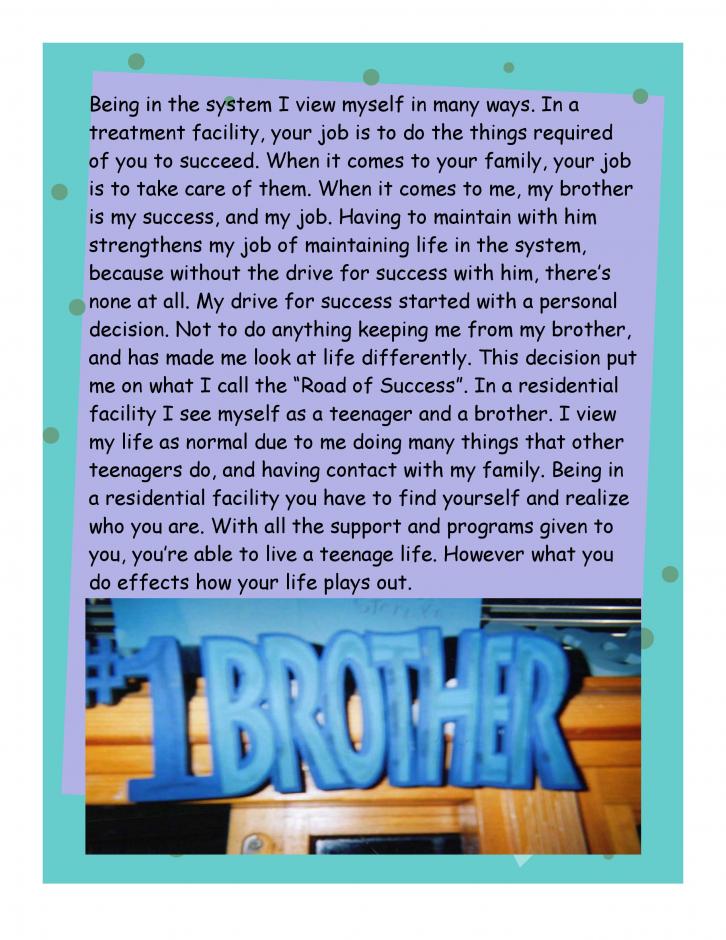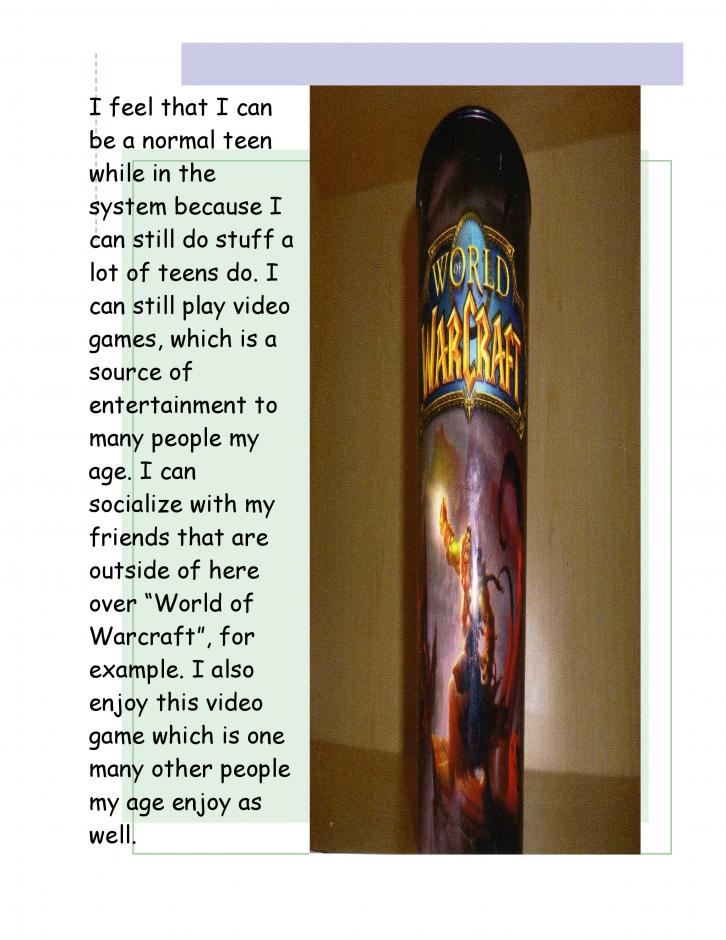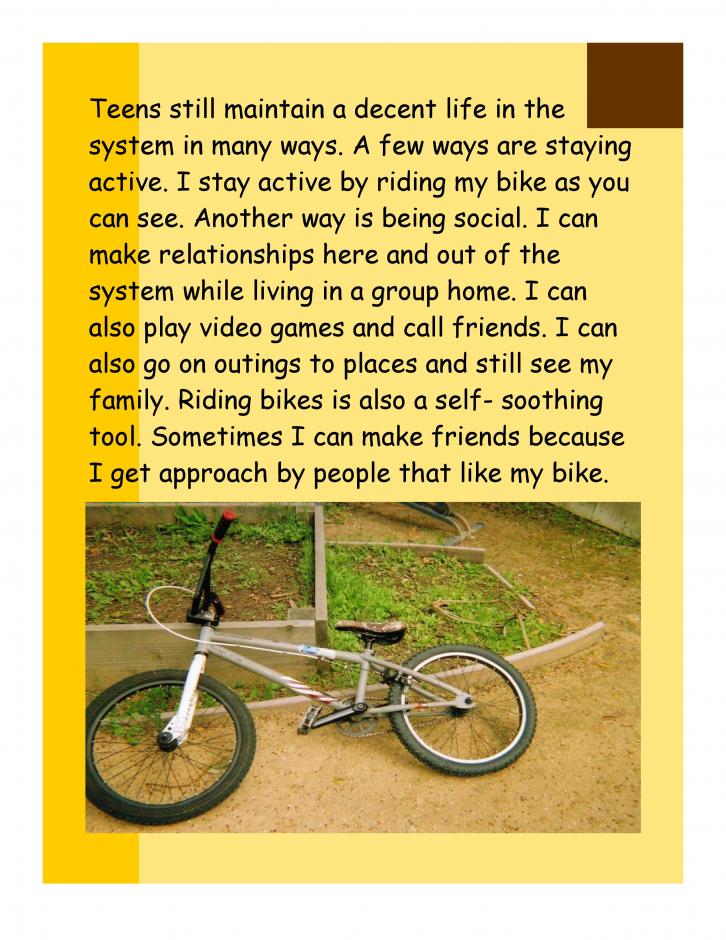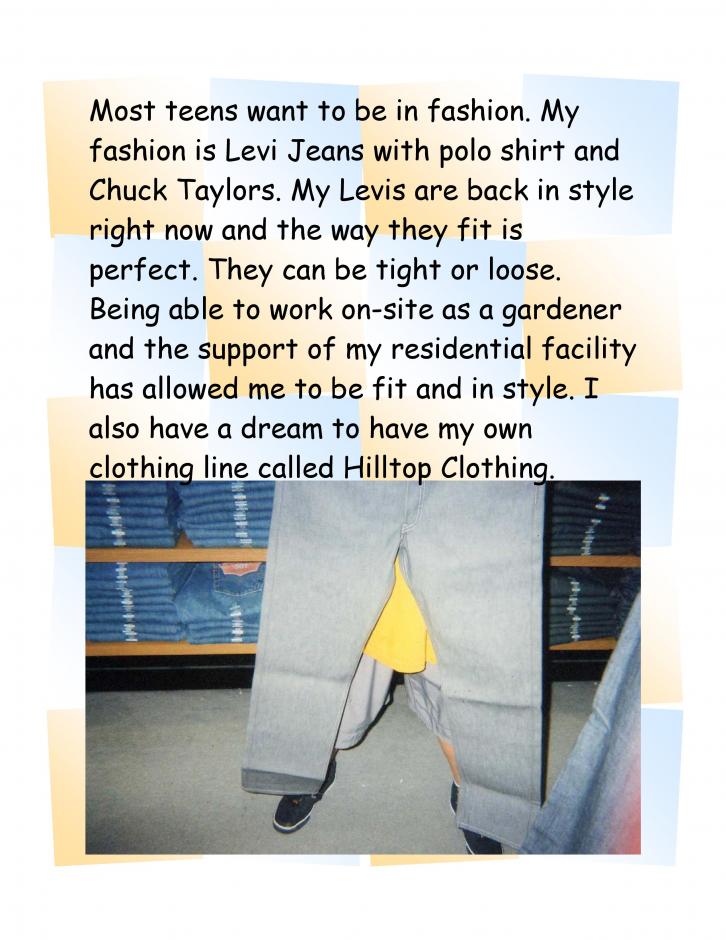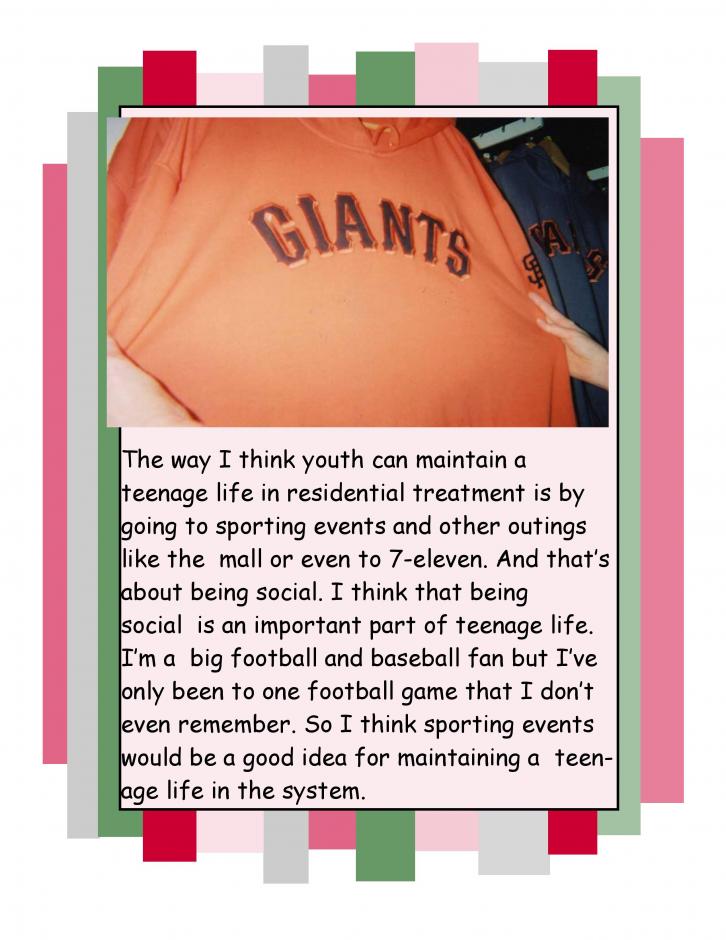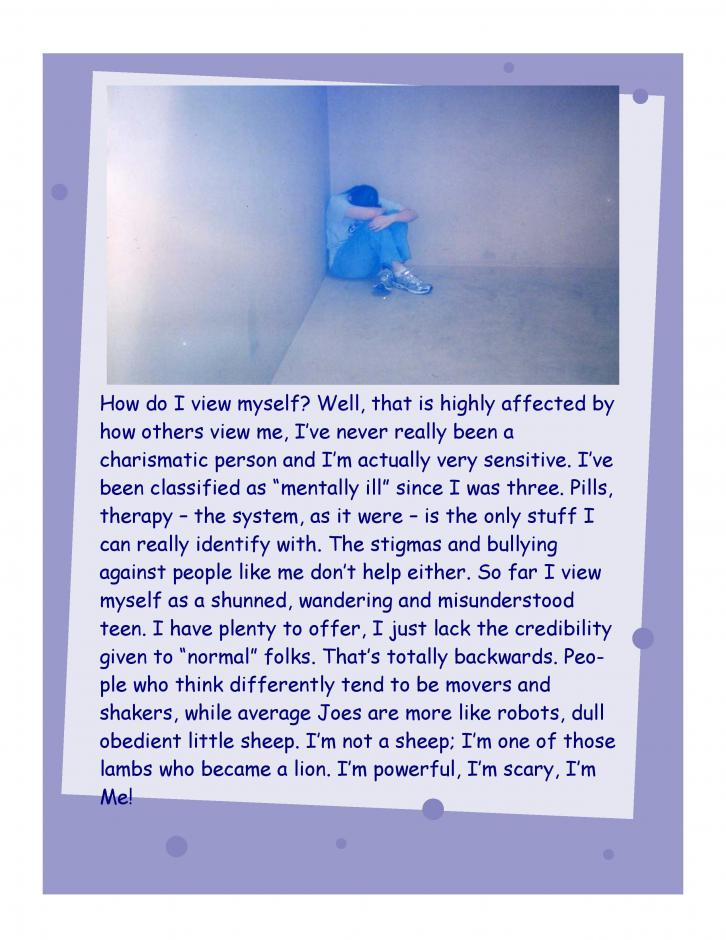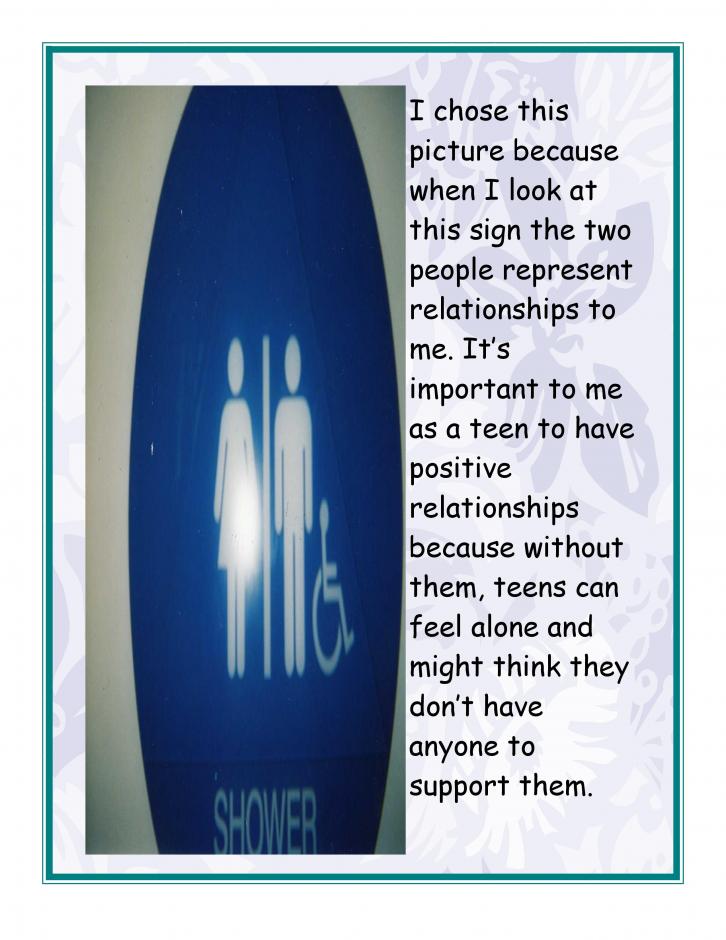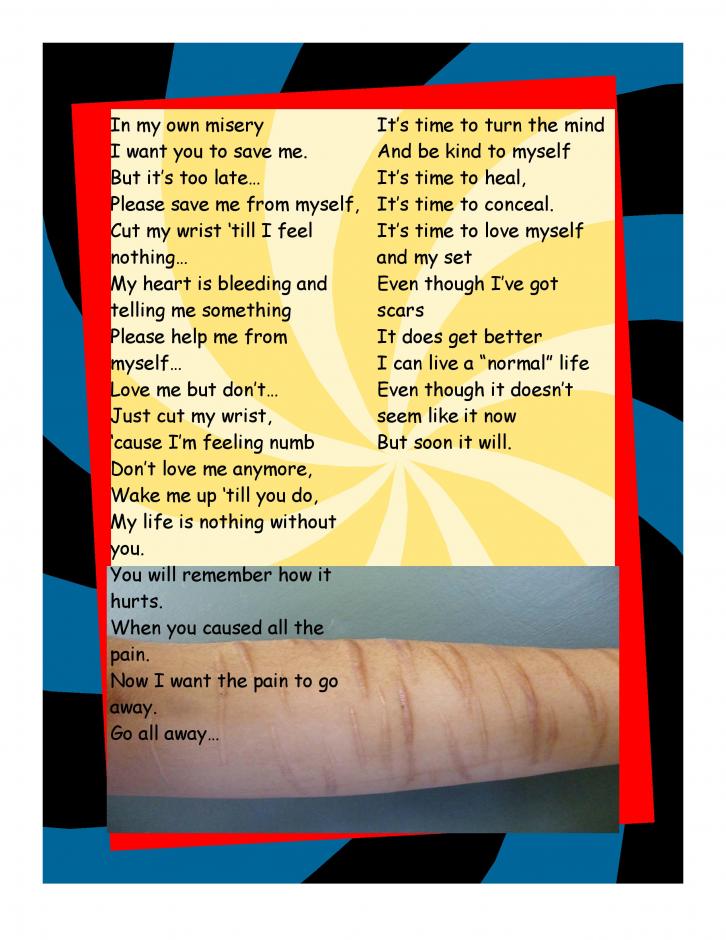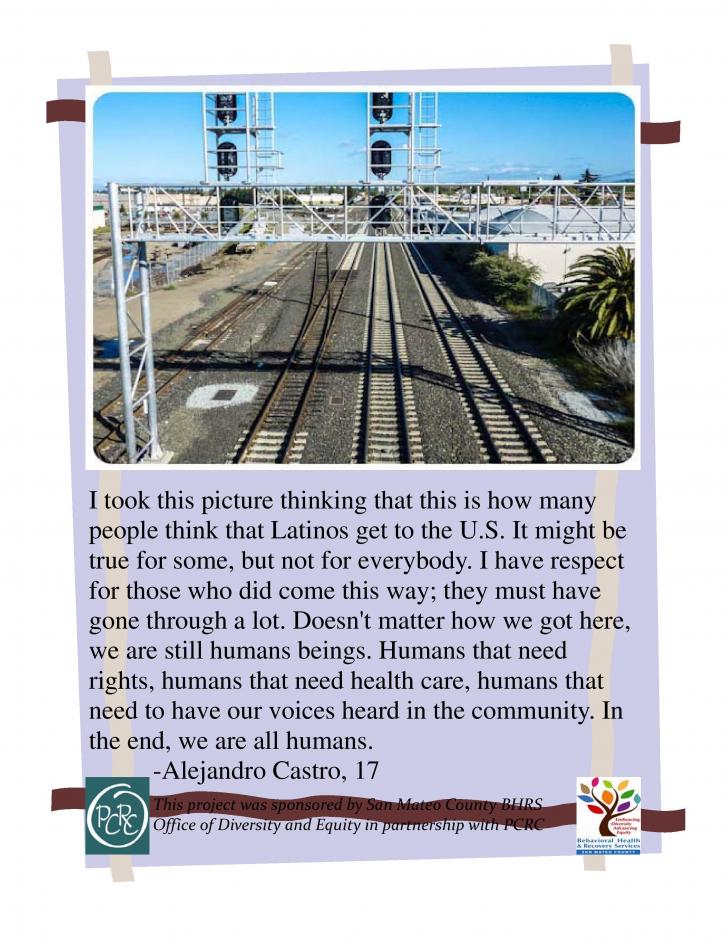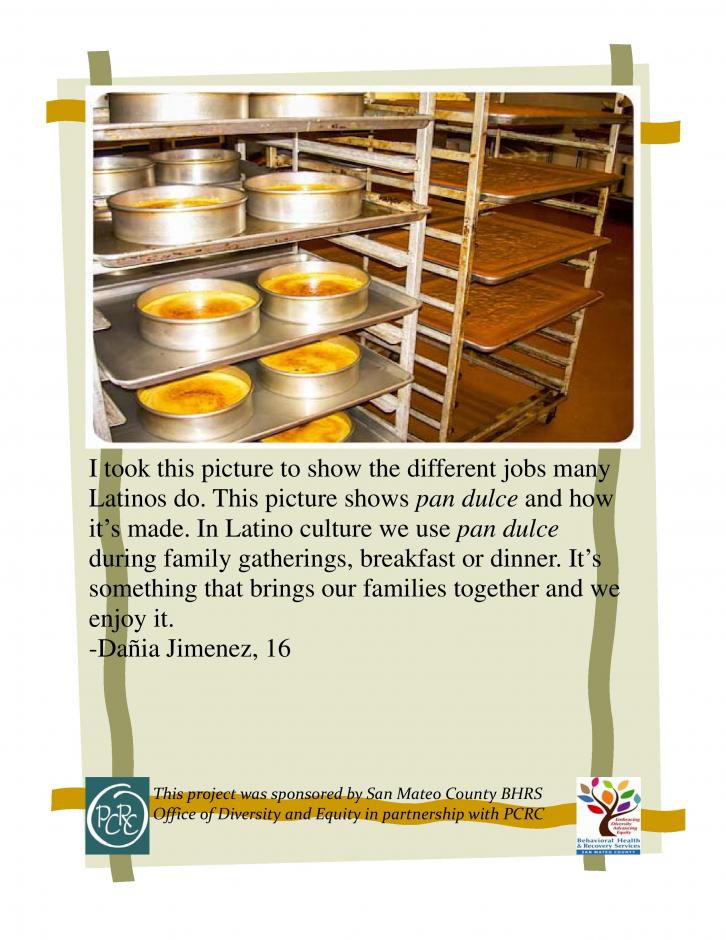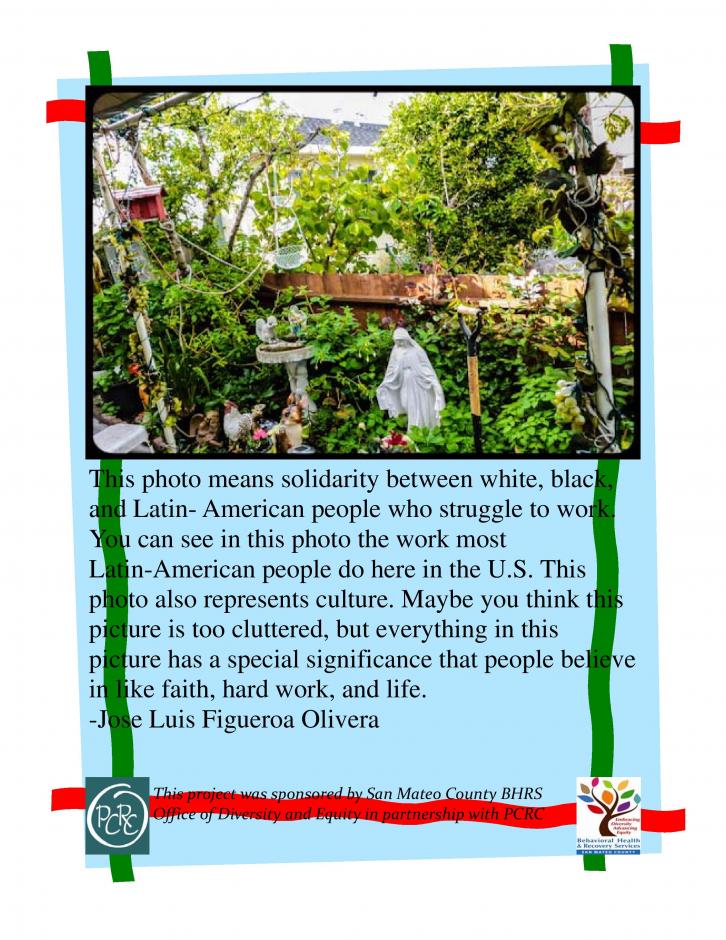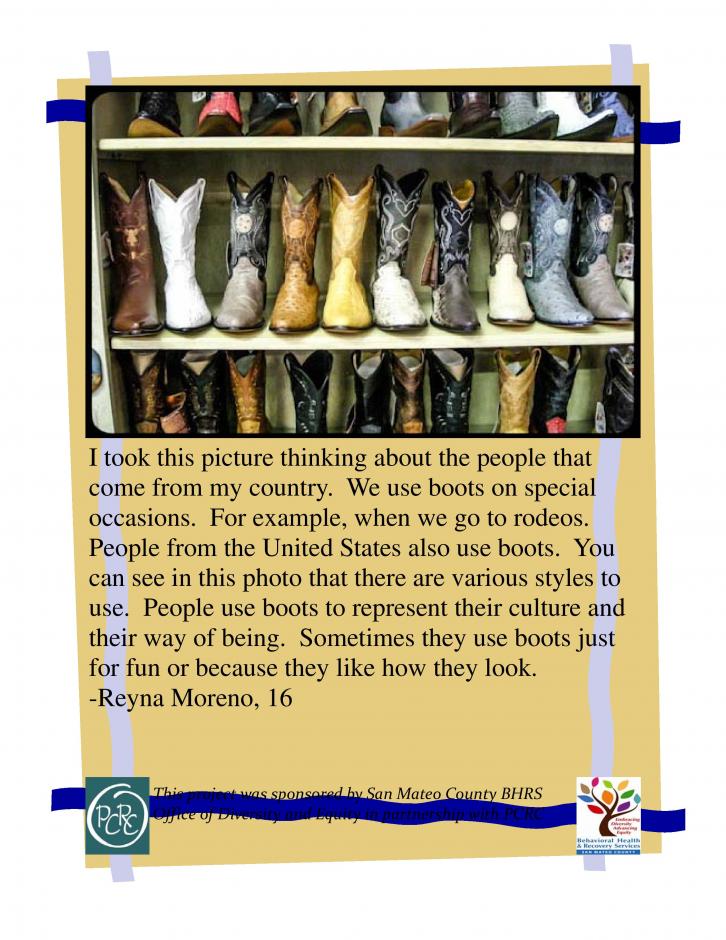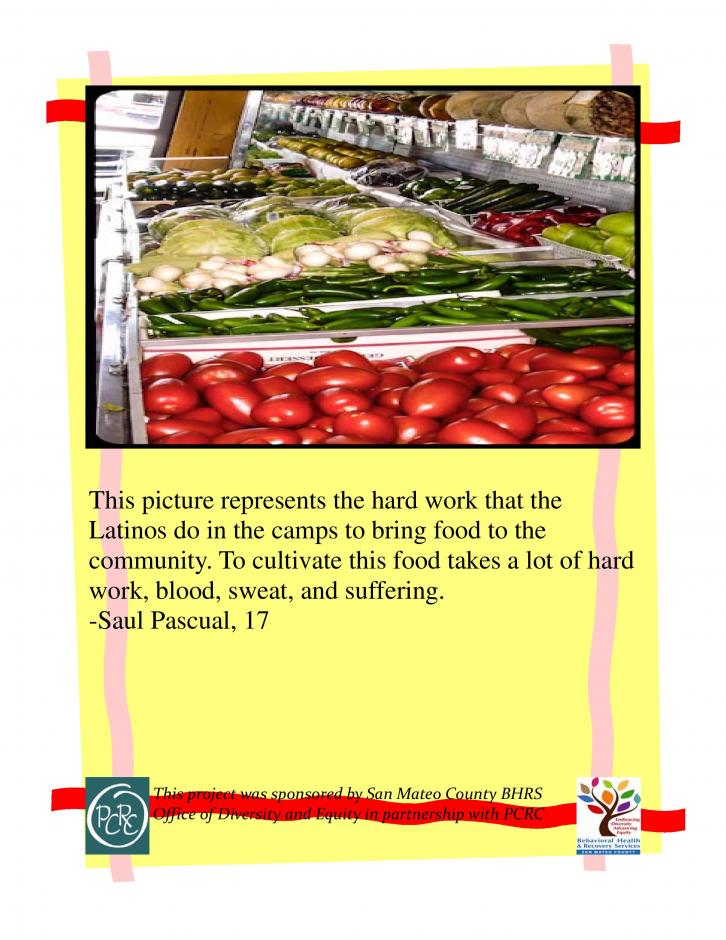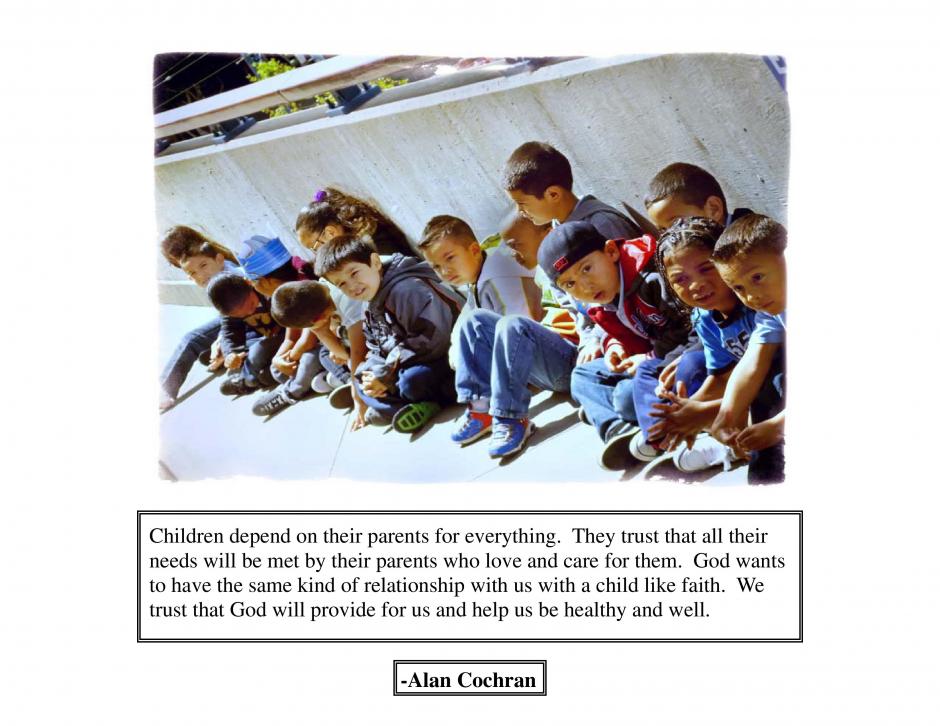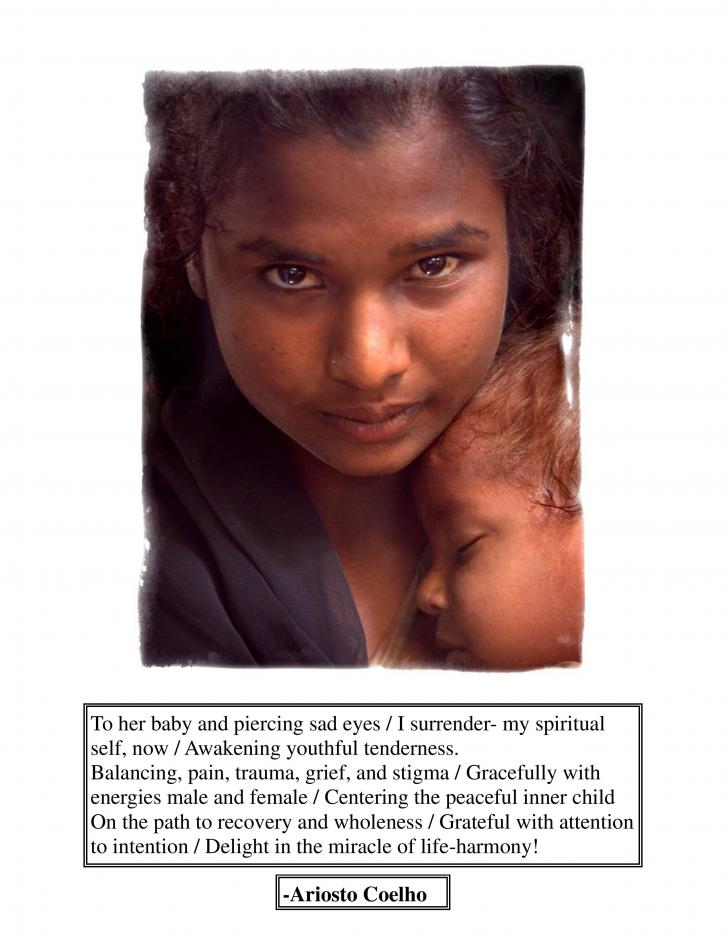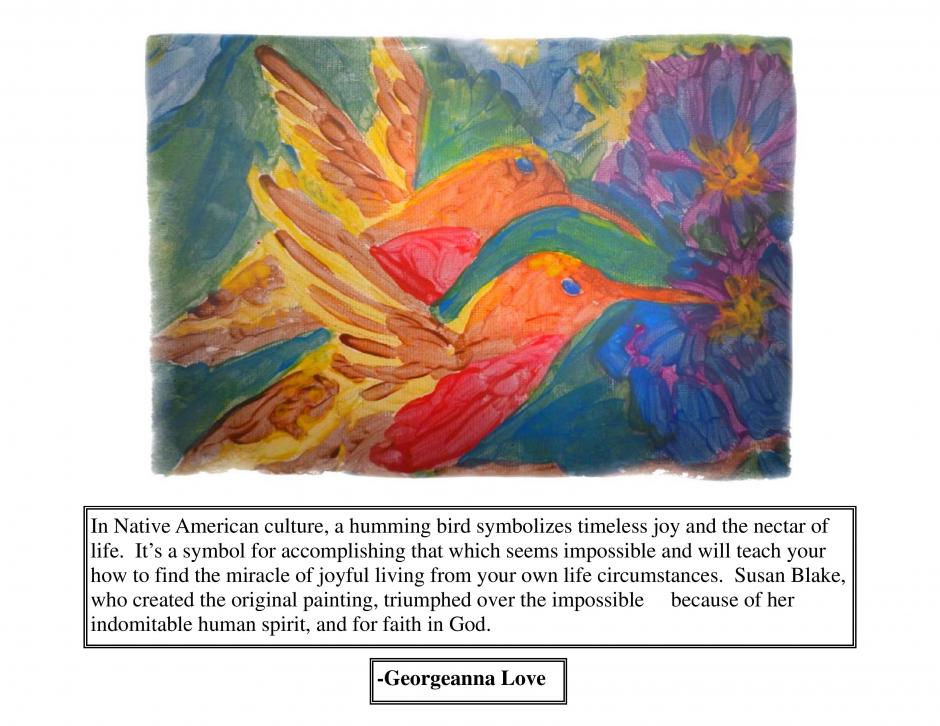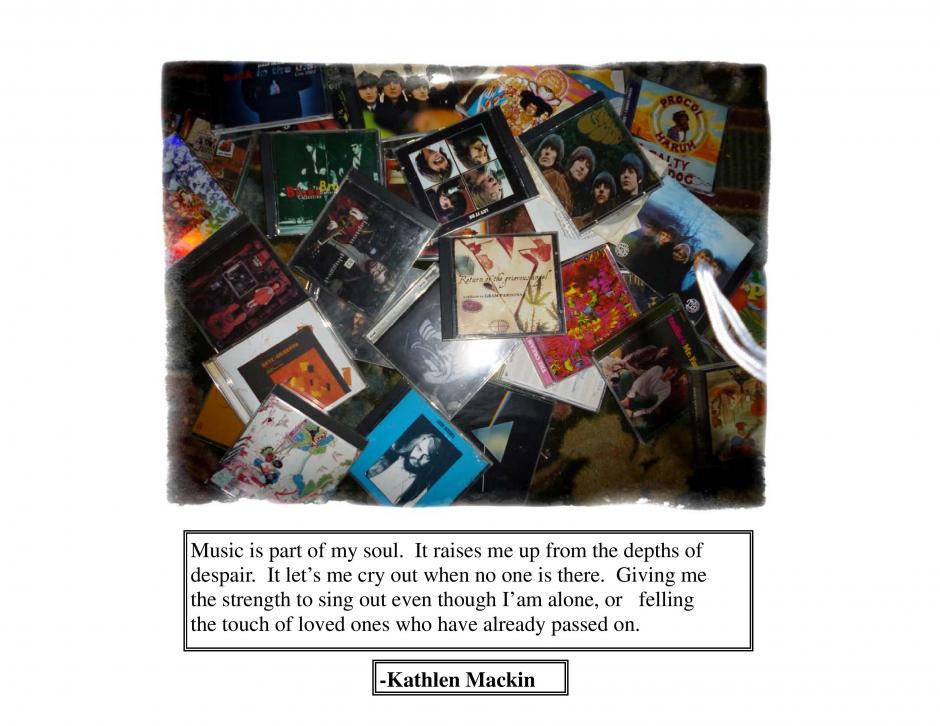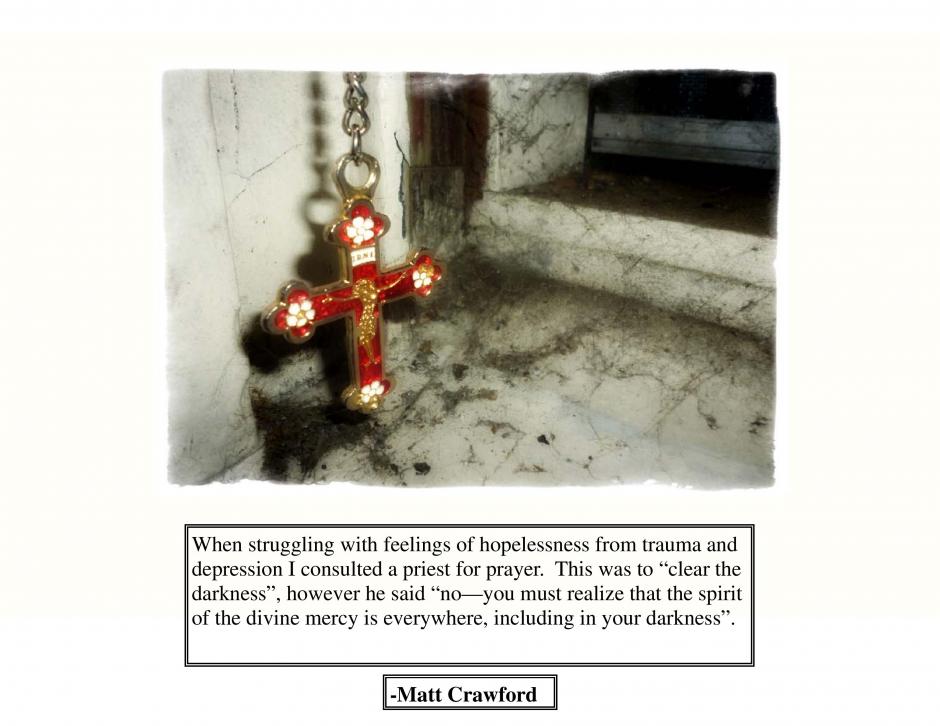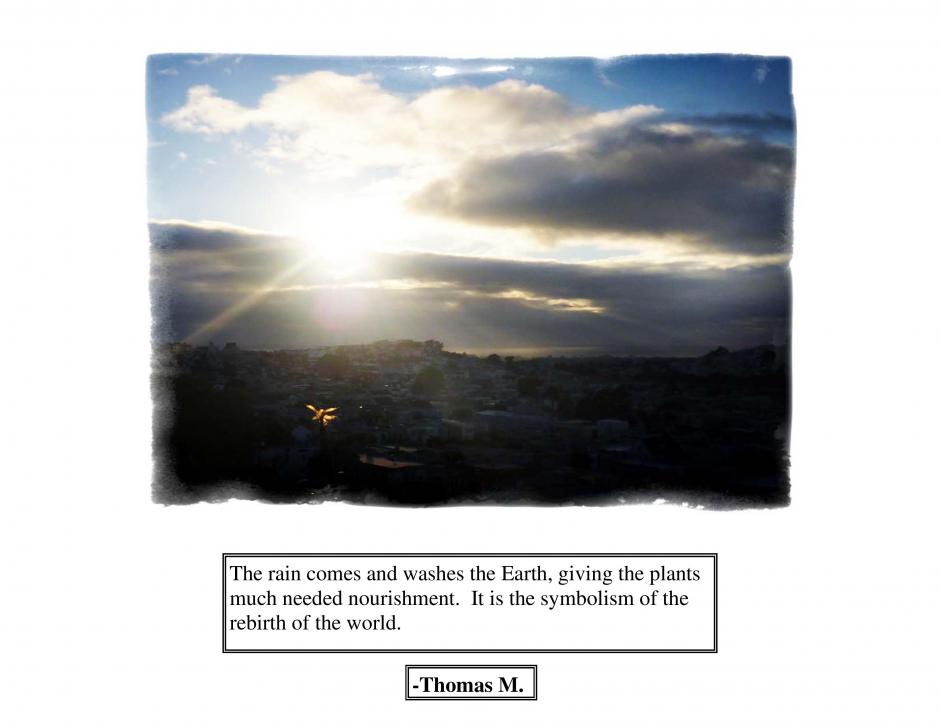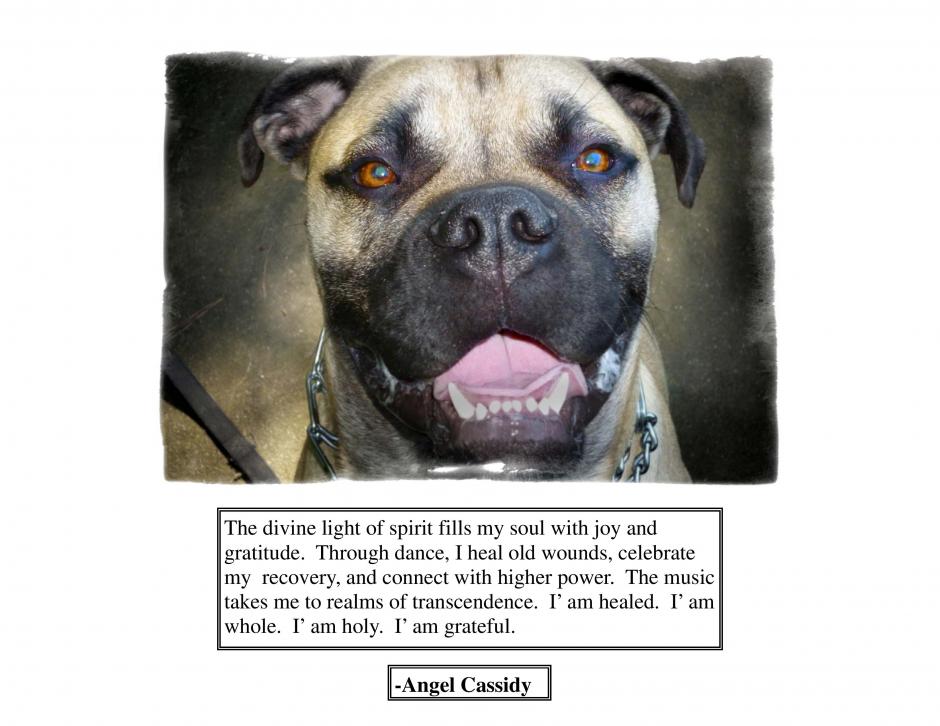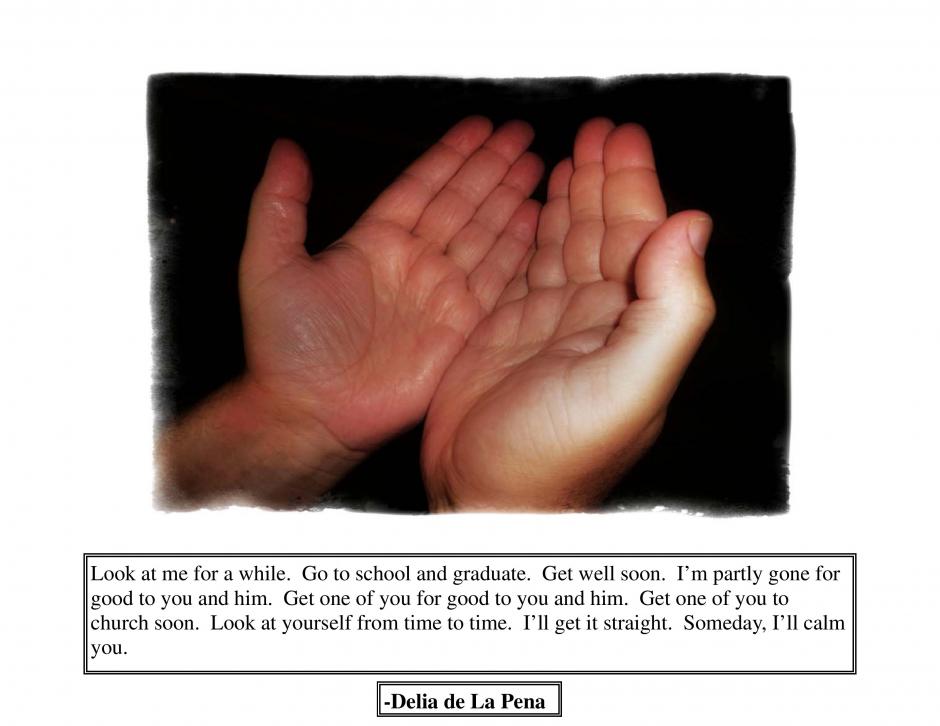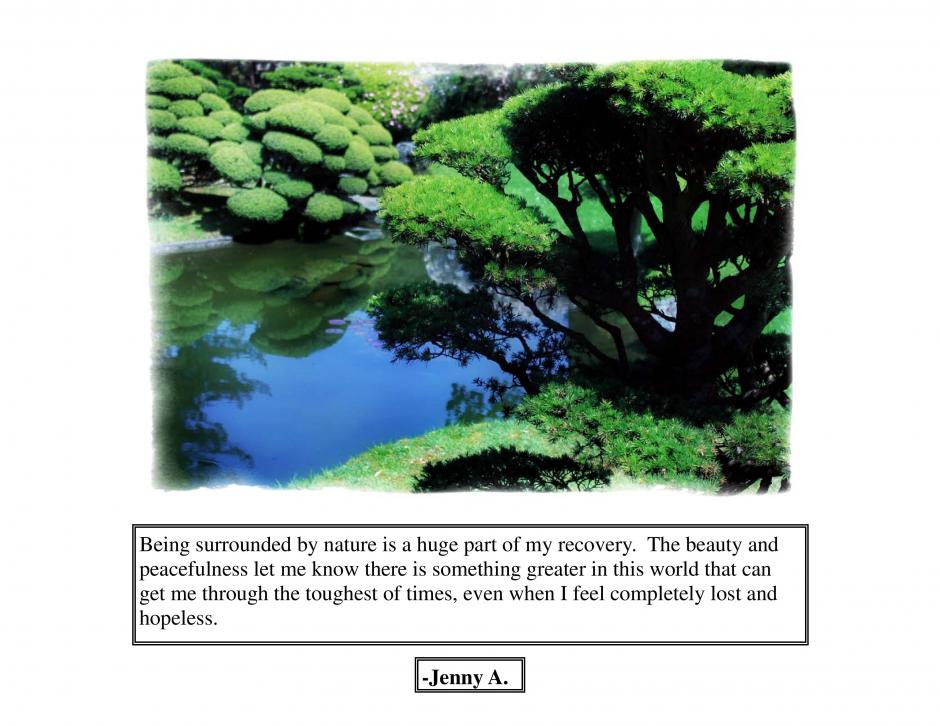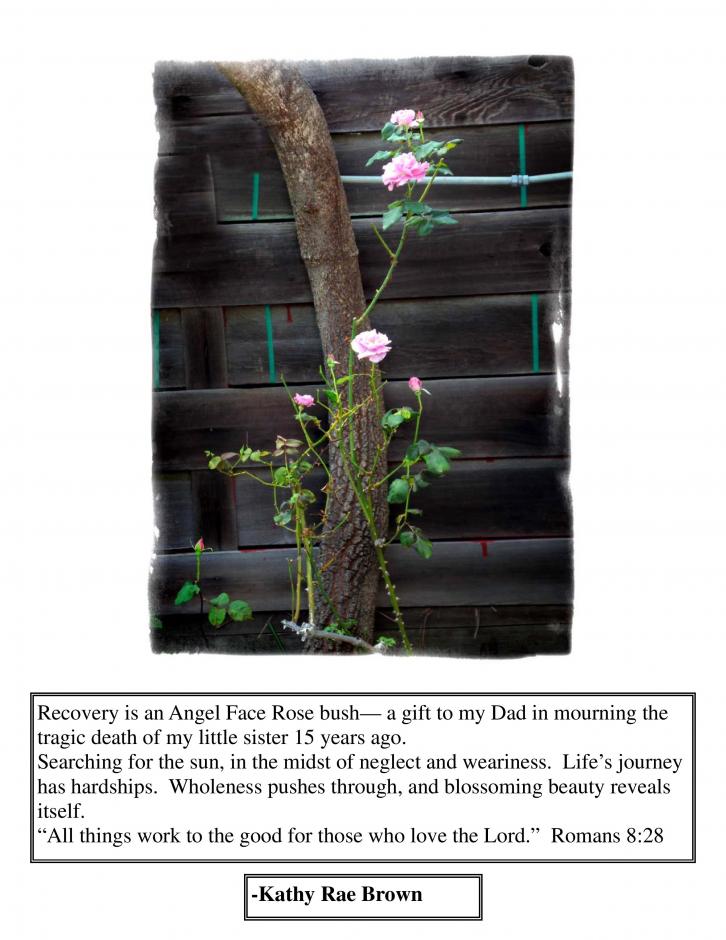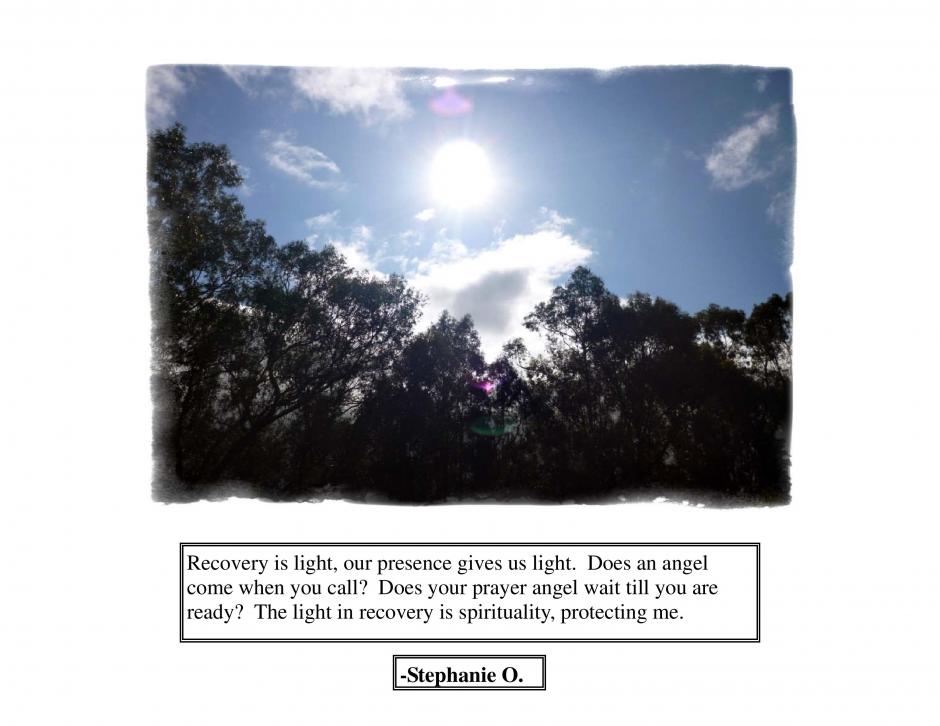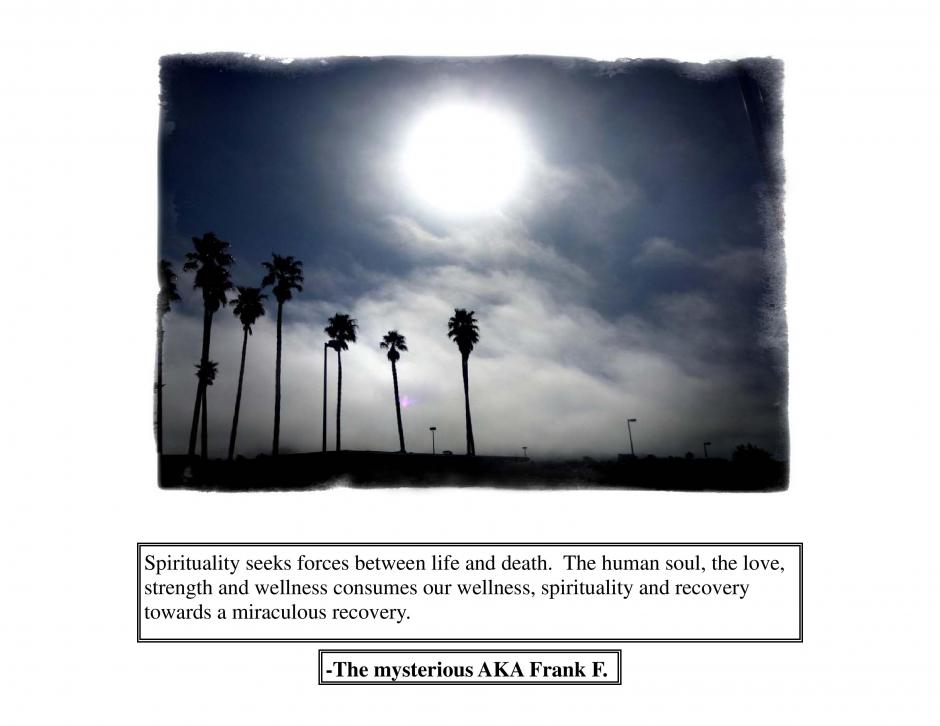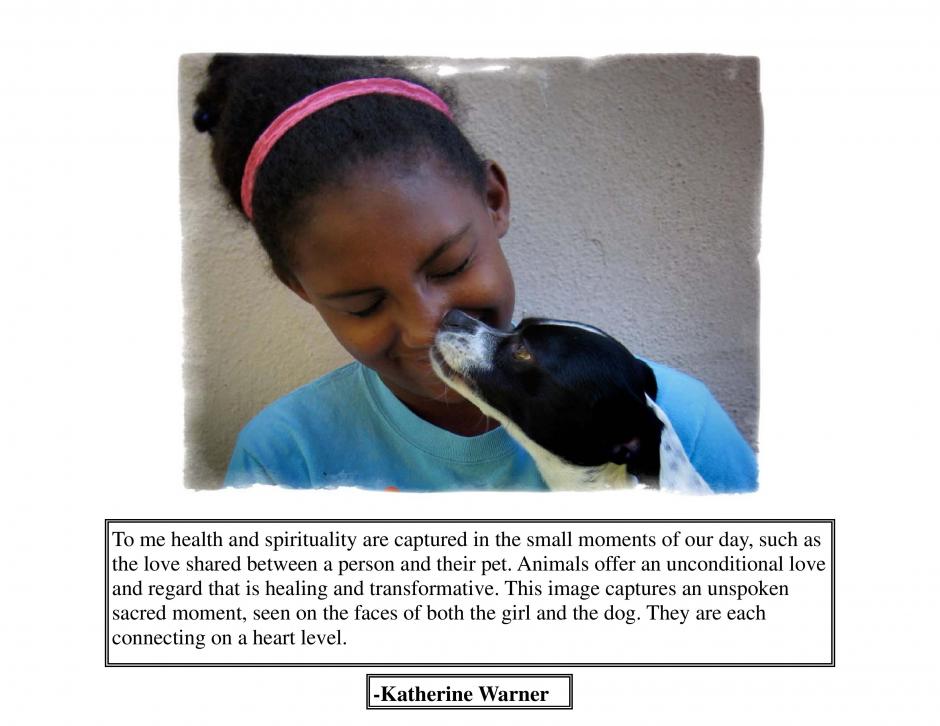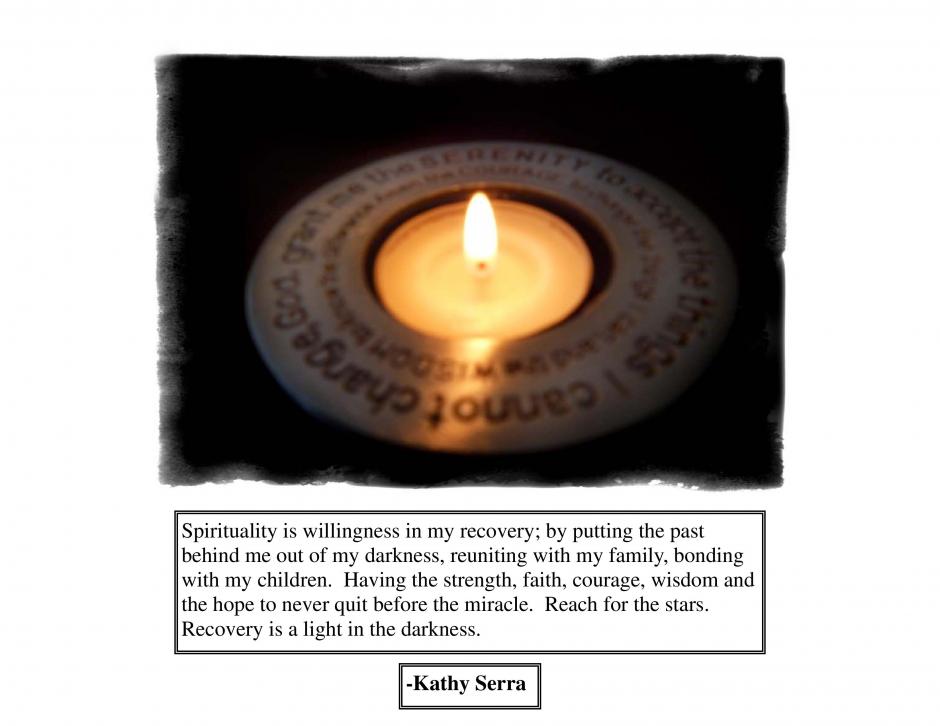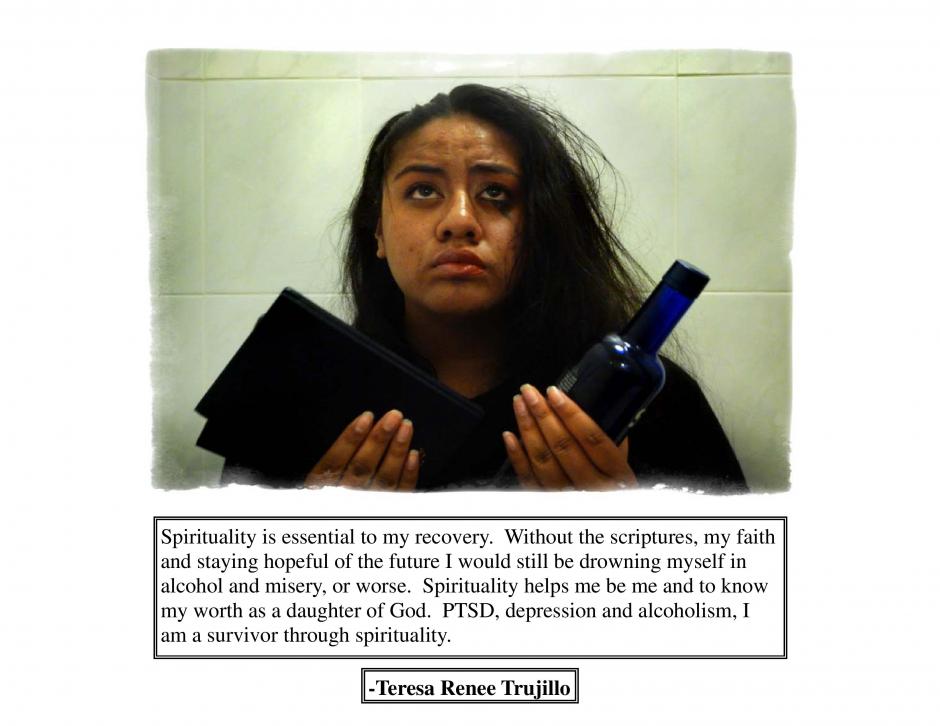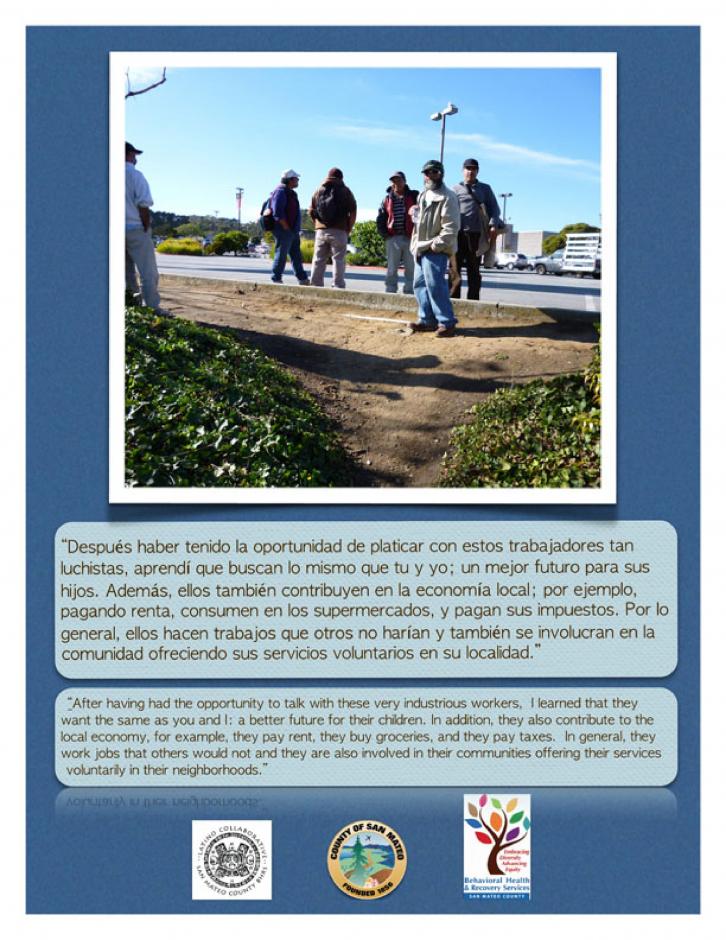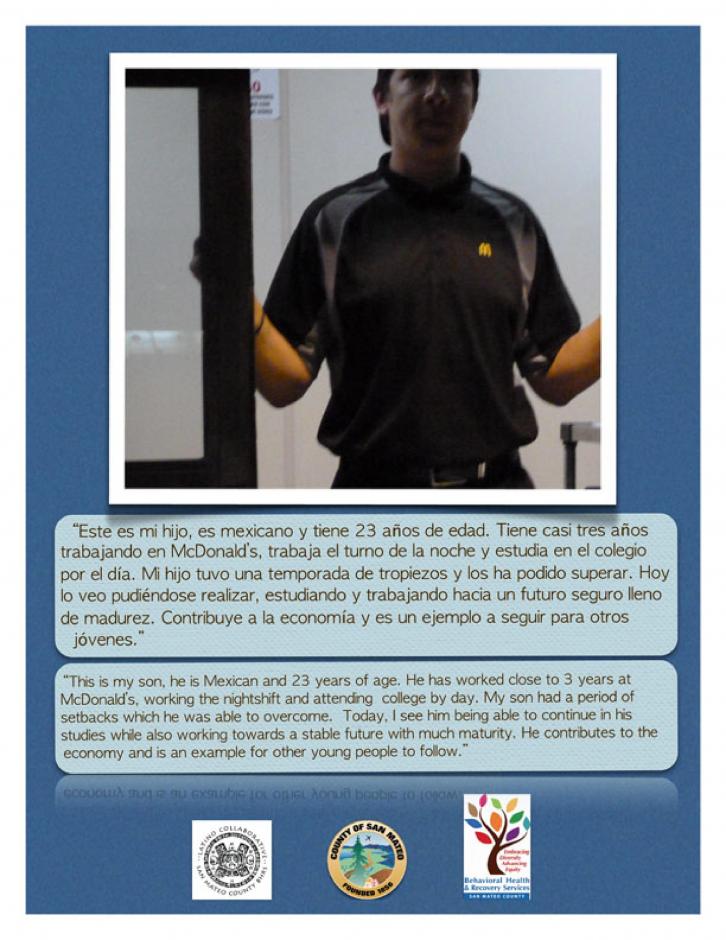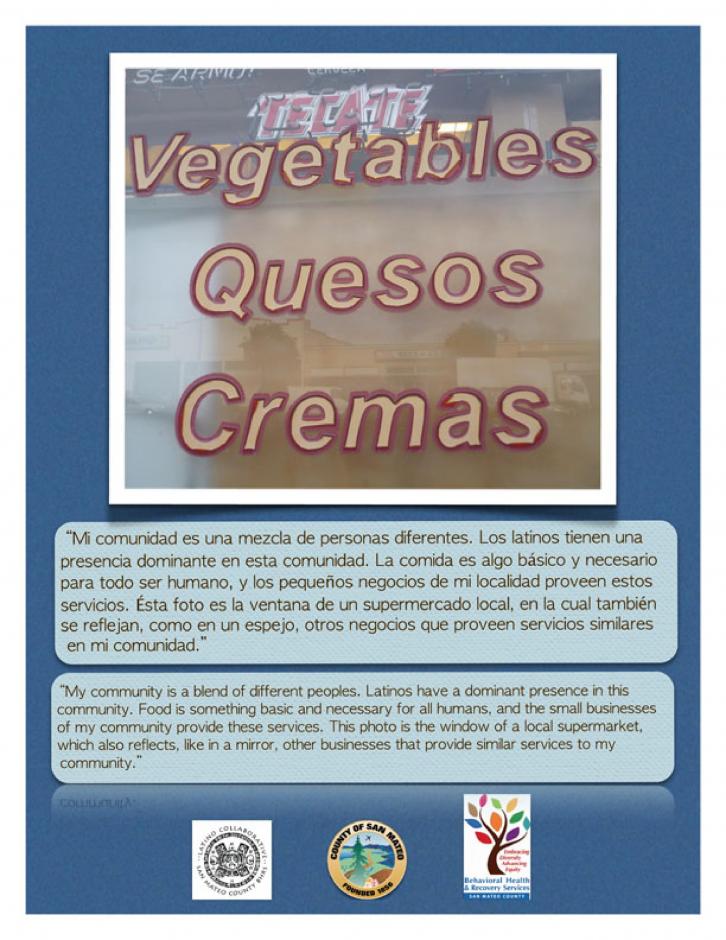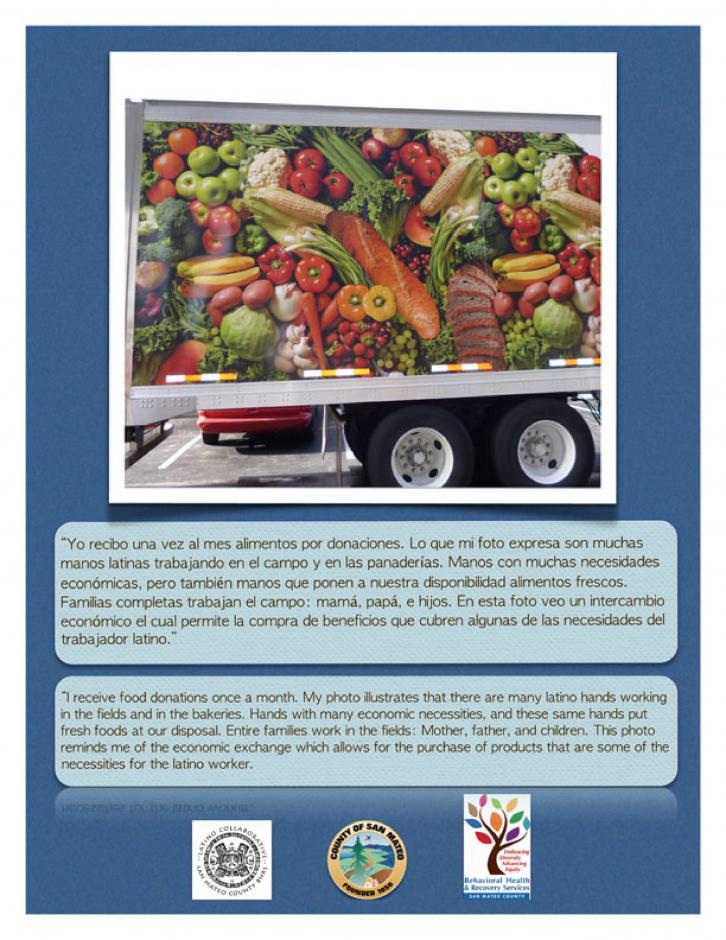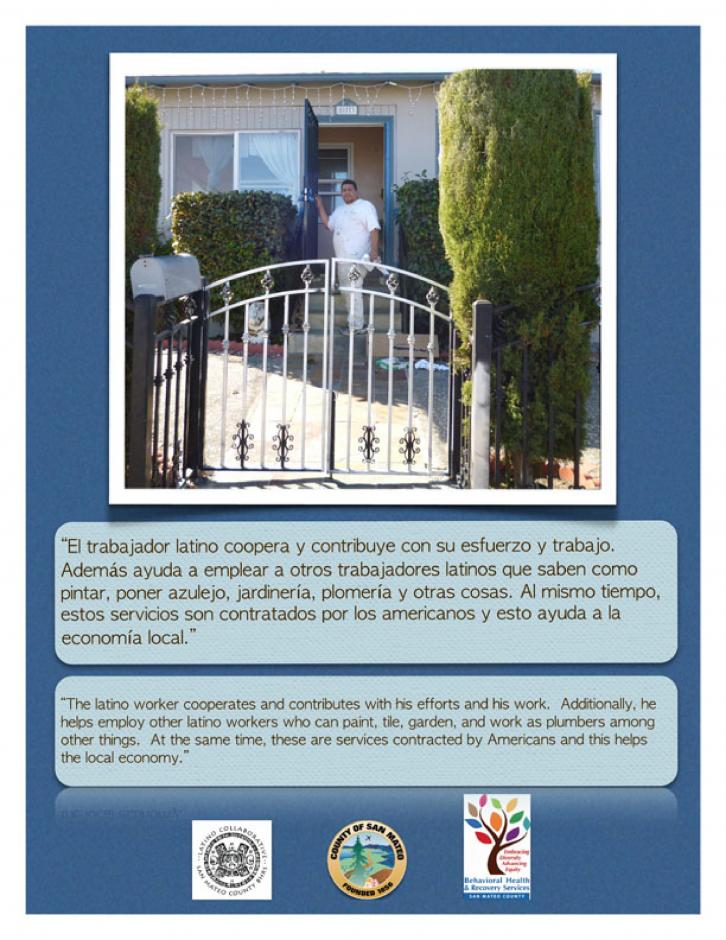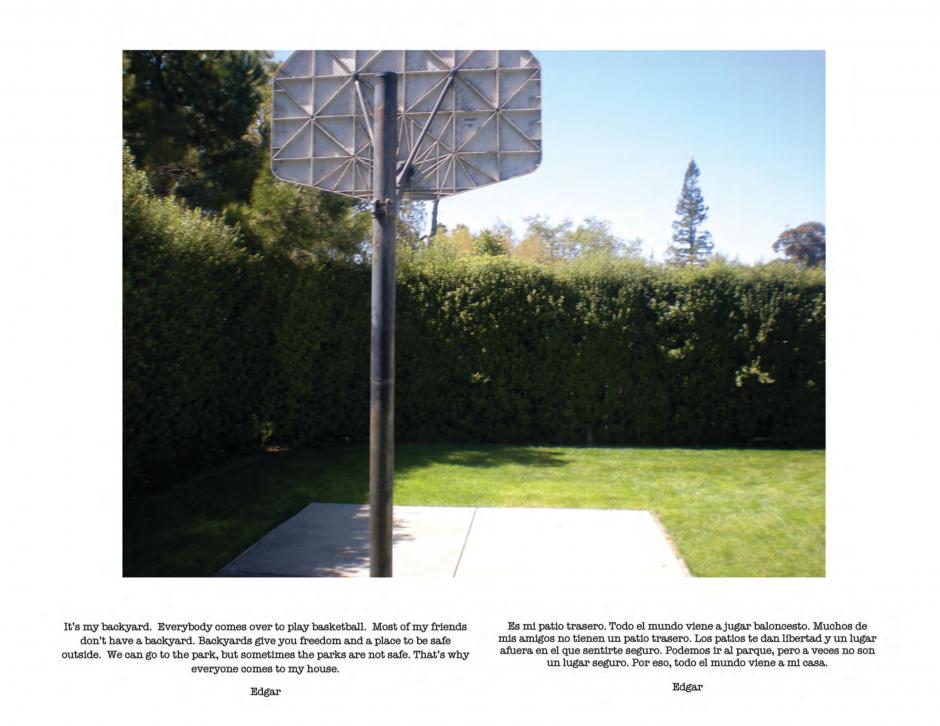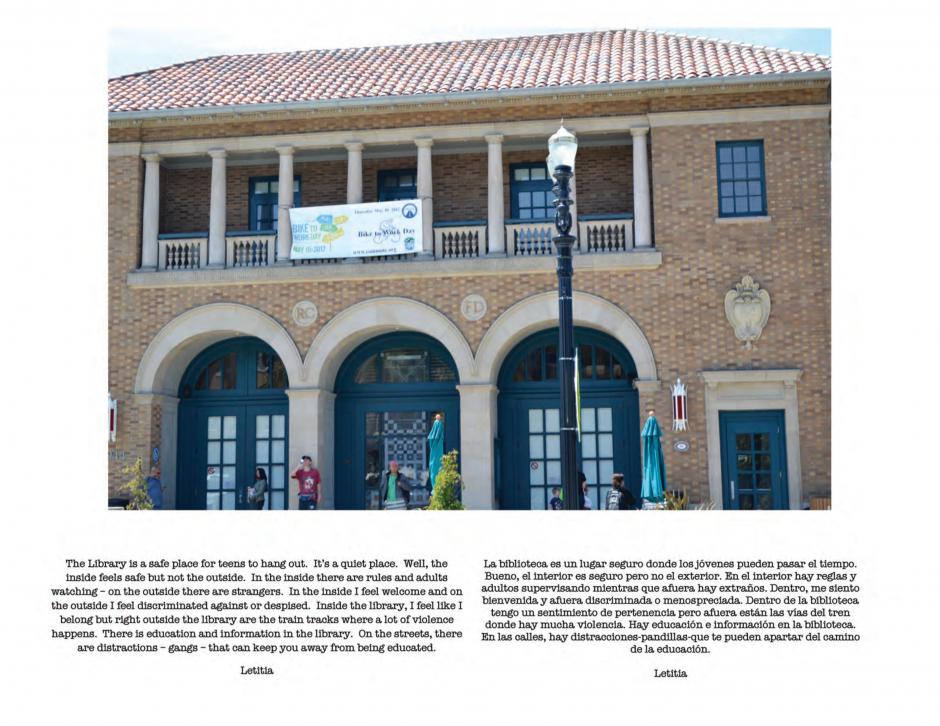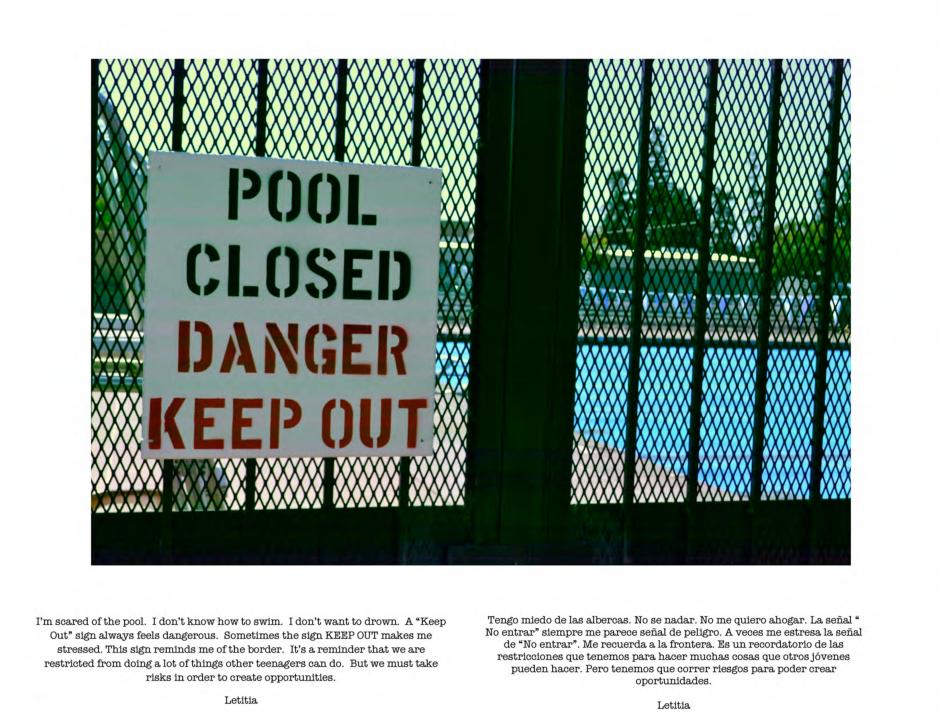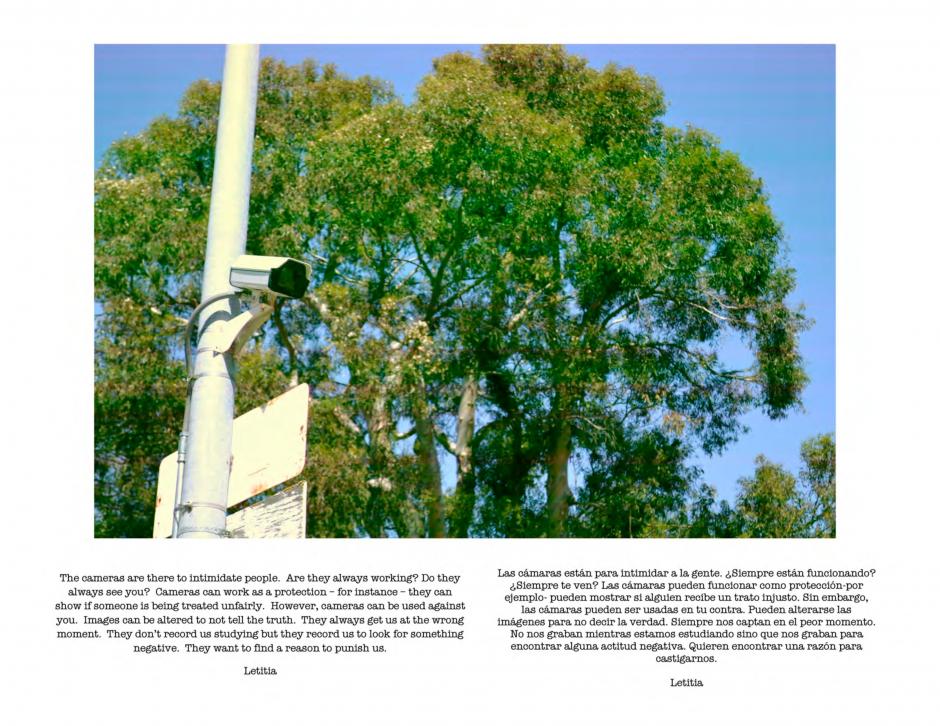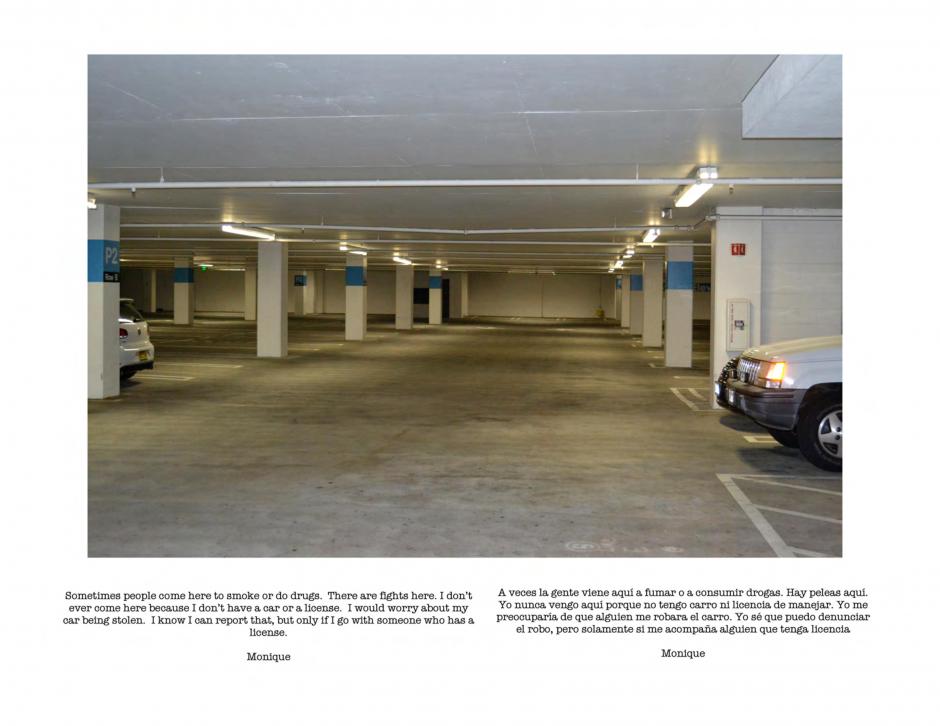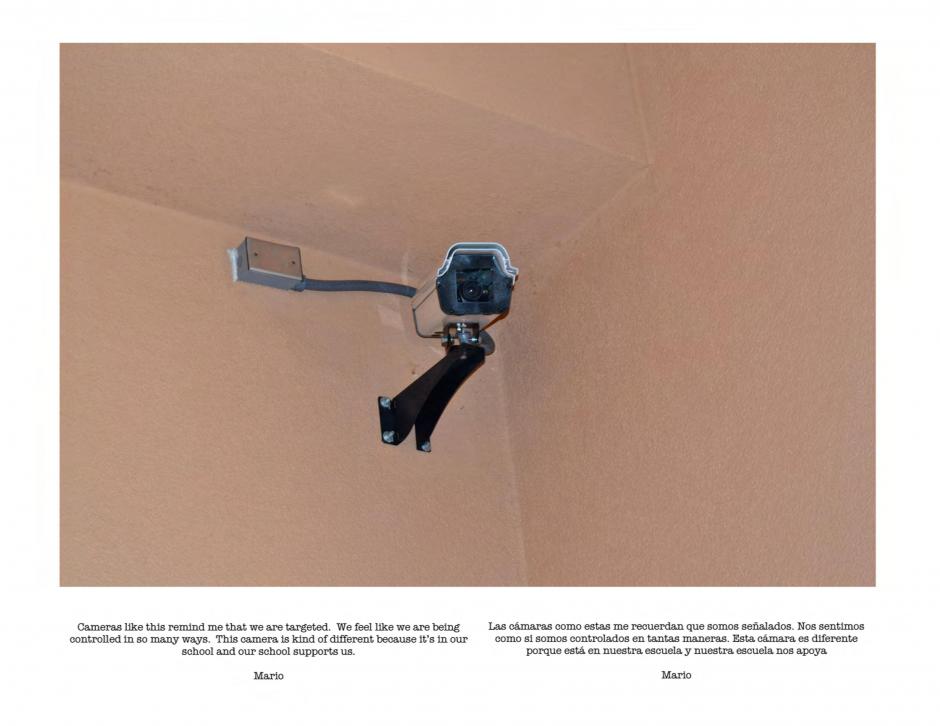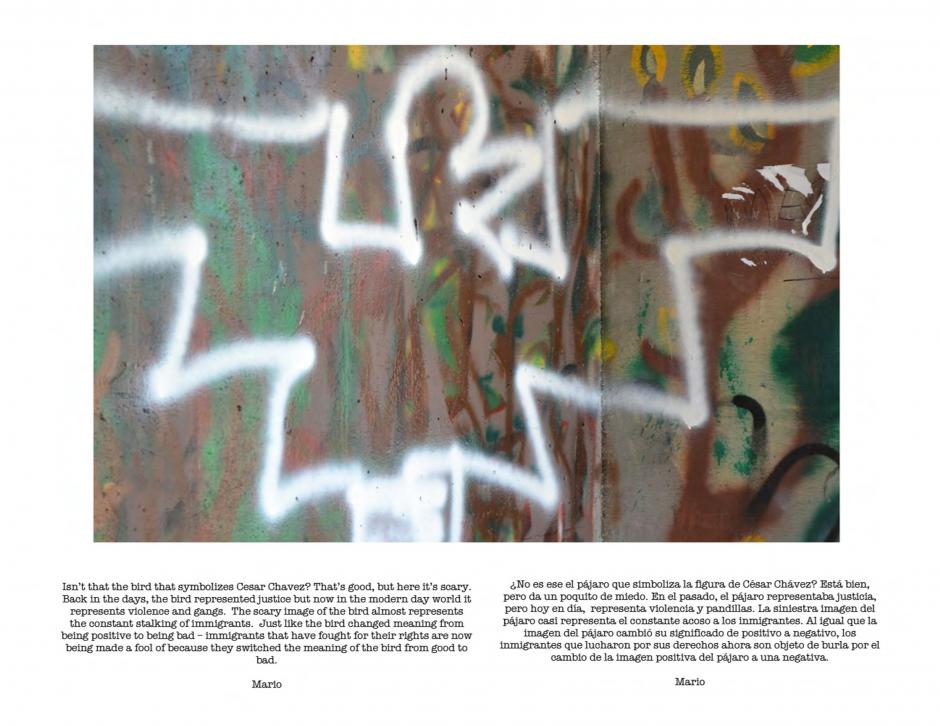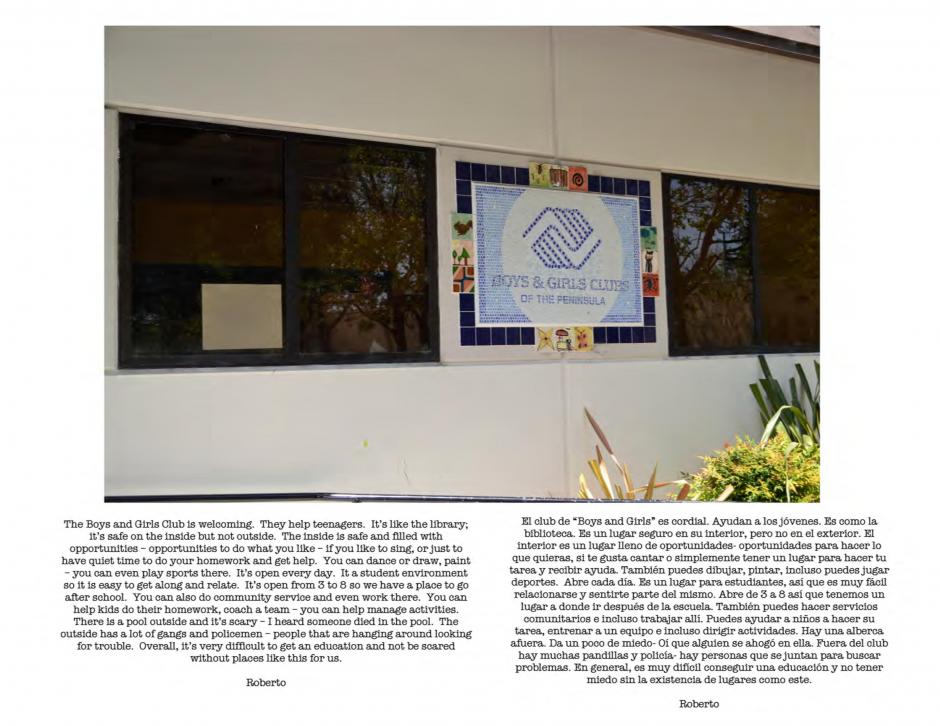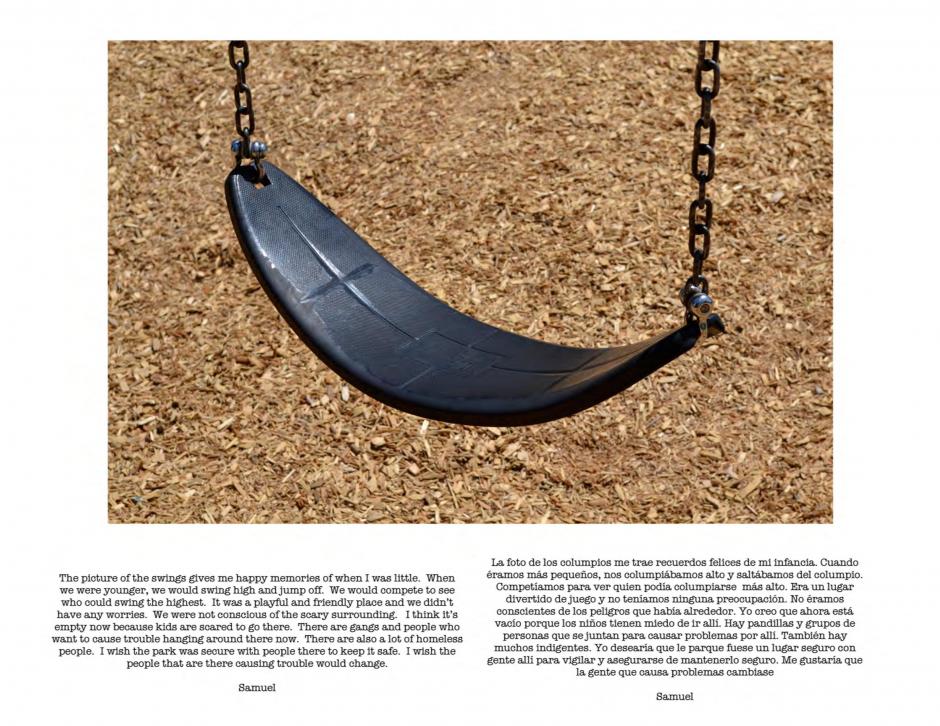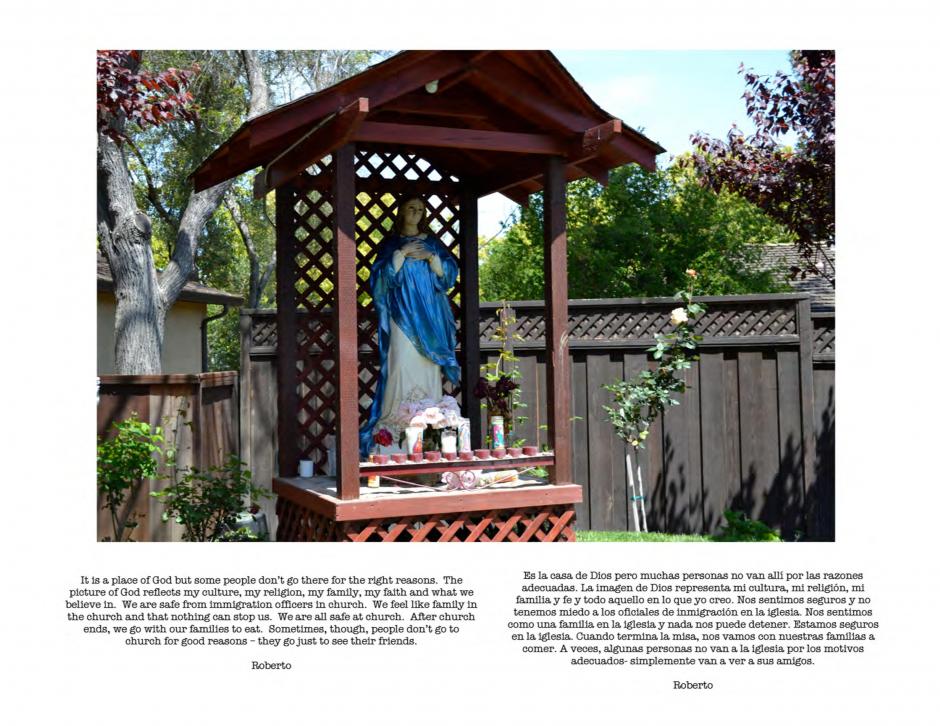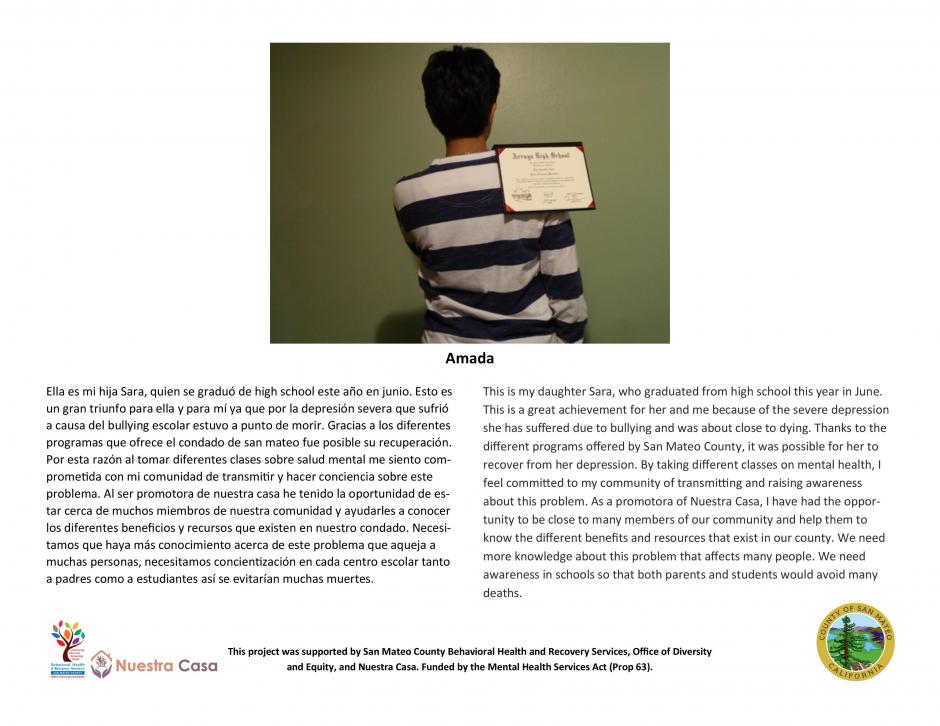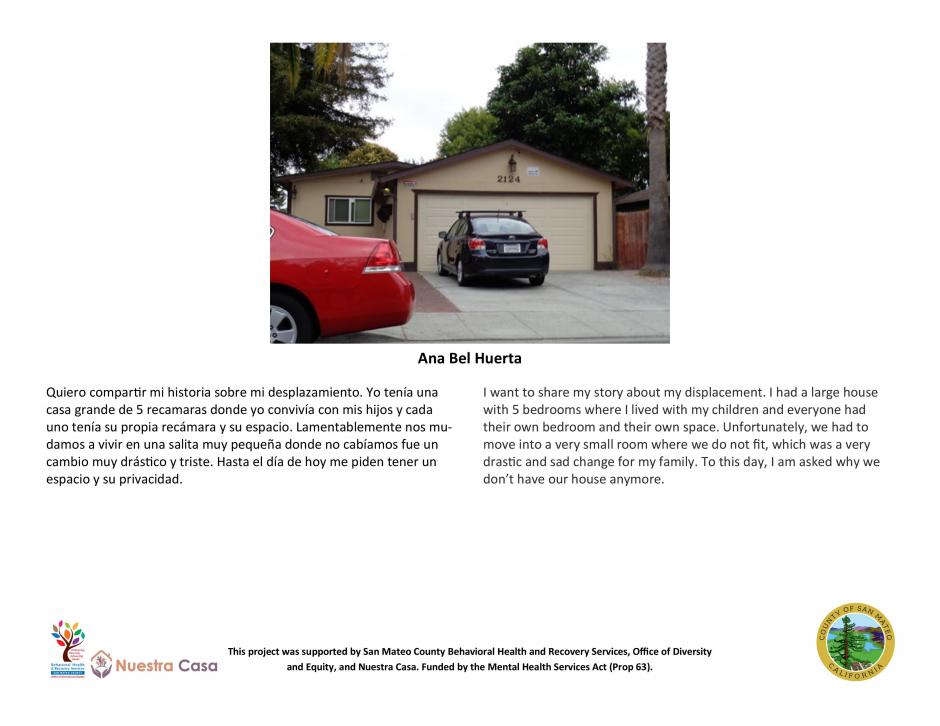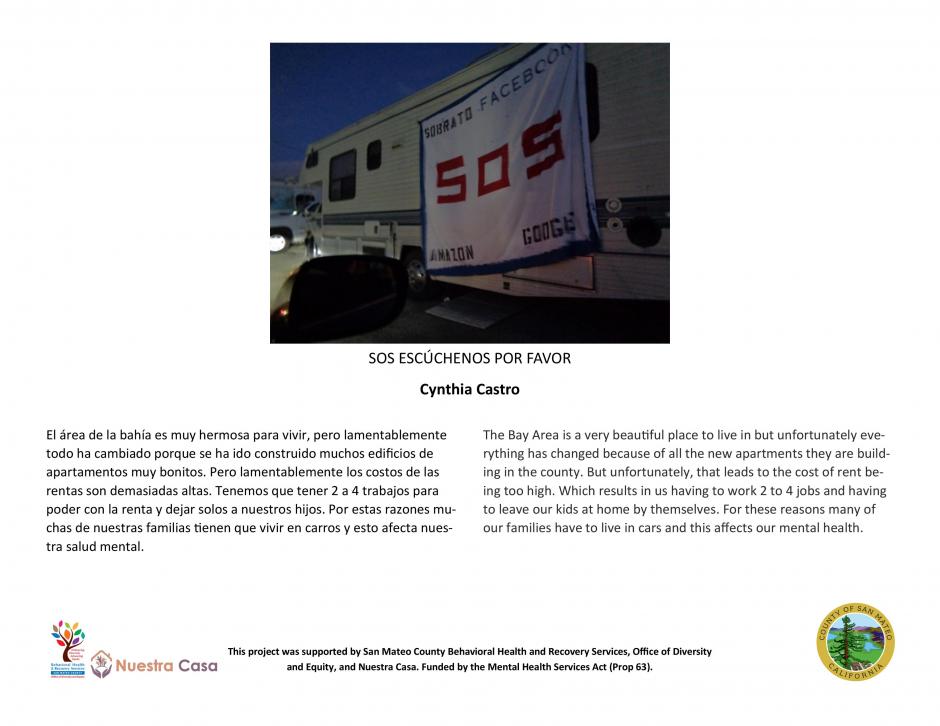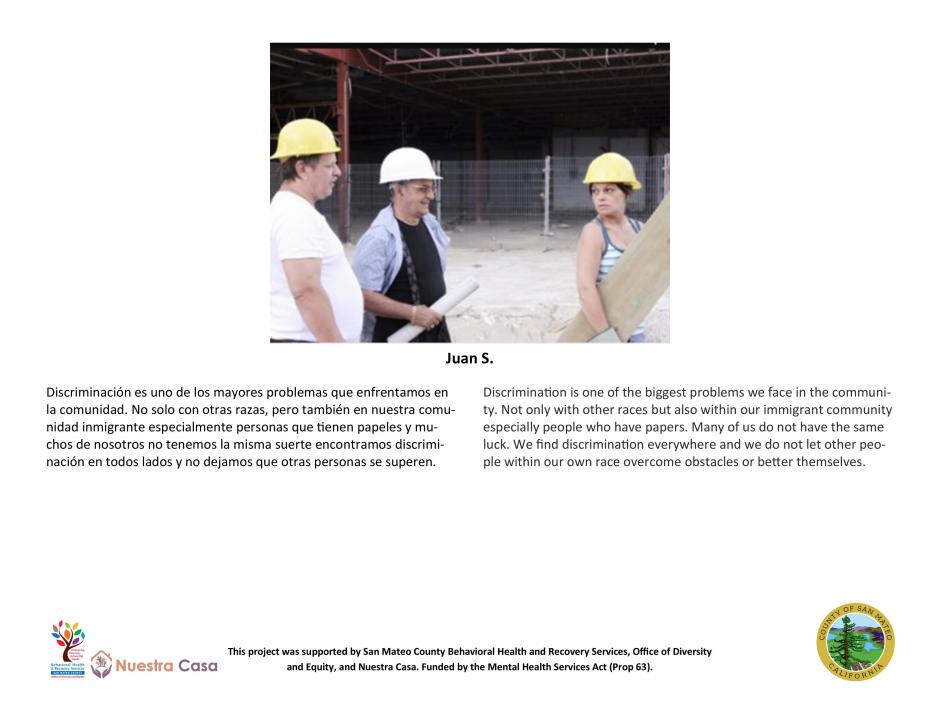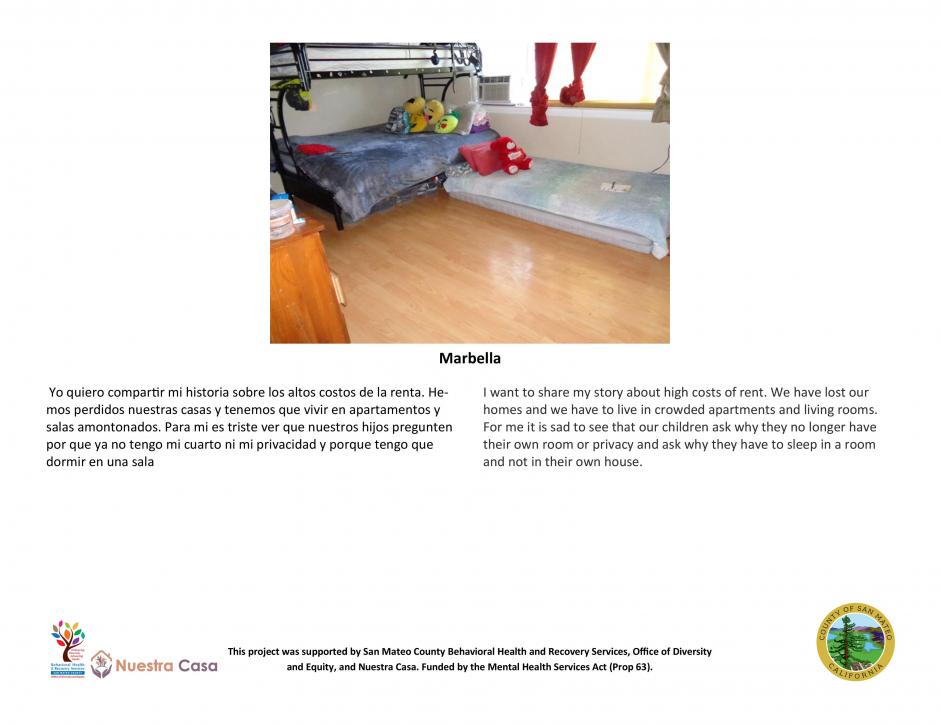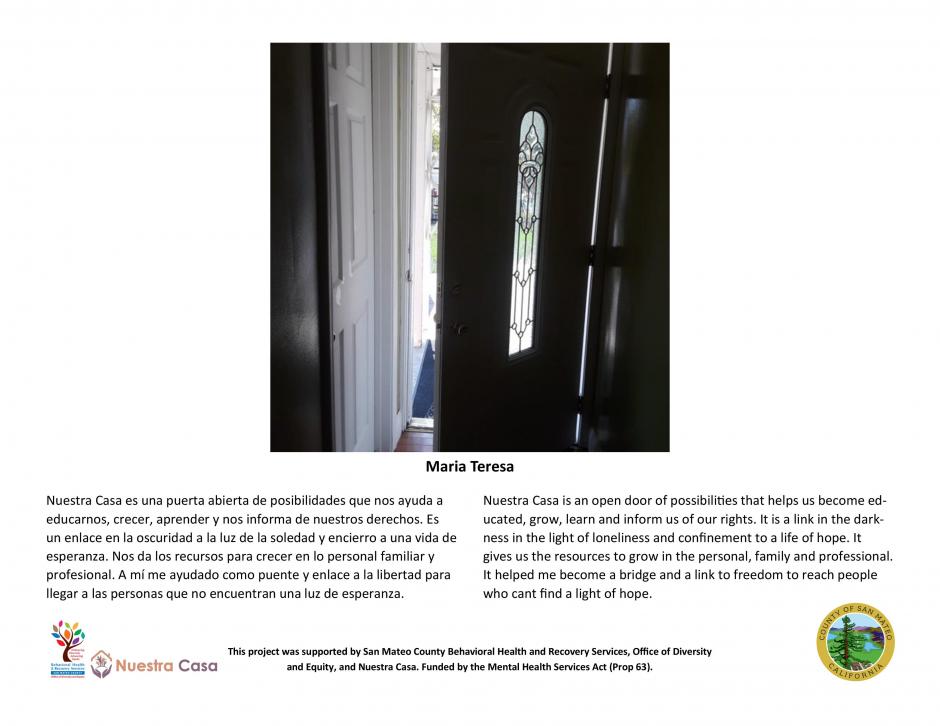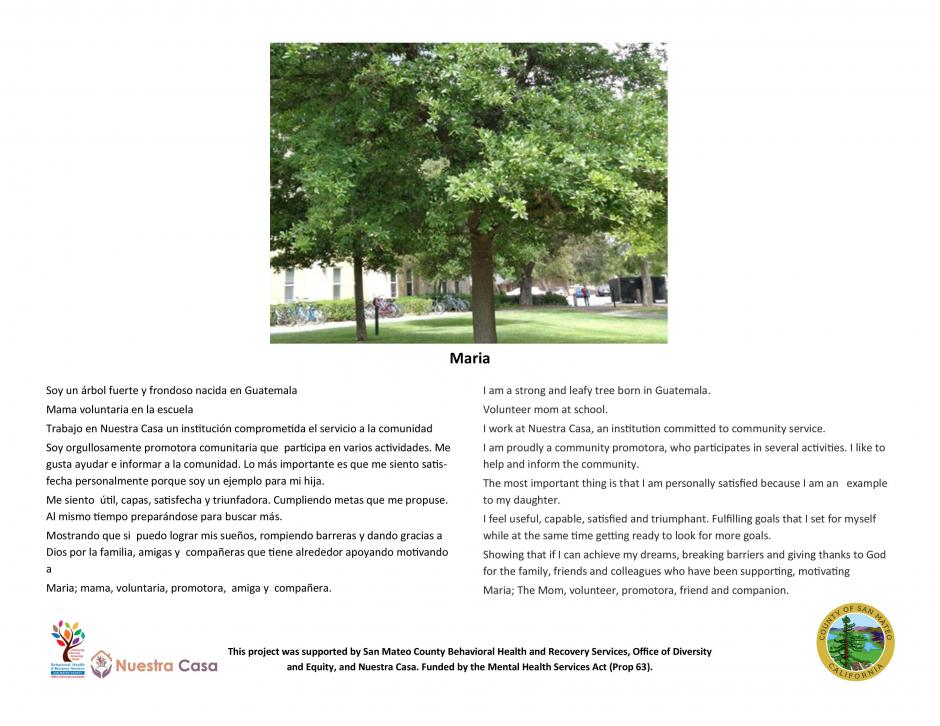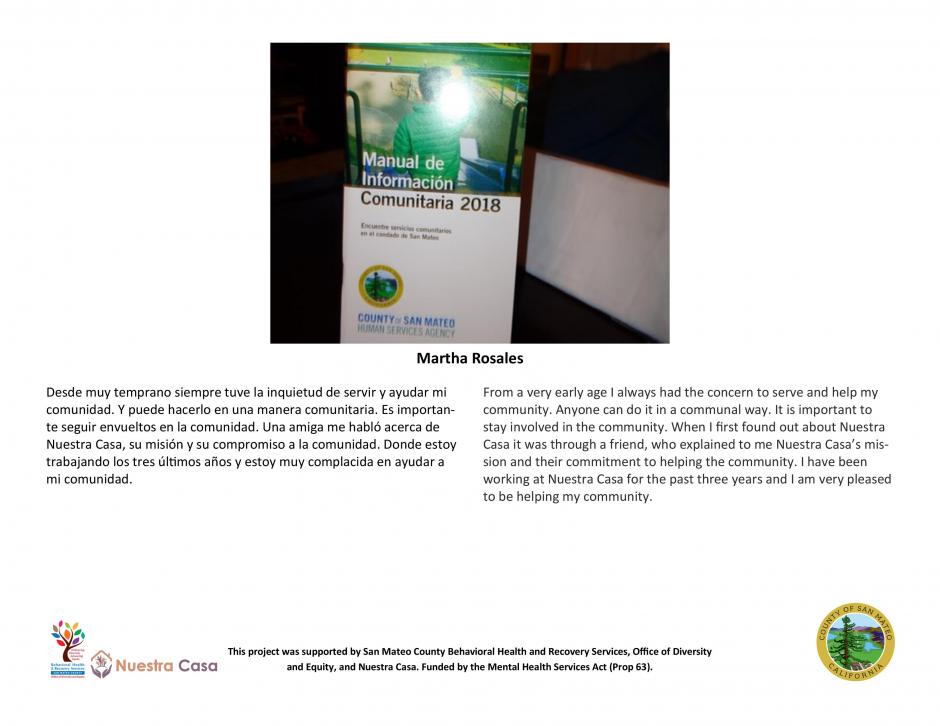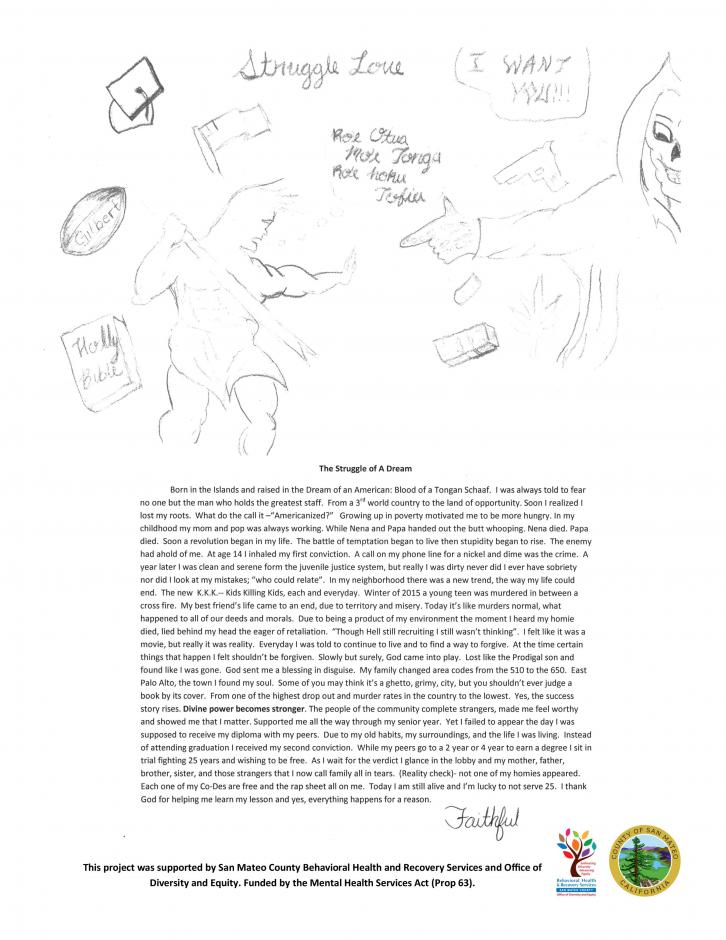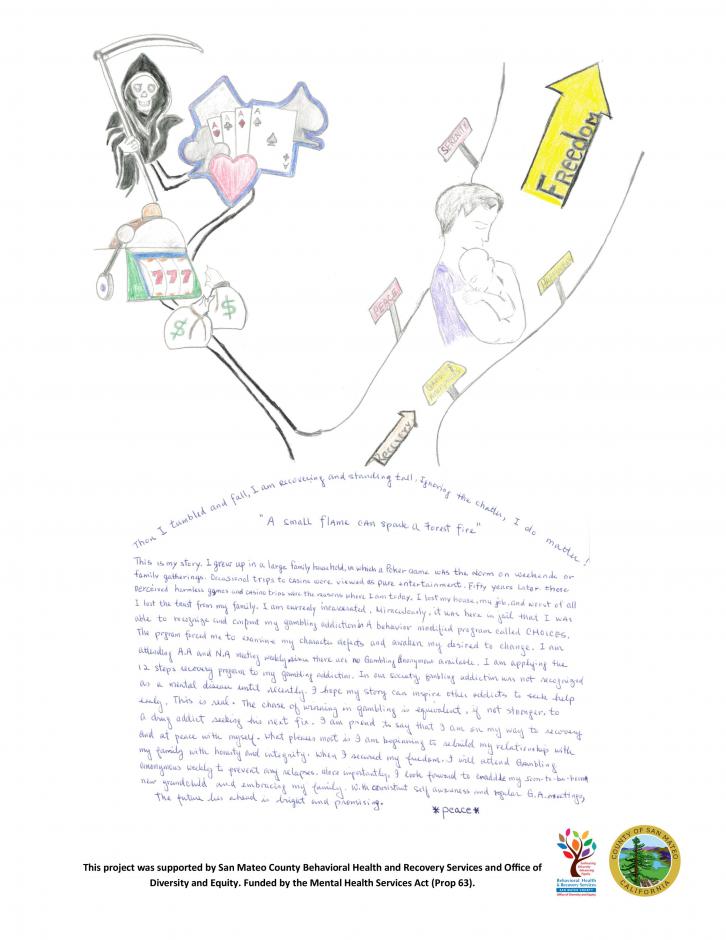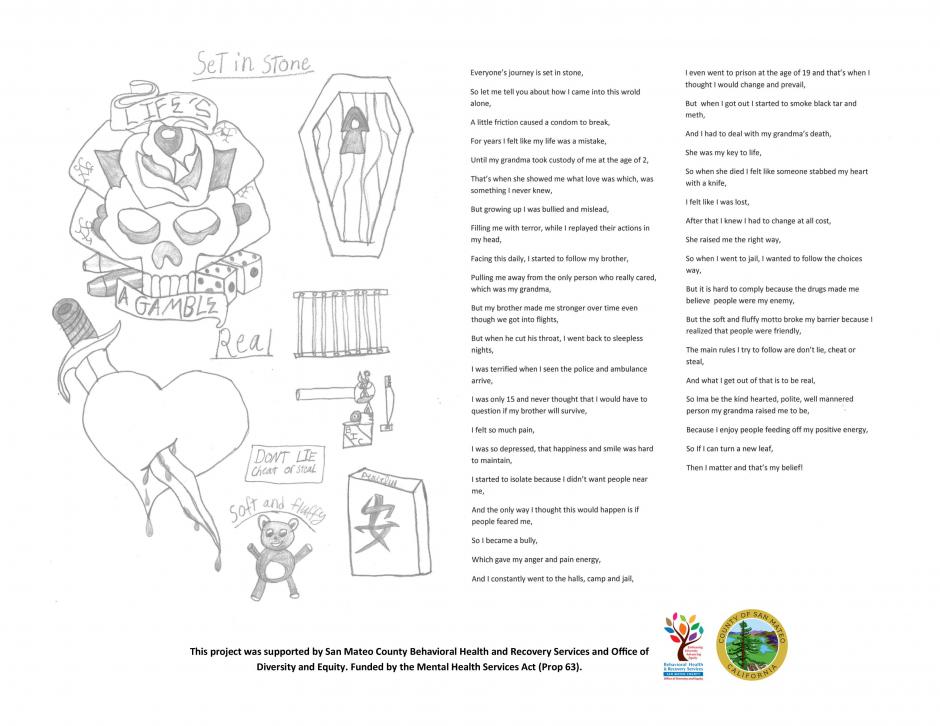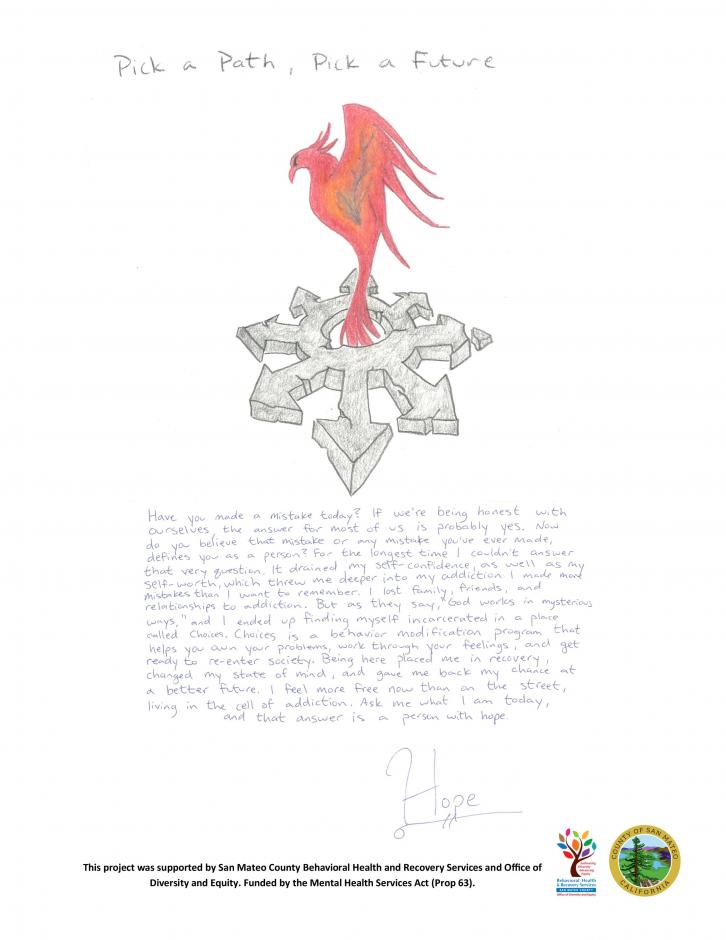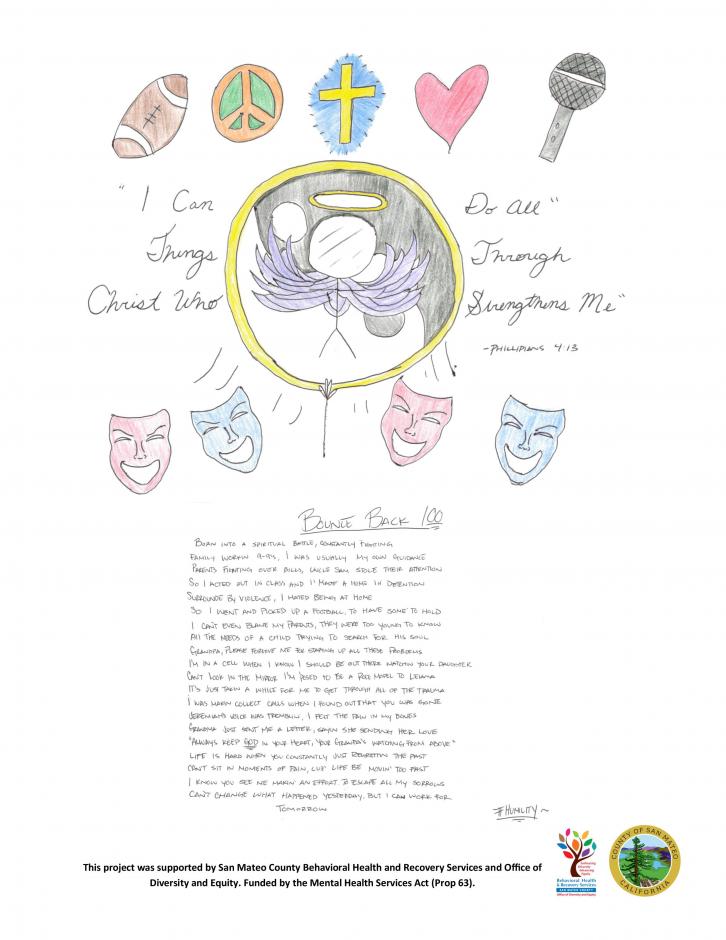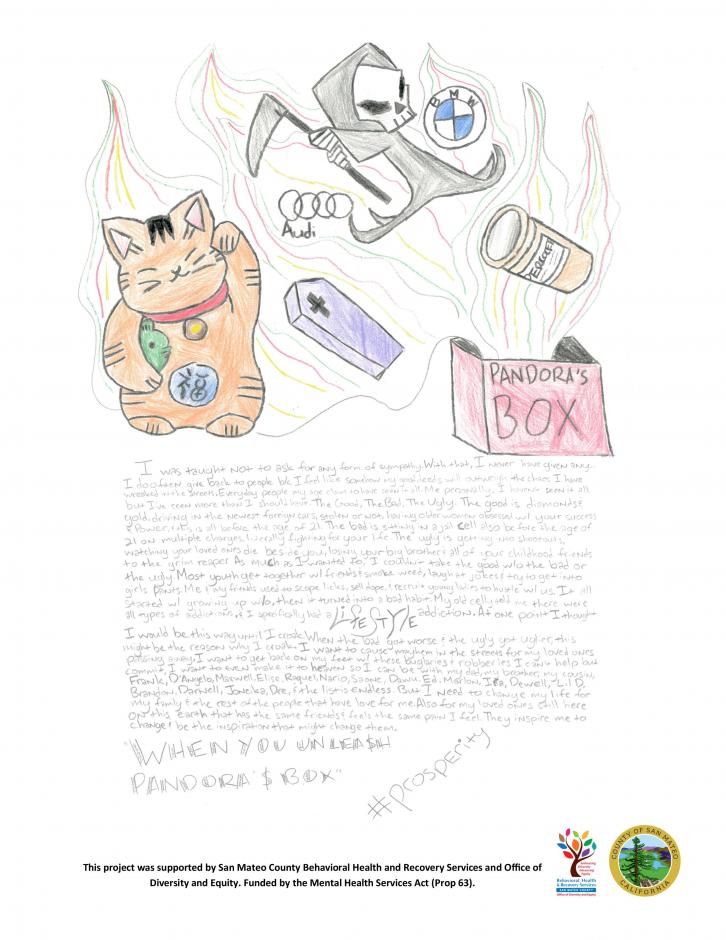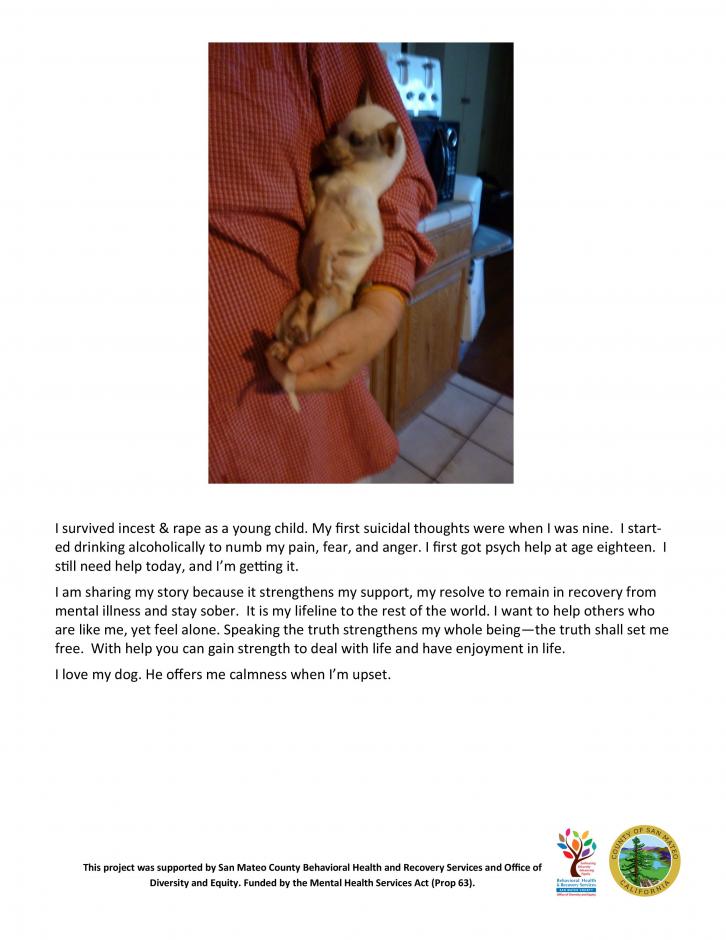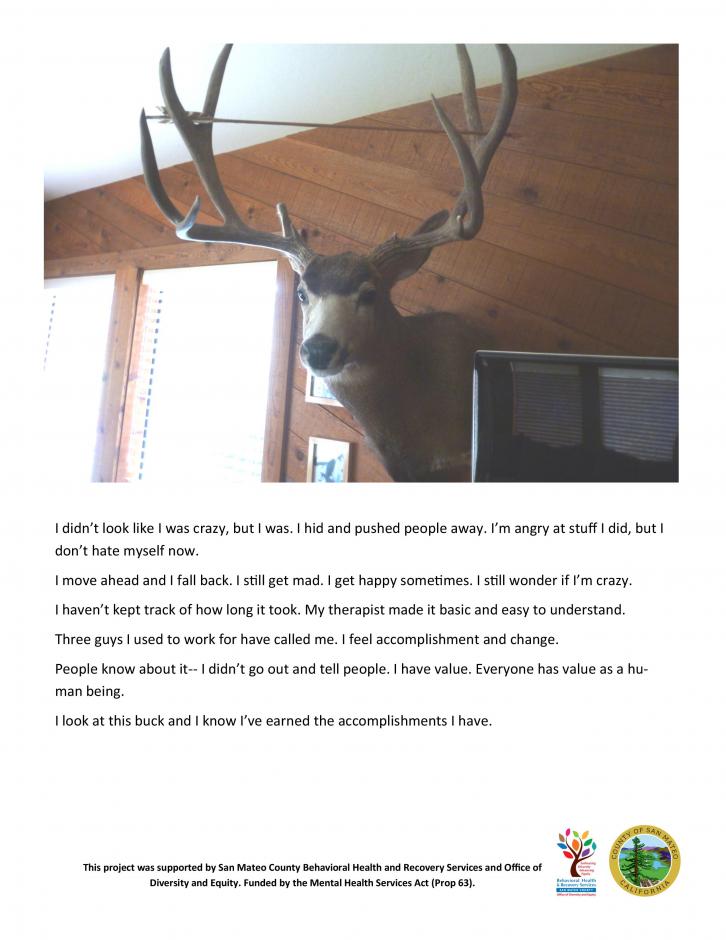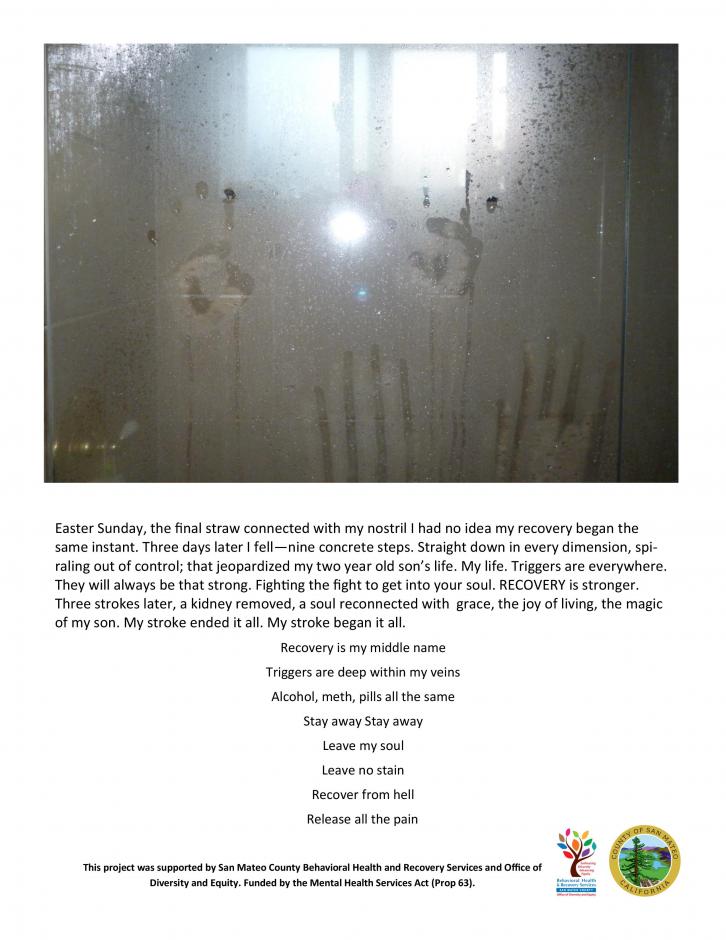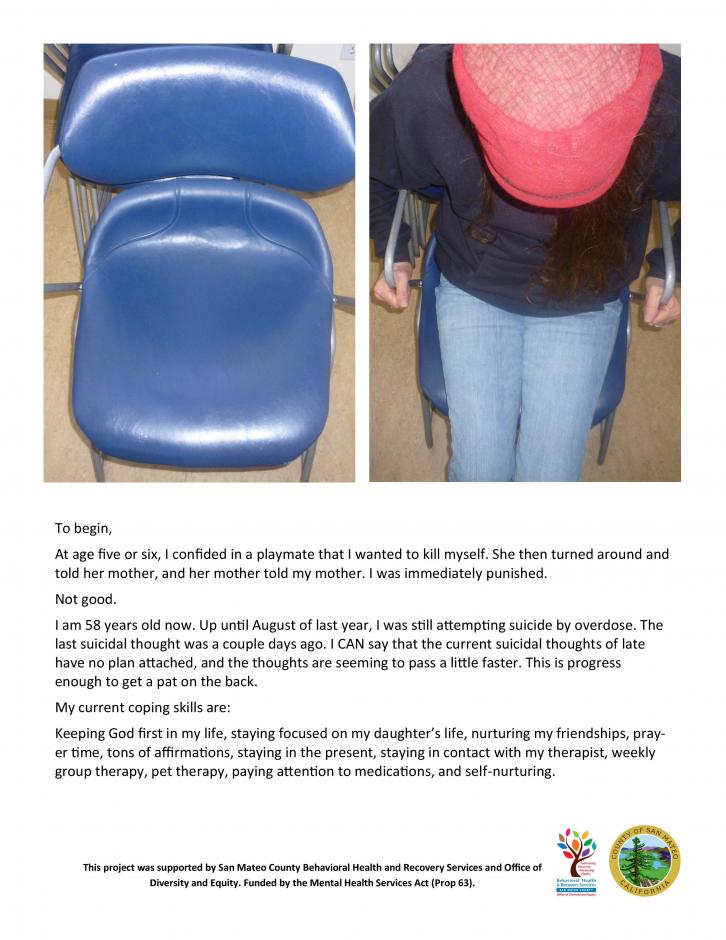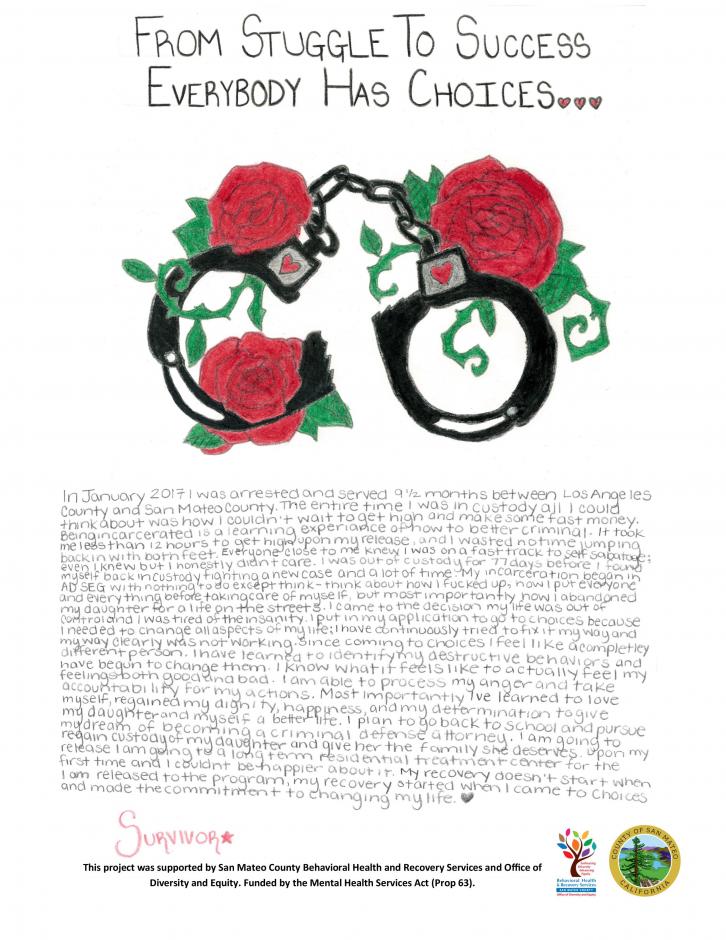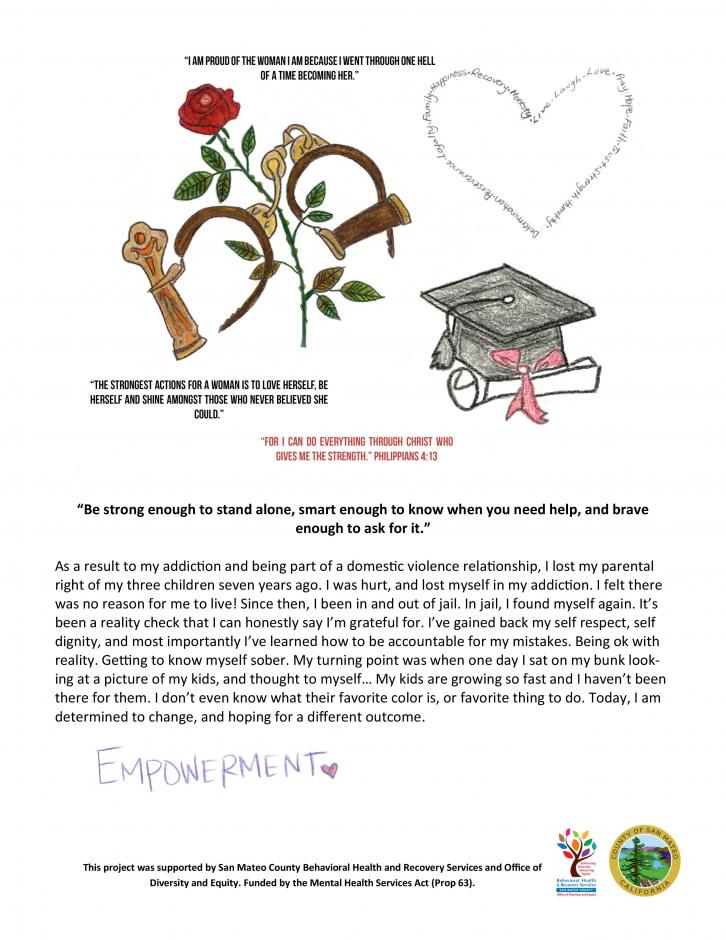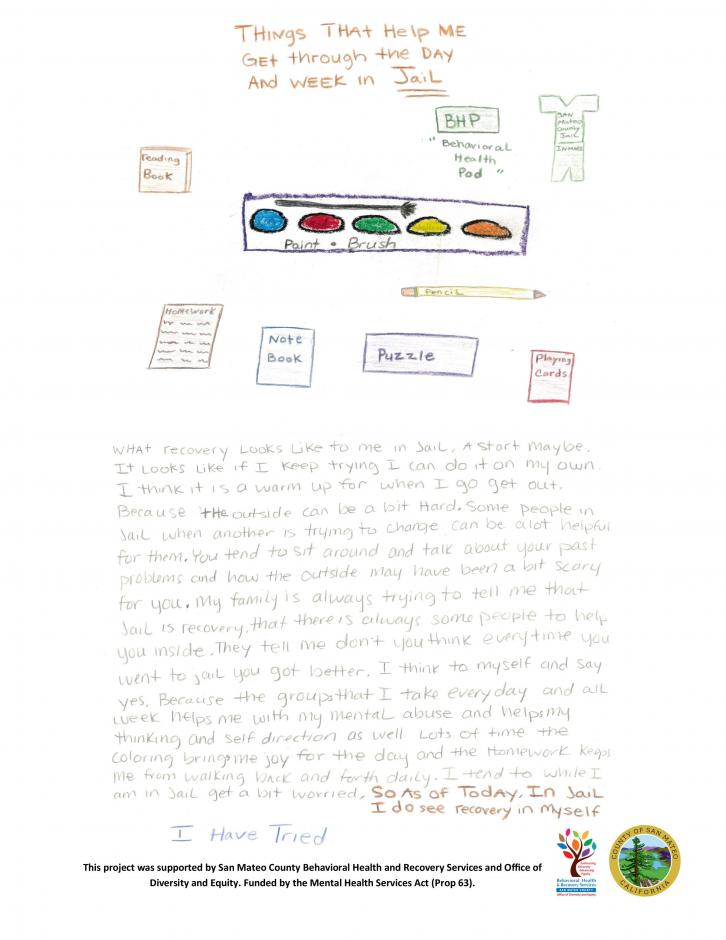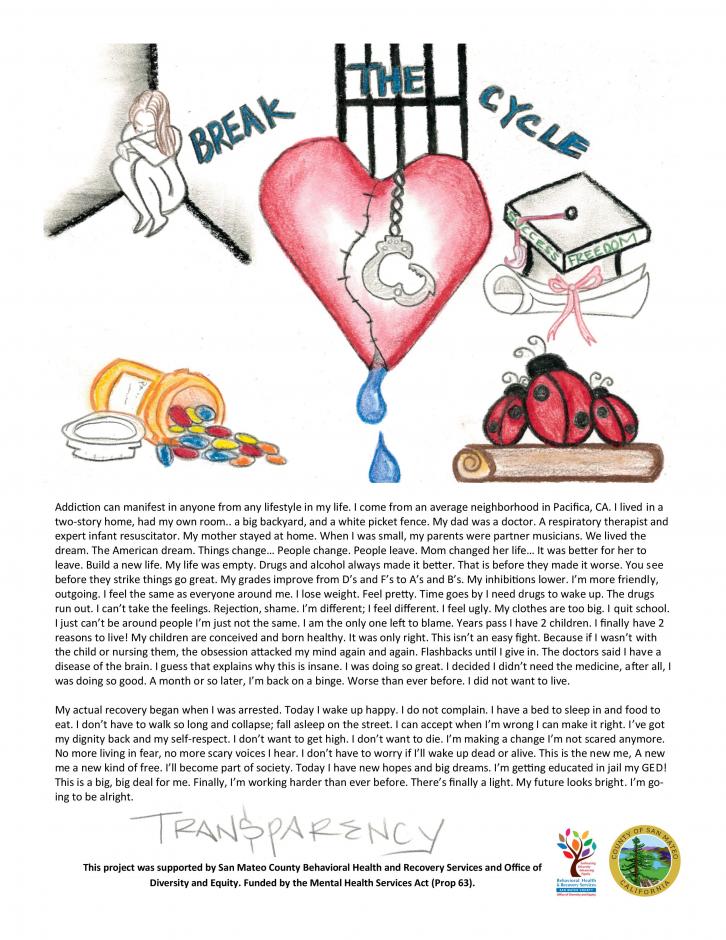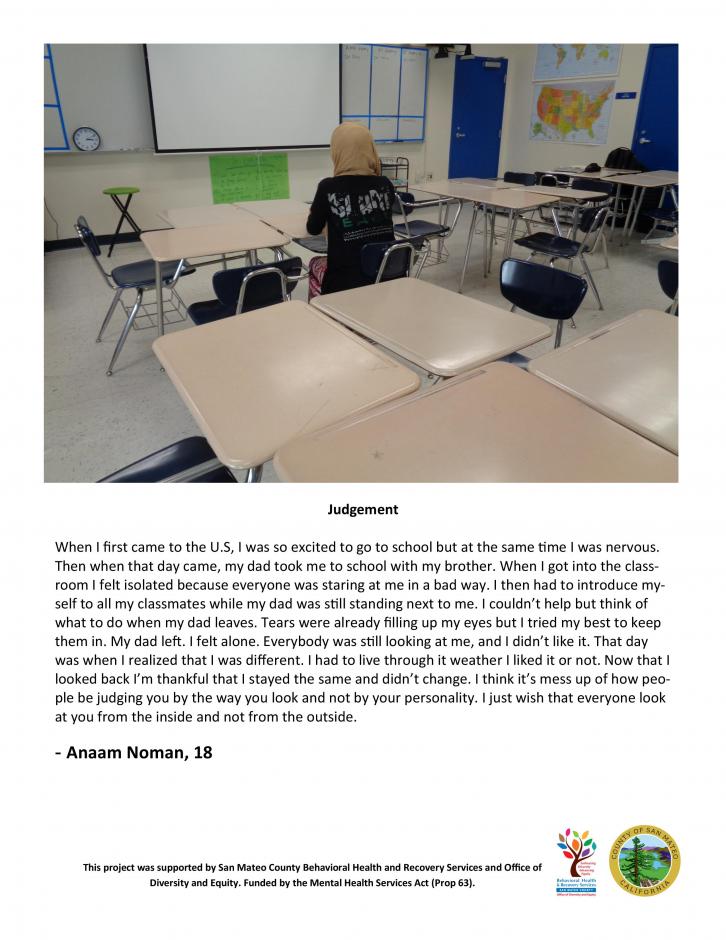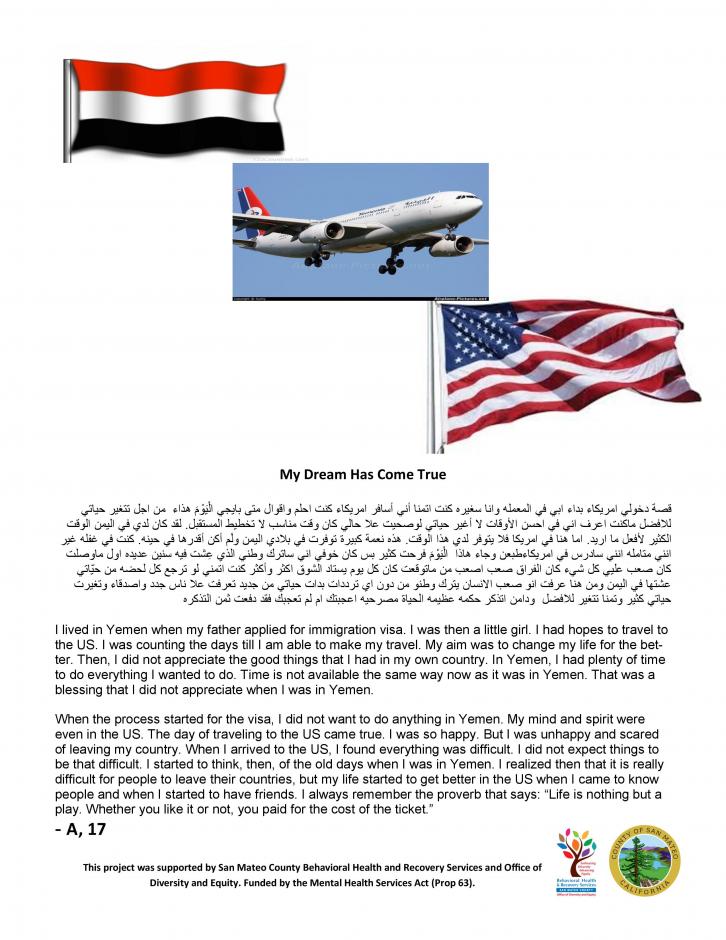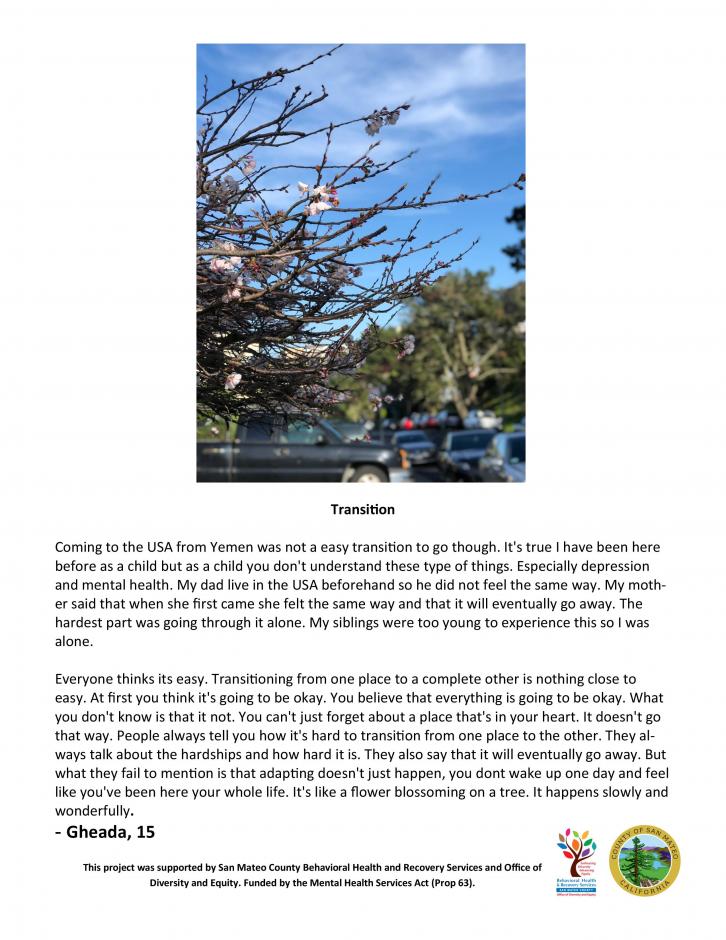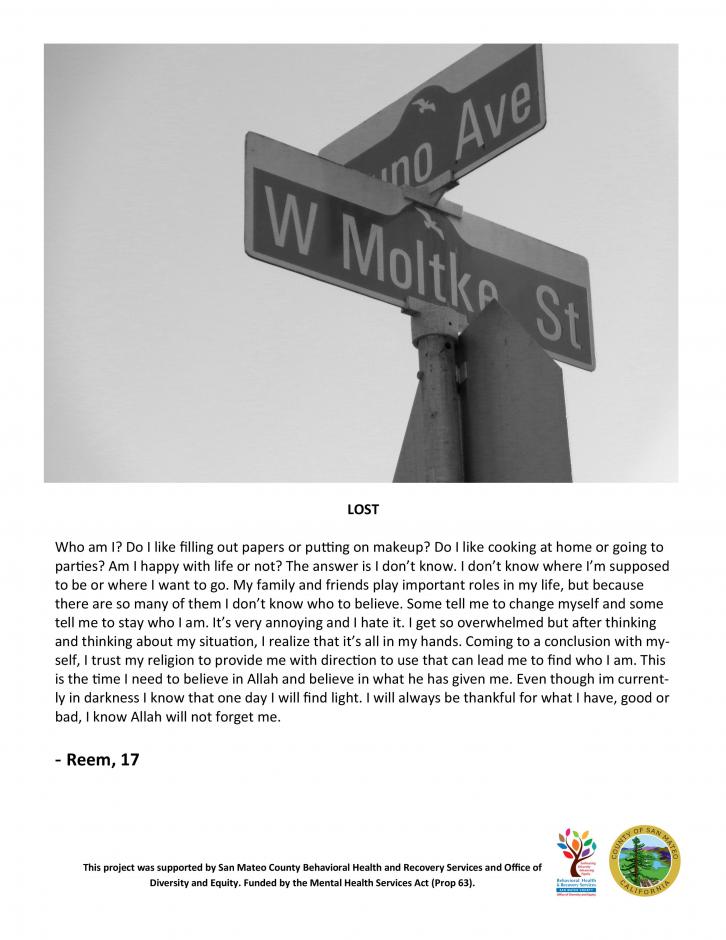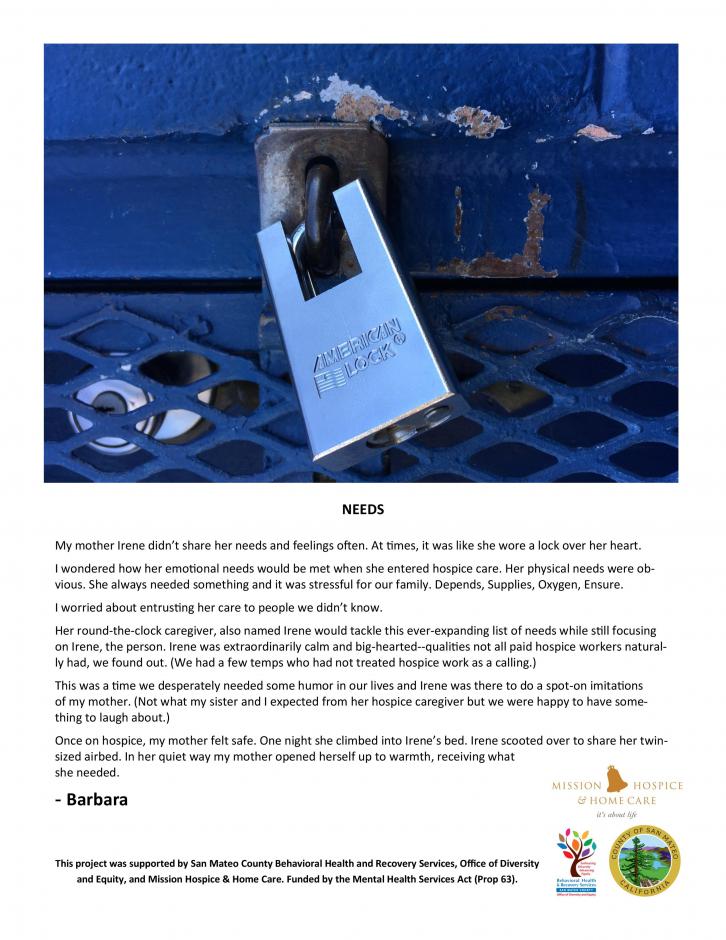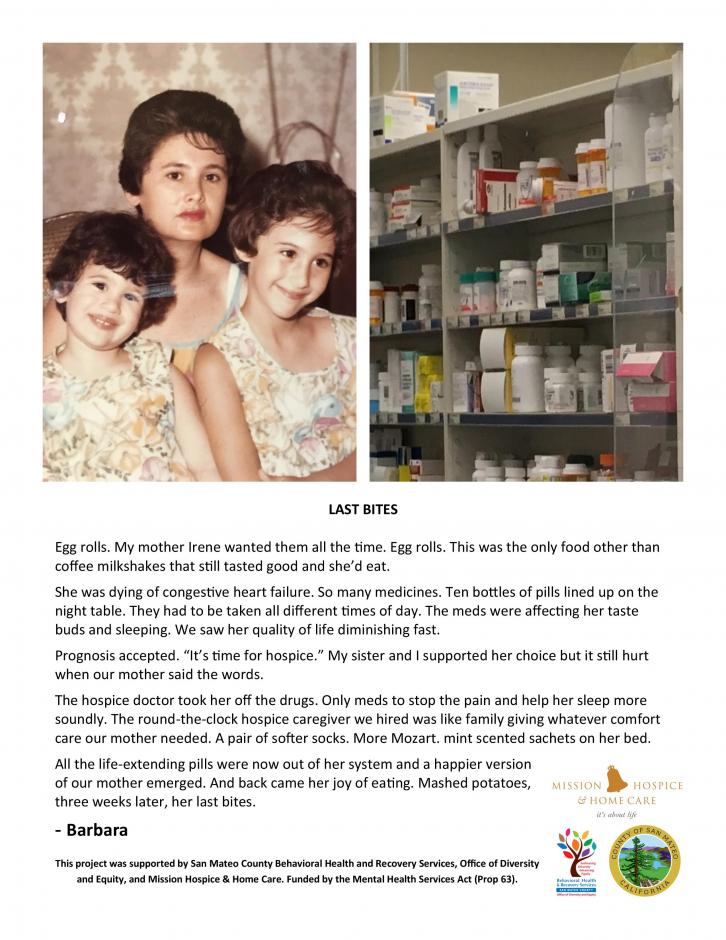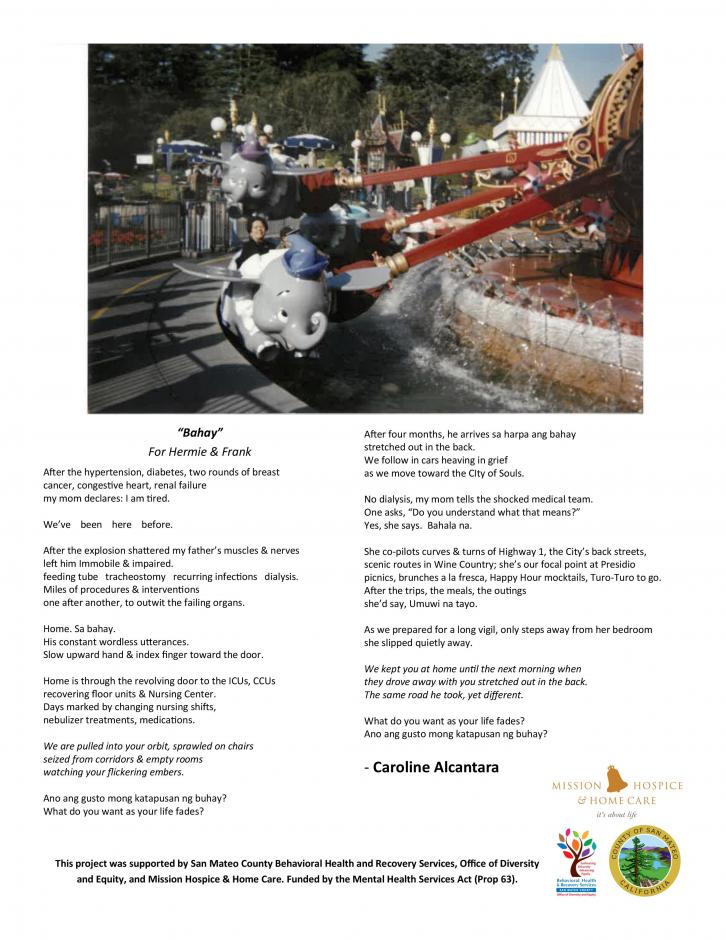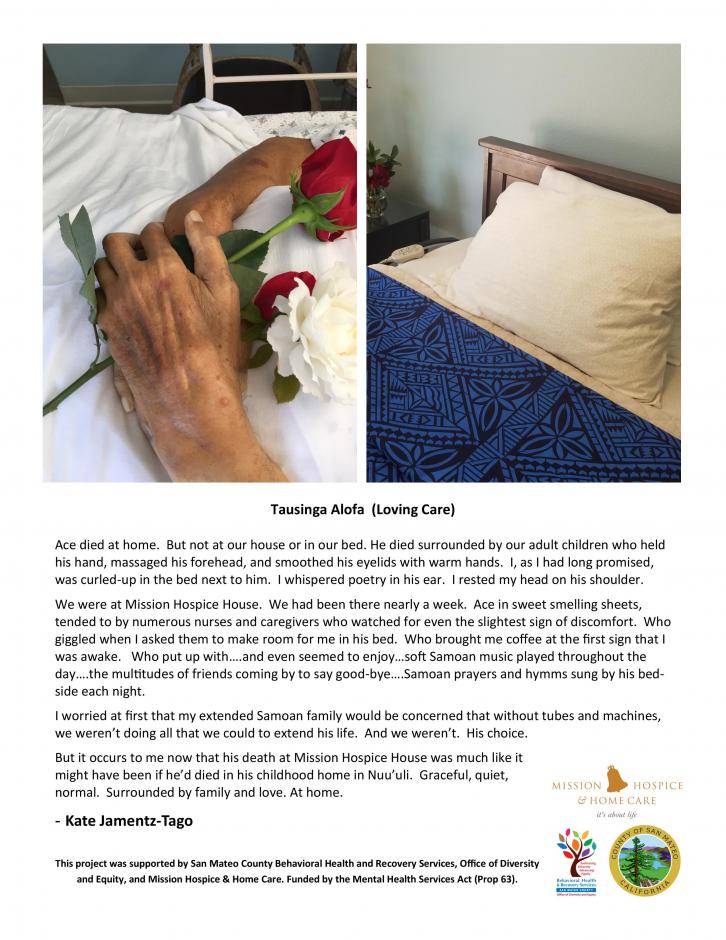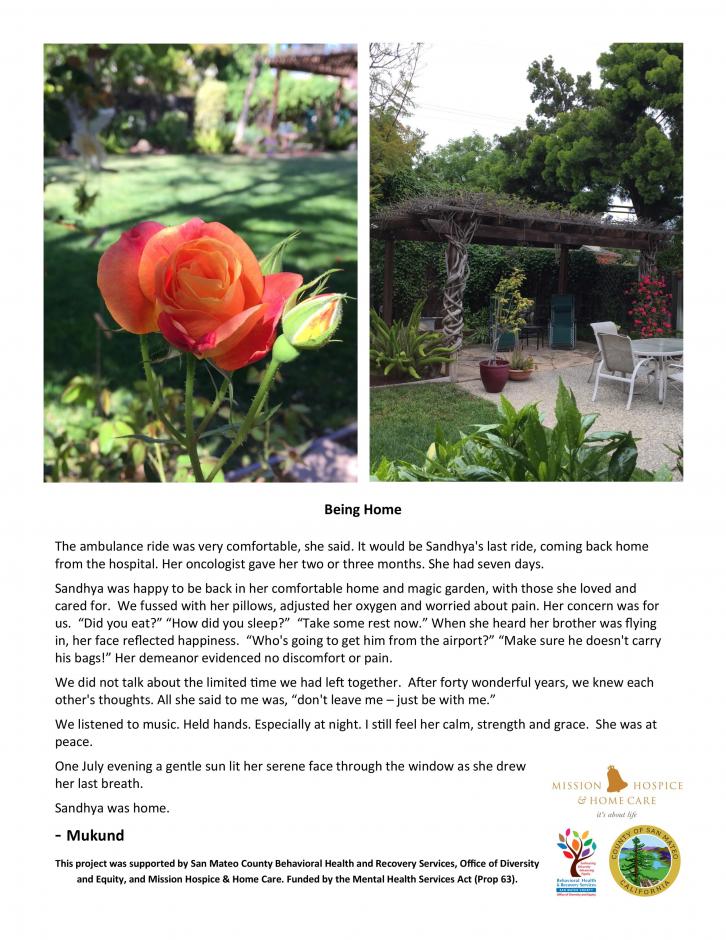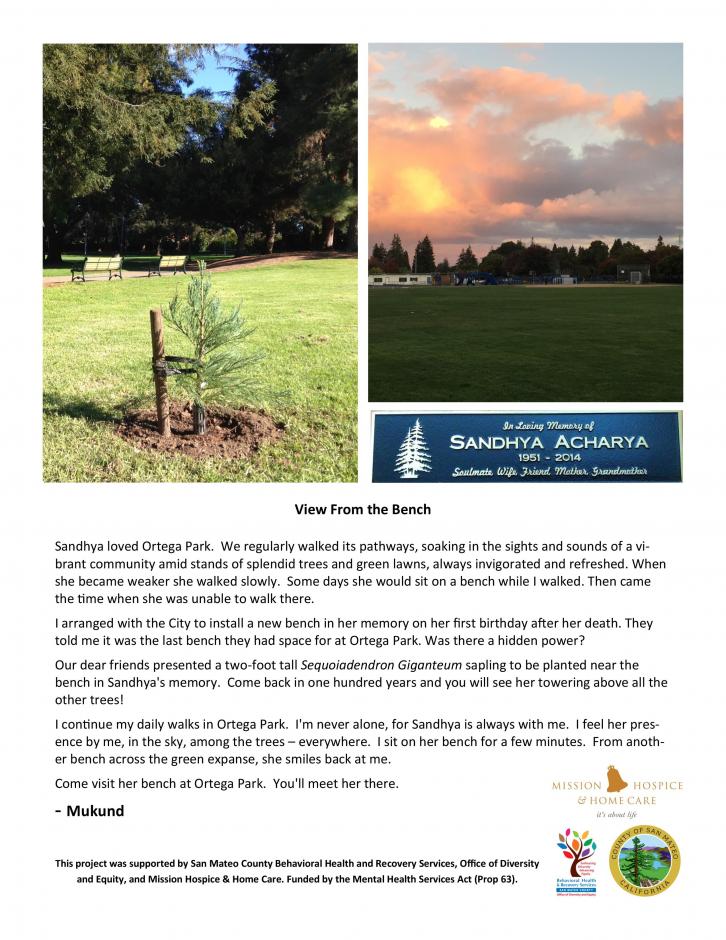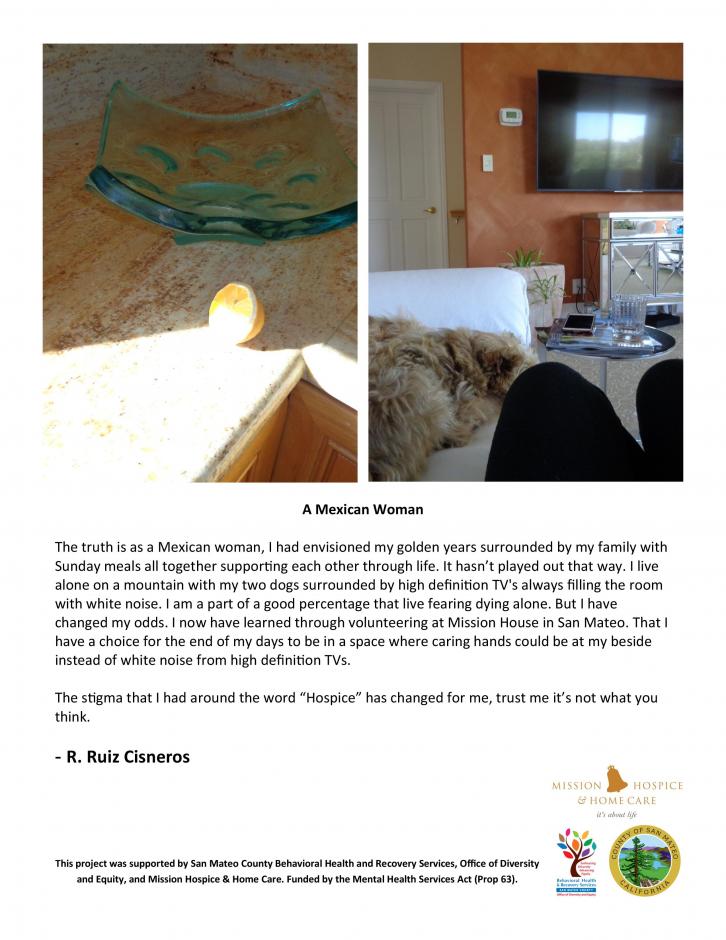Storytelling Program
Hosted by The Office of Diversity and Equity
The Office of Diversity and Equity (ODE) storytelling program empowers community members to share their stories of recovery and wellness to heal and to address issues within their communities. Participants engage in workshops that help them create and share their stories in different forms. Beginning with a framing question, facilitators support participants to share their stories as Photovoices or Digital Stories.
Considering structural impacts on wellness such as racism, discrimination, and poverty, these workshops broaden the definition of recovery and reduce stigma. The stories shared are both personal and powerful. For some, they have created a sense of connection, and for others, they have opened the doors to treatment and recovery. Stories captured in San Mateo County shed light on important social issues including stigma against mental health and substance abuse and support the empowerment of others with lived experience to share their stories.
Contact Nicoletta Kelleher at nkelleher@smcgov.org or (650) 649-8411 to learn more about the program!
Read our storytelling one-pager here.
To learn more about how the program works, read the Storytelling program framework.
Want to share some of these stories? Read this guide.
Read about our accomplishments in fiscal year 16-17 in our ODE Storytelling Report.
Video Vignettes
In honor of September Recovery and Suicide Prevention Month,
these videos are part of a series of video vignettes to uplift
important stories and messages of recovery and suicide
prevention.
For more info on Recovery Happens Month, click here.
Fore more info on Suicide Prevention month, click here.
Digital Stories
Digital stories are, short, 2-3 minute videos that host a narrative as well as visuals. Participants create their stories using photo, video, and audio to describe their lived experience. Digital stories are created during a 3-day workshop (20 hours total) administered by trained ODE facilitators.
The following stories were created in various workshops conducted in partnership with local agencies and community-based organizations throughout San Mateo County.
Heart & Soul — The Power of Hope in Recovery
Iris’ Story
Iris explains how she felt ignored and silenced by many people
because of her developmental disability. When she attends
college, she is able to be involved in more activities and lead
her own life.

Yvette’s Story
Yvette expresses the self-hate she experienced after she was
verbally and sexually abused as a child, which caused her to take
it out on her son. She talks about how the church gave her the
strength to find forgiveness and embrace her son.
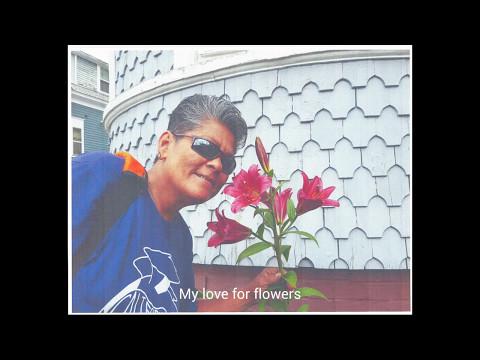
Karen’s Story
Karen talks about her life-long addiction to stimulants and her
battle with ADD and major depression. Now, she works at Heart &
Soul and has been sober for 20 years.
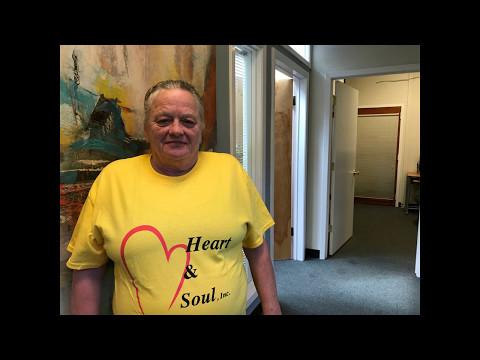
Denise’s Story
Denise talks about her addiction and drinking after her father’s
death. After receiving psychological support and joining recovery
programs, she comes to the realization that support is all around
us and that recovery is a lifelong process.
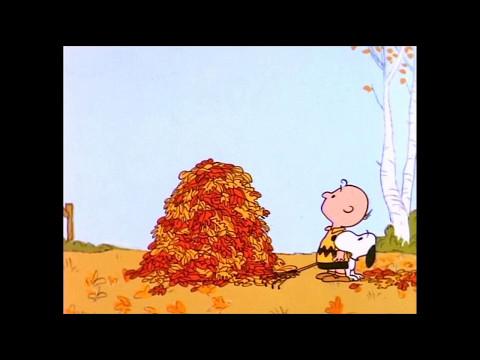
Alexandra’s Story
Alexandra describes her struggle with depression, personality
disorder, and anxiety. She’s come a long way to cope and grow
from her experiences.
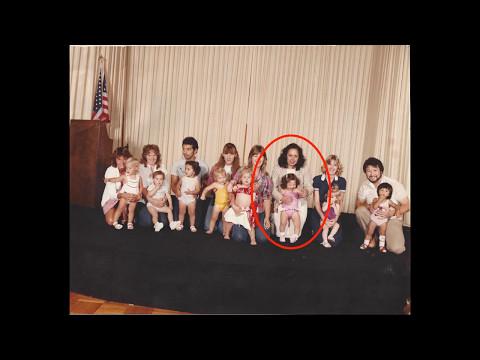
Human Services Agency – Independent Living Program (August 2014)
Transitional age youth share their stories as they prepare to exit the foster care system.
What Makes Me Special – by James Wilson
James describes the struggles he faced as a young child living
with his mother and in foster care. After beginning a series of
bad habits, James decides to change his life.
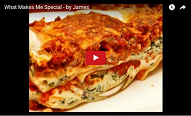
Brenda’s Story -
by Brenda Recinos
Benda retells the emotional anguish she experienced when
searching for her mother’s nurturing care. She expresses the
great appreciation she has for her foster parents who gave her
the love and security she needed.

Letter To Be Told -
by Allen Washington
Allen admits to the mistakes he committed while his child was
growing up. Despite the damage, Allen is always going to
support his child because the love he has is unconditional.

My Story – by Lina Severino
This story describes the experience of not fitting in and not
letting negative remarks define who one has to be.
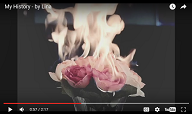
The Odd Life of Tim – by Timothy Curran
A story showcasing how music and poetry serve a as an outlet
describing the emotions that were felt when living in foster
care.
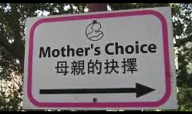
African-American Community Initiative
Members of San Mateo County Behavioral Health & Recovery Services’ African-American Community Initiative share experiences of discrimination, self-discovery, and faith.
Now It’s Me -
This story describes the struggles and depression experienced
following the death of a mother and the change in lifestyle.

Chester – by Chester
A story about being happy with one’s self and standing up to
negativity.
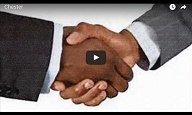
Chinese Health Initiative
A group of Chinese-International and Chinese-American students share their experiences around culture, family and social pressures.
Be Myself - by Sylvia Tan
Sylvia describes the constant pressure and expectations she faced
at home with her family. She no longer wants to feel the
negativity encasing her, and now lives the way that makes her
happy.
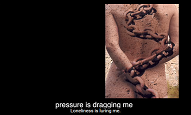
Andrew - by Andrew Lin
Andrew describes the pressures he experiences living at home with
his parents. Playing video games and talking with friends in
similar situations as his are his ways of coping.
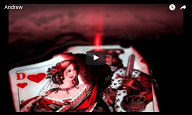
Shoufeng Qu – by Shoufeng Qu (Nokia)
Nokia explains his fascination and dream of flying and becoming a
pilot, but all that is shattered when he discovers his phobia of
flying. After learning more about phobias, he is determined to
overcome this challenge in hopes of accomplishing his dream.
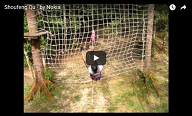
Pacific Islander Initiative
Nine – by Agnes
This story describes the experience of abuse by a clergyman, the
lack of support from family and the use of faith to survive the
trauma.

Who I Am – by Brittany
Brittany the eldest of nine siblings describes the tensions she
felt growing up as a child while having a very strict father.
Following the death of her father and learning about his
substance abuse, Brittany uses what she learned while growing up,
as a way to care for her family and remain close.
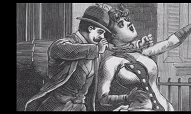
Inamorato Bravado – by Danny
This story describes the stigma and stereotypes related to one’s
personal sexual orientation preference. It also shows how to
accept and be proud of one’s self.
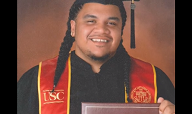
I’m OK, You’re Ok – by Neo
Neo remembers the suffering he went through due to his preference
in sexual orientation. After hearing a positive message about gay
men, Neo learned that is was ok to be gay and developed an
organization to help others in the LGBTQ community so they don’t
experience what he did.
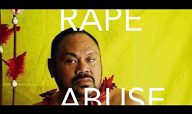
Spirituality Initiative
Members of San Mateo County Behavioral Health & Recovery Services’ Spirituality Initiative tell their stories of spirituality, family, and recovery.
Mary – by Mary
This story describes the importance of self-care and healing
through spirituality and learning to accept love from
others.
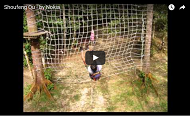
Alan – by Alan
A story recounting the journey of finding spirituality and being
at peace with God.
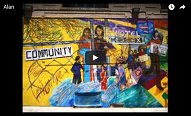
Inge – by Inge
This story describes how building a spiritual faith is of great
importance to help overcome family challenges.
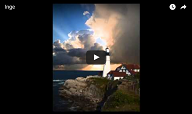
Clennan – by Clennan
Williams
This story describes the struggles and depression experienced
following the death of a mother and the change in lifestyle.
Through his spirituality journey, self-healing, and family
bonding, Clennan shares his praise for his three best
friends.
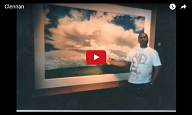
Youth—Middle School
Zariah’s Story – by Zariah
Young Zariah describes her ordeal of living with sickle cell and
all the pain and stress related to such. Thanks to her
friendships and better able to manage the stresses in her life,
Zariah has been able to overcome the pains caused by her
illness.
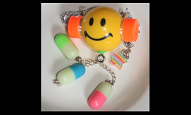
Middle School Problems – by Jessica
Jessica describes her experience at school as a special learner.
She learns to accept her condition and even though she receives
extra help in school, her situation does not make her different
from the rest of the students.
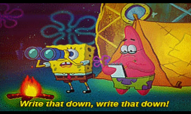
An Unexpected Touchdown – by Rayshaun
Rayshaun retells his passion for football as a 5th grader and how
that came to an end due to taunting. Traumatized from the
ridicule, he no longer wanted to play the sport, until one of his
friends encouraged him to play again.
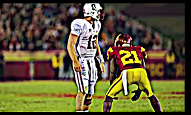
Why me? Tonnia’s Story
This story describes the importance of staying true to one’s self
no matter the confronted challenges.

Lived Experience Academy
High Risk – by Zena
Zena describes the affliction she went through when one of her
children suffers from a mental health disorder. She explains how
sometimes the love parents have for their children may cause them
to be in denial when their children suffer from an illness.

Still I Conquered – by Aisha
Aisha describes her experience of living with various mental
health disorders and not having the family support. Despite all
her struggles, Aisha has managed to overcome her obstacles and
stay grounded.
![]()
LA Story – by Amaal
Amaal retells his experience of living with bipolar disorder and
the struggles he faced before receiving the adequate treatment.
With the support of physicians and his family, Amaal has overcome
is struggles and is living a stable life.

Are You Happy? – by Ayana
After her son asked her if she was happy, Ayanna recollects all
the struggles she and her children faced while trying to balance
all the health issues that affecting her. After seeking help,
Ayanna was better able to care for her family and overall be
happy.
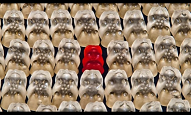
Health Ambassador Program
I Am Almighty – by Alexis
Alexis discover how art is his form of therapy to help with his
ongoing depression. Art empowers Alexis and allows him to express
himself in a visual and audial form.
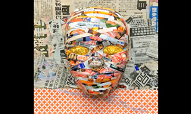
To Be Born…Again – by Cardum
Cardum retells the anguish and trauma she felt while growing up
due to the abuse she suffered as a child. Through the help of
friends and groups, Cardum realizes the importance of living not
just for herself, but also for her son and others.
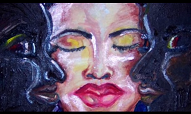
El Cambrio (The Change) – by Leo
Leo remembers the troubles his family faced due to his
alcoholism. After a natural disaster occurs in his hometown, Leo
realizes that it is time for him to make changes for the benefit
of his family and himself.
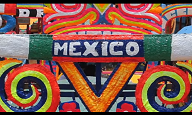
Why I Left My Loved Ones and My Country? – by
Marta
Marta retells her story of leaving her home country of El
Salvador in search of a better life. Once arriving to the United
States, Marta soon realizes that life is equally difficult, but
despite all the struggles, she still stays strong thanks to the
support she receives.
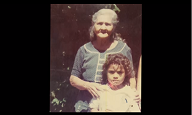
Depresion Post-Parto (Postpartum Depression) – by
Nora
Nora describes her traumatic experience during her pregnancy when
she loses both of her parents. These events have a deep effect on
her and result in her postpartum depression.

Courage, Love, Life – by Sandy
Sandy explains the pride she feels to be the mother of her three
children, despite all the traumas she has experienced. Her
children are her driving force and also give her the strength to
live.

Center for Digital Storytelling (2012-2013)
ODE partnered with the Center for Digital Storytelling in Berkeley for a series of workshops, including one train-the-trainer session. Community members shared their diverse stories during these workshops and include experiences of culture, community, race, recovery, and family.
2013
2012
-
I’m Home
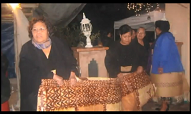
-
Everyone Is Welcome
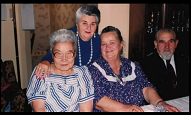
-
Someone Else’s Time
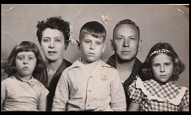
-
Consumed

-
Every Piece of My Broken Heart
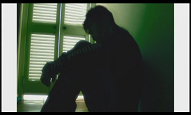
-
Niños – Niñas
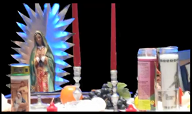
Through a partnership with the Inspire USA Foundation, we invited four young adults to share their stories. Young filmmakers from the Bay Area Video Coalition’s Factory program then interpreted these stories into short films which were distributed on the Reach Out website.
Photovoice
Photovoice is a 4-day (8 hours total) process by which people can identify, represent, and enhance their community through photography. Final projects exhibit a single-page layout of a photo and short written piece.
Health Ambassador Program Series
This Photovoice series was centered around commemorating the impact and dedication of our longstanding Health Ambassadors. This series intended to provide Spanish speaking Health Ambassadors from different generations the opportunity to close out their HAP trainings by creating a Photovoice related to their experience. with HAP celebrate Hispanic Heritage month by sharing how one’s family traditions, stories, and/or values connect an individual to their Hispanic heritage. Participants were asked, “How has becoming a Health Ambassador impacted your life?” and/or “How has what you have learned as a Health Ambassador impacted the lives of your loved ones, your community, and BHRS?” Participants shared their stories and lived experiences, many of which reflect over ten years of dedication to the Behavioral Health and Recover Services Office of Diversity and Equity’s Health Ambassador Program. This photovoice series was particularly meaningful since it provided our devout Health Ambassadors the platform to share their experiences and learnings from HAP, as well as their impact on the SMC community. Being as this series was for our longstanding ambassadors, this series allowed some of our HAP members to share their experiences over the course years, and for some of which, a whole decade. This was a record-breaking series in our BHRS ODE photovoice history of 26 Photovoices completed in one series!
View the Photovoice series here.
Spanish Hispanic Heritage Series
This Photovoice series was centered around Hispanic Heritage. This series intended to celebrate Hispanic Heritage month by sharing how one’s family traditions, stories, and/or values connect an individual to their Hispanic heritage. This photovoice series was particularly impactful since it was our first Spanish photovoice since the re-launch of photovoice in 2025. Now more than ever, it was vital that we celebrated Hispanic Heritage and culture to celebrate the importance that one’s cultural values and identity play in one’s behavioral health. This perfectly co-insides with our Health Equity Initiative’s Sana Sana Colita de Rana event which promotes health and wellness among our Latino/a/x community in San Mateo County. For this reason, these final photovoice projects were displayed at this even to amplify the importance of Hispanic Heritage and decrease stigma associated with seeking behavioral and recovery services and sharing one’s lived experience.
View the Photovoice series here.
Wellness Series
This Photovoice series was centered around how an individual fosters wellness their behavioral health. This series intended to celebrate August’s National Wellness month by emphasizing the importance wellness plays in an individual’s journey to recovery from a mental health and/or substance use condition. Our participants were all very passionate about the subject, and shared stories relating to their lived experience as it relates to sobriety, accessing services, combatting loneliness as an immigrant, and one’s journey with spirituality. This series made for an emotional and impactful session as it amplified different methods that one can prioritize and implement wellness for their own behavioral health.
View the Photovoice series here.
Health Ambassador Youth – Through the Years
Following the end of Health Ambassador Youth’s (HAP-Y) final summer cohort, participants closed out their 14-week commitment by creating a Photovoice. HAP-Y regularly ends their series with Photovoice as it serves as an opportunity for youth reflect on their own stories and work towards decreasing stigma. In addition, Photovoice serves to conclude the HAP-Y series with a reminder of how powerful their voices are, and by sharing their own stories and inspiring others to do the same. In an effort to utilize their learning of behavioral health during these 14 weeks, participants based their photovoices on the theme “Culture and its relation to Behavioral Health” (see pages 1 to 15). Pages 16 to 29 feature previous HAP-Y photovoice projects from 2016 to Fall 2025.
View the Photovoice series here.
Pride Pop-Up 2025
In an effort to address the behavioral health barriers, equity, and stigma experienced by the SMC LGBTQ+ groups, this Pride Photovoice Pop-Up activity encouraged all Pride event attendees and the larger LGBTQ+ community to answer the questions “What does LGBTQ+ wellness mean to you?” and/or “Celebrating Pride is important because…”. Participants could simply write their responses to these questions, or they could pair their response with a corresponding polaroid picture they took at the event. In sharing one’s story, the LGBTQ+ community and all Pride attendees had the opportunity to advocate and amplify LGBTQ+ representations it relates to behavioral health needs, destigmatizing one’s behavioral health condition, all while promoting self-affirmation and empowerment during Pride month and beyond.
View the full Photovoice series here.
Housing Photovoice from 2025
The Storytelling Photovoice Program kicked off their re-launch session with a Behavioral Health and Recovery Services Office of Diversity and Equity’s (BHRS ODE) Photovoice Housing Project. In this Photovoice Housing Project, participants highlighted housing inequities and were able to amplify their experiences while narrating the barriers associated with loss of housing, their journey towards receiving housing, or how not having housing has impacted their everyday lives. In doing this, participants shared their personal stories, as well as their journey to recovery with mental health and substance use challenges and how this creates additional barriers in obtaining stable housing.
View the full Photovoice series here.
Hope for Change from LEEW 2021
A group of dedicated consumer leaders from the Lived Experience
and Education Workgroup (LEEW) worked together to explore the
ways in which they find hope. They examined their own lives,
reflected and shared with others in order to attune with,
photograph and then write about the sources of hope that each
ones has, and from where each finds meaning and orientation. The
LEEW members hope this collection of pieces will help viewers
learn about their lives and the integral role that hope has in
their lives in recovery.
This Photovoice Workshop was possible with the help of the Office
of Diversity & Equity and the Office of Consumer & Family
Affairs.
View the full Photovoice series here.
Substance Use and Suicide 2017
In collaboration with the Office of Diversity and Equity, Service Connect, and the African American Community Initiative, this group of storytellers came together to share the ways that they have been affected by the issues of substance abuse and suicidal thoughts. At the Black History Month kick-off event, the storytellers shared their photovoices and sat on a panel to answer questions and discuss the way the topics of their photovoices interact with the African American community.
Recovery Happens 2017
Community members in recovery shared their stories in response to the question: “What does ‘recovery happens’ mean to you?” Some shared stories of celebration, while others shared stories of hardship and resilience. Stories are intended to broaden the definition of recovery and to prove that recovery is possible.
Lived Experience Education Workgroup Pop-Up Photovoice
Members of the Lived Experience Education Workgroup (LEEW) shared their stories in response to the framing question: What makes an effective ally to those with lived experience? Stories included themes of trauma, advice on how to be supportive and a better listener, and personal mementos of allyship. Read these stories to learn how to be a better ally and get in touch with LEEW by contacting the Office of Consumer and Family Affairs.
San Mateo Pride Pop-Up Photovoice 2017
Attendees at San Mateo County’s 2017 Pride Celebration shared their stories about what ‘Pride’ means to them. People shared their LGBTQ+ stories as well as their stories of allyship. Stories include moments of affirmation and pride, trauma, as well as conversations about values.
Parent Project Reunion Pop-Up Photovoice 2017
Attendees at Parent Project’s 2017 annual reunion shared their experiences of Parent Project and wellness. Parent Project is a, free, 12-week course on parenting that is offered in English and Spanish to anyone who cares for a child or adolescent.
College of San Mateo Pop-Up Photovoice 2017
Attendees at the 2017 May Mental Health Awareness Kick-Off event at the College of San Mateo shared their experiences and perceptions of mental health. People in helping roles, people facing mental health challenges, as well as allies and others who do not experience mental health issues shared their stories.
St. Francis of Assisi Church 2017
Pacific Islander youth engaged in conversations about mental health for the first time in their lives.
North County 2017
Participants responded to the framing question, “What is your journey in behavioral health?”
Youth Services Center (juvenile hall) 2017
Office of Diversity and Equity (ODE) partnered with Youth Services Center to conduct a Photovoice program. 5 of the youth shared their stories. Throughout our 1-on-1 sessions, youth expressed unmet needs to have their strengths and values recognized, that they are often portrayed as ‘problem children’, that they enjoy mental health services, and that they have been affected by trauma. They worked hard to create the best Photovoices they could.
Black Lives Matter 2017
In January, ODE Storytelling collaborated with the African American Community (Mental Health) Initiative to host a Photovoice program with the theme “Black Lives Matter”. Four participants came together to answer the question: “What does Black Lives Matter mean to you?” By the end of the workshop, participants completed a Photovoice project and co-wrote this accompanying call-to-action:
“The community needs to know that Black Lives Matter isn’t just about senseless killings of unarmed African Americans, but it is about the systematic oppression and invisible killings of African Americans: physically, mentally, socially, emotionally, and financially. Black Lives Matter means loving black, buying black, and being undeniably black. Black Lives Matter means knowing who our leaders are. Black Lives Matter is one of many attempts black people have made to get fair treatment in this country and it’s a shame we are still asking.”
Older Adult Central 2016
Spring 2012
Winter 2011
Caminar
“Where/When do you feel stigmatized?”
Chinese Health Initiative
“Stigma and cultural assimilation of mental health consumers living in San Mateo County”
Canyon Oaks Youth Center
“Can youth in residential treatment maintain a ‘normal’ teenage life and how do they view themselves?”
Sequoia High School - ODE & PCRC
Students address issues faced by the Latino community.
Spirituality Initiative
Shedding light on the relationship between spirituality and health—often ignored, misunderstood, and suppressed by most mental health systems in the U.S. Spiritual engagement can be found in many aspects of life that lead to health, wellness, and recovery.
Latino Collaborative
The first FotoVoz project held in Spanish was hosted at the North
County Clinic. The project was open to consumers, family members,
and their friends.
“What are the economic contributions of the Latino worker in
your neighborhood?”
Sequoia High School Dream Club
Students did a photographic study of places where they felt safe and welcomed and then chose to juxtapose images of unwelcome places or places where they did not feel safe. Fifteen photos were selected by the students in the Dream Club for presentation in PhotoVoice.
Service Connect 2018
People who receive services at Service Connect shared their stories of freedom in response to the framing question “What does freedom mean and what does it look like for you today?”. Many of the participants were recently incarcerated and their stories include themes of freedom of choice, freedom to take care of themselves, as well as substance use recovery. During the workshop, one member of the group shared a very insightful statement: ‘You can’t judge peoples’ character if they are wealthy and have an opportunity to steal and don’t steal. Instead, it means a lot if you need to steal and you don’t.’
Nuestra Casa 2018
People in the Promotoras & Family Advocate program at Nuestra Casa shared their stories in response to the framing question, “What does Nuestra Casa mean to you?”. The question holding a double meaning of “our house”, as well as the name of the organization, was an opportunity for people to share their stories with relevance to the federal issues on immigration. Stories include themes of mental health recovery, housing, and discrimination.
Maguire Correctional Facility – Men’s Pod 2018
Men in custody at Maguire Correctional Facility shared their stories of recovery in jail. The storytellers shared stories of the moments in which things turned around for the better as well as the lessons they have learned throughout their journeys.
Safespace 2018
Youth at local non-profit, Safespace, shared their experiences of coping of mental health as well as offering the lessons they have learned when coping with and supporting others with their mental health challenges. Safespace works to educate and help young people advocate for better mental health services throughout their local schools and community. Stories include themes of hardship and resilience and include both youth and adult perspectives. Fun fact: this was out first youth led and facilitated Photovoice workshop!
Coastside Mental Health Center 2018
In collaboration with James Matters (Clinician at Coastside Mental Health Clinic), ODE Storytelling held a workshop addressing the stigma of behavioral health. Participants in James’ weekly group therapy groups identified a community issue though their experiences of feeling invalidated and misunderstood when other community members claimed that they “didn’t look sick” upon disclosing their behavioral health diagnosis. Participants shared their stories to show the different ways that people can be affected by behavioral health and the stories were shown at an open house at Coastside mental health clinic.
One East Palo Alto 2018
In collaboration with One East Palo Alto (OEPA), ODE Storytelling facilitated a Photovoice workshop about substance use in East Palo Alto. The cohort of storytellers included people of all ages and stages in their substance use and recovery. The diversity of cohort members inspired valuable conversations for the storytellers: people in recovery had the opportunity to provide insight to the youth who are using substances and the youth were able to share their experiences to be understood by the other participants. Stories included themes of traumatization, peer-pressure, bias, and recovery.
Maple St. Jail
ODE Storytelling collaborated with Correctional Health Services (CHS) and the Sheriff’s Office to invite women from the Choices program, the Behavioral Health Pod, and the ASPIRE program participate in the first Photovoice cohort. Four women participated to share their stories in response to the framing question: ‘What does recovery look like for you in jail?’ The women in the cohort shared their stories of recovery, including themes of trauma (domestic violence), substance abuse, hope and success, as well as hopelessness and personal surrender.
Arab American Wellness
Arab and Arab America students at Jefferson High School came together to share their stories about mental health. Since stories of mental health in the Arab American community are sparse, these young people are leaders in pioneering a very important conversation for their community. In response to the framing question, “What does mental wellness look like in your community?”, the participants shared their stories as Photovoices. The final Photovoices included themes of isolation, feeling misunderstood, struggling with mental health issues, resilience, and a lack of mental health support.
Hospice and End of Life
ODE Storytelling partnered with Mission Hospice and Home Care to host a Photovoice program on the topic of death and dying. Death and dying is a stigmatized issue that affects the healthcare of people who are nearing the end of their lives and that affects the mental wellbeing of families who are coping with loss. Challenging the stigma and isolation associated with death and dying, Mission Hospice & Home Care works to ensure that people at the end life receive appropriate care through compassion, conversations, and education. Stories include positive frames on loss, philosophies on death and dying, and healthy coping skills.
Spirituality in Recovery
In collaboration with the Spirituality Initiative and Jamie Griffin (CSIP intern), ODE Storytelling hosted a Photovoice workshop about the power of spirituality in recovery. The group identified that spirituality is invalidated among therapists and other behavioral health providers, and needs to be understood to provide better care. Stories include themes of loss, substance abuse, mental health issues, religion, and spirituality being a key part of recovery.



